Page Content
 Private Sector Development
Private Sector Development
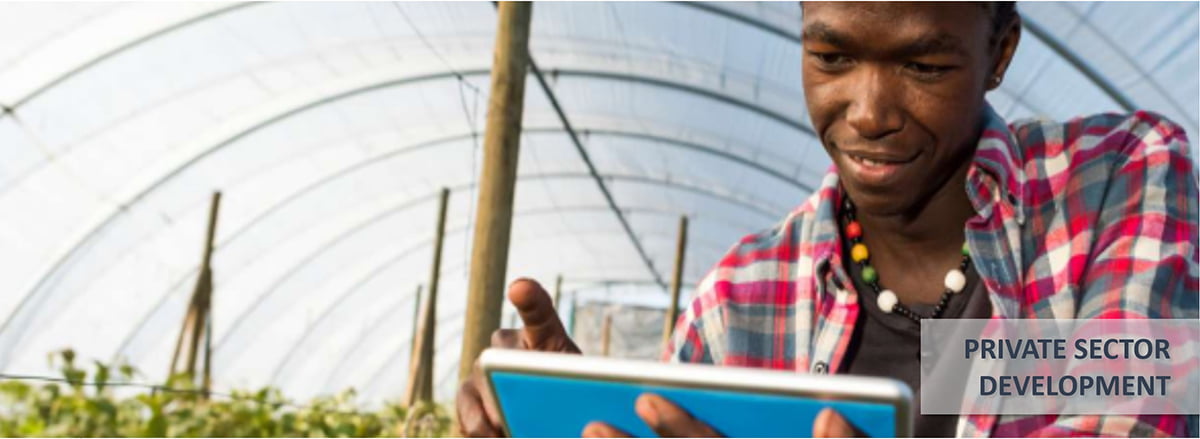
Private enterprises are the backbone of a national economy and play a critical role in helping achieve the Sustainable Development Goals (SDGs). Through Private Sector Development (PSD), SDC aims at creating incentives for sustainable and inclusive private-sector activities, providing economic opportunities of quality to poor people, in particular youth and women (SDG 5), at scale. Strengthened private sector enterprises are an important driving force in the move to create inclusive jobs and income opportunities (SDG 8) and ultimately contributing to poverty alleviation (SDG 1). However, private sector development is not enough to achieve inclusive economic development. Companies need investment capital and skilled workers if they are to create employment. It is therefore important to complement PSD with vocational skills development (VSD) and financial sector development (FSD). Market System Development and Value Chains 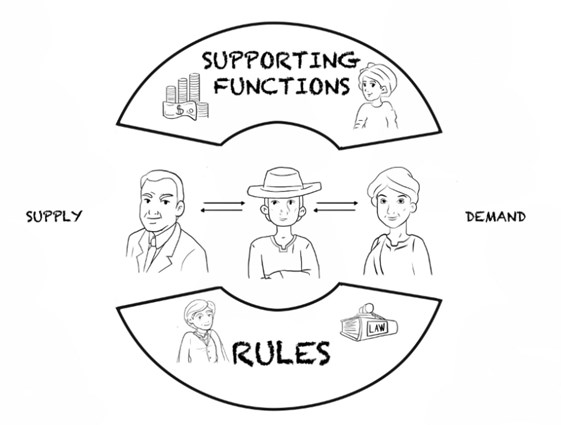 Many SDC projects in PSD take a sectoral approach, i.e. they focus on one or a few sectors or value chains. The ultimate goal is to improve the income and employment situation of MSMEs in these value chains. Often the SDC targets agricultural value chains and thus farming (micro-) enterprises as final beneficiaries. However, the SDC also supports income and employment opportunities in non-farm sectors, e.g. tourism, Information and Communications Technology (ICT), construction, etc. To achieve lasting improvements in value chains, it is crucial to take a systemic approach. This places a strong emphasis on the enabling environment (formal and informal rules that influence the value chains) as well as supporting services such as financial services or business development advice for MSMEs, which are necessary in the long run. The Market Systems Development (MSD) approach is the main approach for the SDC in PSD. As MSD is a systemic approach with relevance beyond PSD, it is considered a general approach for the whole range of inclusive econmic development programmes (PSD, FSD and VSD). It is partly used even in other thematic domains of the SDC (e.g. water and sanitation). The MSD approach puts strong emphasis on achieving sustainable results at scale through a thorough market systems analysis, a facilitative role of the project as well as adaptive management principles. The links below (video and 2-pager) provide a short introduction on MSD. Moreover, the SDC published an Internal Guidance Paper for staff members of the head office and cooperation offices on how to manage MSD projects. Many SDC projects in PSD take a sectoral approach, i.e. they focus on one or a few sectors or value chains. The ultimate goal is to improve the income and employment situation of MSMEs in these value chains. Often the SDC targets agricultural value chains and thus farming (micro-) enterprises as final beneficiaries. However, the SDC also supports income and employment opportunities in non-farm sectors, e.g. tourism, Information and Communications Technology (ICT), construction, etc. To achieve lasting improvements in value chains, it is crucial to take a systemic approach. This places a strong emphasis on the enabling environment (formal and informal rules that influence the value chains) as well as supporting services such as financial services or business development advice for MSMEs, which are necessary in the long run. The Market Systems Development (MSD) approach is the main approach for the SDC in PSD. As MSD is a systemic approach with relevance beyond PSD, it is considered a general approach for the whole range of inclusive econmic development programmes (PSD, FSD and VSD). It is partly used even in other thematic domains of the SDC (e.g. water and sanitation). The MSD approach puts strong emphasis on achieving sustainable results at scale through a thorough market systems analysis, a facilitative role of the project as well as adaptive management principles. The links below (video and 2-pager) provide a short introduction on MSD. Moreover, the SDC published an Internal Guidance Paper for staff members of the head office and cooperation offices on how to manage MSD projects.
Normative Documents
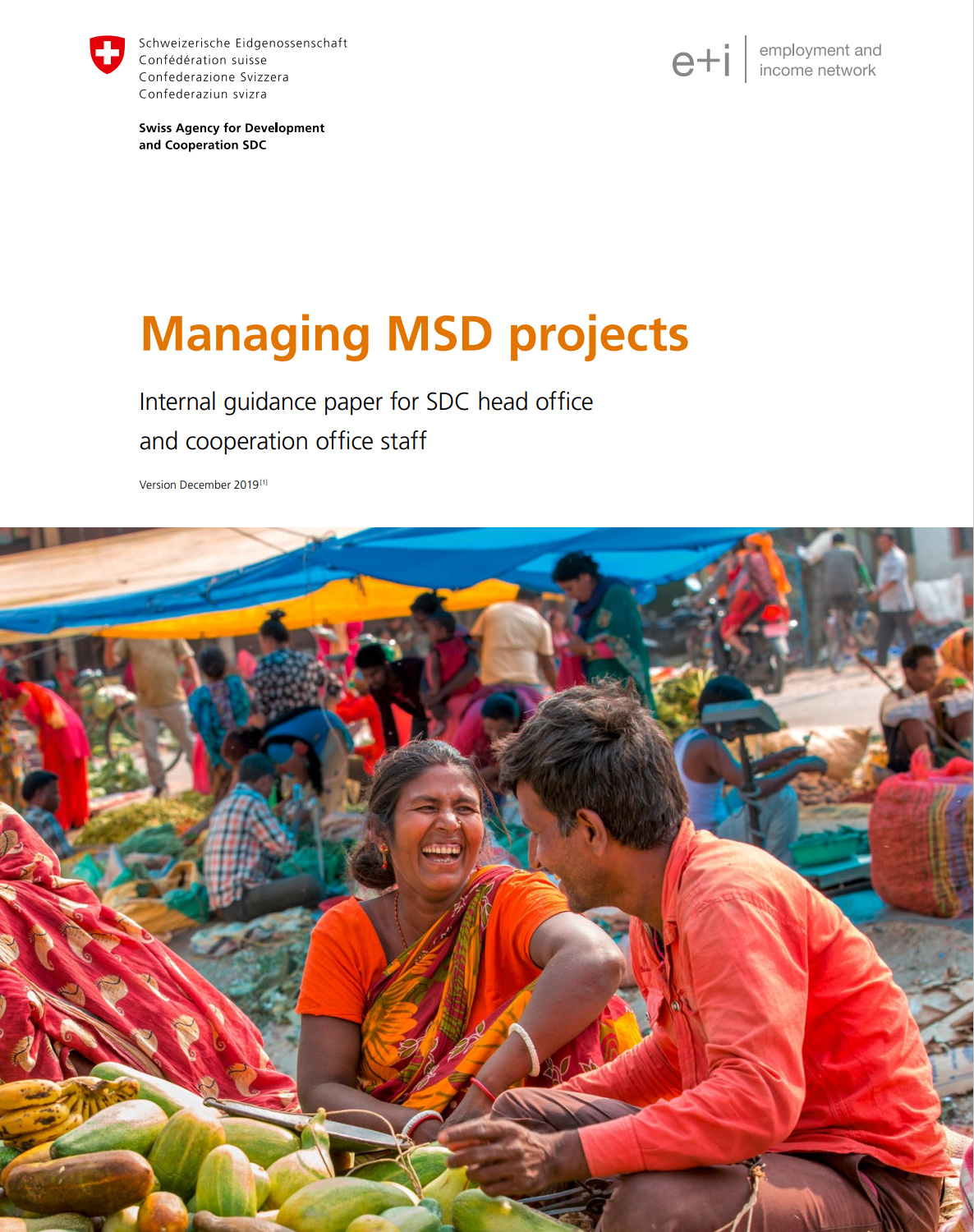
SDC
[1.1 MB]
This document is a guidance paper for SDC head office and cooperation office staff. This is the updated version 2022 in English and French. The Spanish version is from 2017. The guidance document provides advice for SDC staff on how to manage projects using a market systems approach. Advice is provided for developing the initial project idea and formal entry proposal, the tender process, the inception phase, credit proposal and implementation phase, steering and monitoring, evaluation and preparation of a following phase. Ce document est un guide d'orientation interne destiné au personnel du siège de la DDC et des bureaux de coopération. Ce guide fournit des conseils au personnel de la DDC sur la manière de gérer des projets utilisant une approche des systèmes de marché. Des conseils sont fournis sur les activités du personnel autour du développement de l'idée initiale du projet et de la proposition d'entrée en matière, du processus d'appel d'offres, de la phase de démarrage, de la proposition de crédit et de la phase de mise en œuvre, du pilotage et du suivi, de l'évaluation et de la préparation de la phase suivante. There is also a short video with explanation and overview of the guidance paper - see video in English or see video in French Further, there is a brief for decision-makers and poster that can be printed and displayed in your office to make people aware of the guidance
SDC
[1.5 MB]
This brief is specifically written for decision-makers who approve MSD projects – either entry proposals with opening credits or credits for main phases. It will guide you through the different phases of MSD projects and how they are linked to the SDC Project Cycle Management (PCM) – with a focus on phases relevant for approval. Click here for the updated guidance for managing MSD projects (version 2022).
SDC
[666 kB]
The General Guidance on PSE provides an orientation on the various forms of cooperation between the SDC and private sector actors and explains the engagement of SDC towards conducive economic policy frameworks. The General Guidance was drafted by the SDC in the course of 2020 and consulted with selected actors from the federal administration, the private sector and the civil society and is fully aligned with the 2030 Agenda for Sustainable Development of the UN.
Working Aids
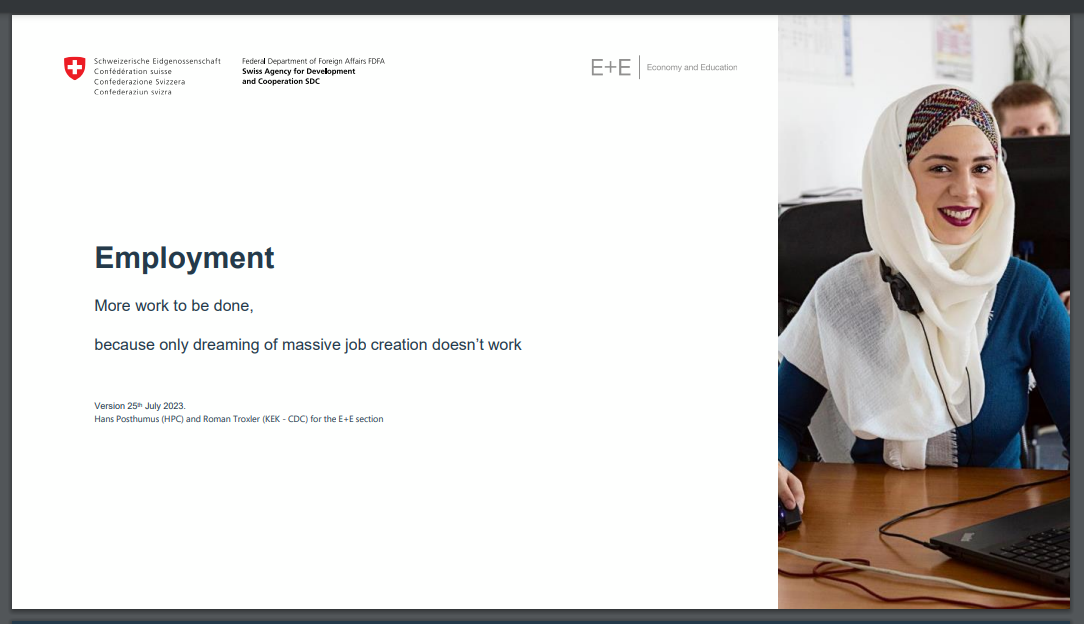
SDC / E+E
[1.1 MB]
Are you also concerned with unemployment rates? Are you also often disappointed with programs’ impacting under- and unemployment? Do you wish to make a difference for your target group? Then take 30 minutes to scan this slide deck that will help you to design and steer employment programs better.
It helps you to understand and address the real challenges in labour markets. It helps you to put labour markets central to your analyses and program design. It raises seven crucial issues and answering them will inform you how your programs should influence labour markets, with realistic expectations about the programs’ potential impact. This slide deck leans on existing and emerging concepts, approaches and tools and serves as a gateway to further readings.
Developing this slide deck raised discussions and we hope that this final version will also trigger further discussions in the field. That is what is needed if we are serious about unemployment.
Give us (Peter Beez and/or Hans Posthumus) feedback, tell us what you wish to do, and tell us what you need to make the difference!
SDC
[5.2 MB]
Low productivity is often a key constraint in many sectors. Yet sector productivity is rarely a good indicator for improved livelihoods of target groups. It says nothing about the root causes of low productivity and it says nothing about the resulting benefits of increased sector productivity. A systemic approach is needed; defining relevant sector and target group performance indicators to assess why root causes change and how that affects the target groups’ well-being.
SDC
[548 kB]
To support the uptake of the SDC Guidance on Results Indicators, the IED has elaborated supporting working aids for FSD, PSD and VSD projects. This working aid aims to provide information on good practice approaches to ensure credible measurement and reporting of results indicators for SDC’s FSD and PSD programmes. It supports the selection of relevant indicators for programmes, but does not include detailed information on how to measure each indicator. Watch this very short video explaining the rational of the working aid. Working aid on the use of result indicators in VSD programmes.
SDC
[2.4 MB]
The document brings together knowledge on Local Economic Development (LED) with current experiences of delivering LED within SDC. It aims to support design, implementation and steering of LED initiatives within SDC. After getting some initial understanding of what LED is this guidance will help you to deepen your understanding of the implications of LED for programme management within SDC’s Project Cycle Management (PCM).
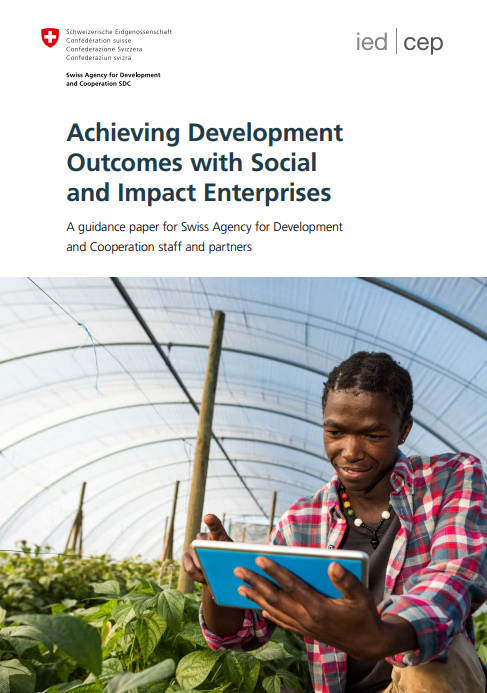
SDC
[2.8 MB]
Private sector engagement (PSE) is a priority for the Swiss Agency for Development and Cooperation (SDC), as highlighted in the federal dispatch 2021-2024. Within the universe of potential private sector partners, Social and Impact Enterprises (SIEs) – those enterprises with an intention to solve a social or environmental problem – are a natural ally for actors like SDC to achieve development outcomes. There are several reasons that make working with SIEs particularly interesting. There is an explicit alignment of vision and commitment to address a development challenge, when compared to other private sector partners. SIEs strive to be profitable and are sustainable beyond SDC support, when compared to not-for profit partners. They can therefore achieve high impact in a cost-effective way for SDC, since support is only supplemental and short-term. They can also promote highly innovative ways of achieving SDGs which can stimulate learning at SDC. That said, PSE overall and SDC working with SIEs in particular, is a relatively new way of achieving development outcomes. Challenges include: questions on how to find the right partner, the ideal governance for a partnership, the best financial instruments to support the SIE, and impact management. Partnerships with SIEs require careful design and agile implementation management. This guidance paper, the first of its kind, highlights some of these emerging issues. While the insights presented here do not constitute conclusive guidance on how to successfully engage SIEs, we discuss noteworthy findings and potential solutions
SDC E+E / FCHR
[7.2 MB]
SDC's thematic units Economy and Education (E+E) and Peace, Governance and Equality (PGE) engaged on a workstream to provide SDC staff with practical guidance on i) how to plan and implement IED projects in fragile contexts, taking into account the particular challenges of fragile contexts and ii) how IED projects can go beyond the minimalist approach of doing no harm (working in conflict/ fragility) by explicitly contributing to reduce fragility (working on conflict/fragility). This practical guidance sheet should be considered as additional practical tips to the slide deck and FAQ published on the shareweb (links below): Slide Deck: Inclusive economic development (IED) in fragile contexts FAQ: IED in fragile contexts Slide Deck
SDC
[94 kB]
Brief introduction to the Market Systems Development (MSD) Approach (2-pager, 2020, SDC)
SDC
[1.5 MB]
The objective of this paper is to provide guidance on good Monitoring and Measuring Results practice with respect to the process and the roles and responsibilities of SDC program managers managing PSD programs and to enable implementing partners to design, apply, and benefit from a monitoring and results measurement system that enables learning and reporting credible results and that complies with the DCED Standard for Results Measurement. The Good Practices paper was developed in 2016 and in late 2018 we sought feedback using an online survey and conducting in-depth interviews with SDC program managers. Find the summary of the feedback and the changes we have made to the paper here. We have revised the version in February 2019. The Good Practices Paper is with more than 750 unique downloads among the top three of the most-downloaded resources from the DCED website.
SDC
[14.4 MB]
A summary of lessons learned by Market Systems Development Practitioners. This document aims to capture some lessons and tips on how to form and manage partnerships with Private Sector Actors. Topics: • Who to partner with? • How to find and contact partners? • Deal making: how and what to negotiate? • Financing: what and how? • Contractual arrangements: what to consider? • Managing partnerships
SDC
[639 kB]
The summary paper of the e-discussion recognizes that there are important synergies between work in local economic development and in democratization, decentralization and local governance (DDLG). LED is a relevant approach for SDC as the approach integrates inclusive economic development and local governance, two priority topics for SDC. LED allows SDC to have a closer connection to an area and its local communities. LED is a way to empower people and include them in decision-making, which can reduce causes for conflicts.
SDC
[2.6 MB]
The operational guide for the making markets work for the poor (M4P) approach (2nd edition 2015, co-funded by SDC)
[145 kB]
This paper presents the context and background of local economic development (LED). The paper defines LED, looks at the development policy context and operating environments and addresses how donors are responding within a rapidly changing global environment. The paper also summarises lessons learned and the arguments for and against undertaking strategically planned LED as operational approach for employment creation, improvements in governance processes and poverty reduction.
Reference Indicators and Measurement
SDC
[5.2 MB]
Low productivity is often a key constraint in many sectors. Yet sector productivity is rarely a good indicator for improved livelihoods of target groups. It says nothing about the root causes of low productivity and it says nothing about the resulting benefits of increased sector productivity. A systemic approach is needed; defining relevant sector and target group performance indicators to assess why root causes change and how that affects the target groups’ well-being.
SDC
[2.4 MB]
To monitor the implementation of Switzerland's international cooperation strategy for 2021 - 2024, SDC has approved a set of ressult indicators according to the 10 sub-objectives of the strategy. Result indicators allow to assess outcomes and outputs achieved with SDC support. E+E has 5 ARIs - Aggregated Result Indicators. 2 ARIs for EDU 3 ARIs for IED
SDC
[2.5 MB]
To monitor the implementation of Switzerland's international cooperation strategy for 2021 - 2024, SDC has approved a set of reference indicators according to the 10 sub-objectives of the strategy. Result indicators allow to assess outcomes and outputs achieved with SDC support. E+E has a total of 10 TRIs 5 IED TRIs Thematic Result Indicators 5 EDU TRIs Thematic Result Indicators
SDC, DFAT, MoFA
This BEAM short paper (19 pages) explores how to develop a system change strategy and intervention plans that lay the groundwork for system change assessment, including how to set system boundaries and how to identify the system changes a programme aims to catalyse; and assess system changes using both (i) an intervention lens focused on changes introduced by specific interventions, and (ii) a helicopter lens that provides a whole system view.
A BEAM webinar where the four authors provided an overview and answered burning questions was attended by 166 practitioners. After that, the authors published a more depth version "A pragmatic approach to assessing system change, how to put it into practice" (91-pages) . It explains in detail how to implement this pragmatic approach with worked examples and useful tips.
SDC
[247 kB]
This Glossary includes the most important terminologies and definitions about IED result measurement.
Case Studies
SDC, Inovagro, Cowi, Dai
[1.9 MB]
Innovations for Agribusiness (InovAgro) is a Swiss Agency for Development and Cooperation (SDC) funded project which uses a market systems development (MSD) approach to improve the incomes for poor women and men small scale farmers in three provinces in Northern Mozambique (Nampula, Zambezia, and Cabo Delgado). The project is implemented by a consortium of DAI Europe and COWI. This case study captures InovAgro’s experience on facilitating the development of the market for the sales of certified seeds by private sector seed companies and agro-dealers to smallholder farmers (SHF) between 2014 and 2020.
>> for a short 2- page summary explaining all the nuts and bolts
S4J
[5.4 MB]
This case study describes how "Skills for Jobs "(S4J) launched and developed an apprenticeship system that meets the requirements of the private sector and describes the results in terms of graduates being more employable. This case also highlights how the program developed an appropriate monitoring system and how the program assesses the impact of this intervention, while dealing with attribution in this challenging context. We hope that different programs and stakeholders will be inspired by the learning acquired in the S4J program, both in terms of designing and managing sustainable interventions in VET and in terms of the ways in which an appropriate Monitoring and Results Measurement system helps to manage interventions and report credible impact.
SDC, InovAgro
[456 kB]
Innovation for Agribusiness (InovAgro) is in the final year of implementation. Along three phases, spanning 10 years, the Project has facilitated the development of the agriculture markets by innovating, testing, and adapting market systems business models which increase the inclusion of, and benefit, to male and female smallholder farmers. The successful models are then scaled-up. This case study captures the experience of InovAgro’s work on creating a better enabling environment for the seed industry to increase its competitiveness for the benefit of SHF in Mozambique. As such its impact will extend beyond the project’s limited geographic area, reaching the entire country. The case study is based on a comprehensive review of project documentation, interviews with key stakeholders, and the author’s first-hand experience.
SDC
[729 kB]
We have closed a program called Market Access for the Rural Poor program through value chain support (MARP) 2012-2016. The project, results achieved and lessons learned are described in the reader-friendly Asia Brief on the MARP project. With the positive results achieved.
HELVETAS Swiss Intercooperation
[1 MB]
This case study was done less than two years after the project started supporting key market actors in the IT sector. It was therefore unlikely to already demonstrate the full eventual impact of the IT firms on jobs for young women and men. Two leading actors of the IT sector in BiH – HUB 387 and Bit Alliance – were used as entry to stimulate broader changes in the sector. The MarketMakers project were able to bring about greater awareness of IT as a career choice and an increasing number of students choosing IT education; improved public-private dialogue for changing perceptions of the IT sector in Government and the growth of trust between the Government and the private sector; and trust and interaction among IT private firms where entrepreneurship and innovation are valued, encouraging small companies and start-ups to grow more aggressively.
SDC
[459 kB]
This case study is part of a comparison of the M4P framework and the Sustainable Livelihood Approach. It reviews and positions the two dominant frameworks or approaches with each other and describes a possible series of steps to further examine each with a view to enhancing them as frameworks for analysis and action.
Springfield Centre
[183 kB]
This case study is one of a series exploring the application of the M4P approach to different fields of private sector development. A consideration of business environment issues features prominently in M4P approaches, where an understanding of how the “rules of the game” influence whether market are pro-poor or not is the starting point for intervention, .it draws on a range of small-scale or pilot activities to improve the business environment in Indonesia and Russia.
Evaluations and Reviews
IED - SDC
[5.3 MB]
An independent evaluation assessing how SDC-financed MSD projects in agriculture were implemented from 2013 to 2019. SDC funded 275 projects in this period that had major elements of MSD in agriculture. Overall the evaluators conclude that MSD was demanding on project teams and the Swiss Cooperation Offices (SCOs). A high level of skill was required to find market failures and define what to do. Ensuring actions needed to stimulate the private sector without distorting the market whilst avoiding the project becoming trapped as a permanent actor. Over several phases, projects built up their skill base. They achieved this either by training their own staff or by building local NGO capacity. This gave rise to a slow start, but it paid dividends over the years with considerable skills being built up within the projects. This report includes the management response. Link to the factsheet.
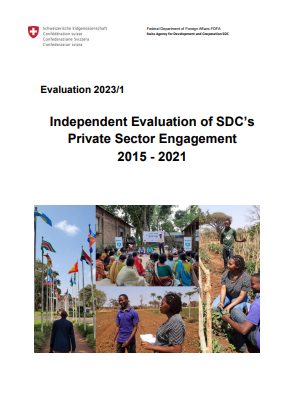
SDC
SDC commissioned an independent evaluation of SDC’s Private Sector Engagement (2015-2021). The evaluation assessed the performance of SDC’s programmes and projects along the OECD DAC criteria of relevance, coherence, effectiveness, impact, efficiency, and sustainability. The evaluation aims to support SDC in achieving the objectives of Switzerland’s International Cooperation Strategy 2021-2024, and in contributing to achieving the Sustainable Development Goals (SDGs). Overall, the evaluation found that the diligent effort and significant resources invested by the SDC in its PSE are paying off in innovation, learning and results progress. However, there are some crucial issues SDC still must address for its PSE to achieve its full potential. In terms of PSE usefulness to contribute to SDC and its partners’ goals, the evaluation found that the Agency is effective. It is, however, well-positioned to do more in the short and medium terms. To do so, the Agency needs to better strategize its way forward. SDC’s PSE modality is working well to foster partnerships with the private sector. Yet, to ensure that PSE contributes to the goals of the private sector, SDC must take their needs and priorities into consideration. PSE is useful to contribute to partner countries’ goals. Projects normally match partner countries’ national needs and priorities. Nevertheless, the evaluation also highlighted the lack of involvement of the governments themselves in SDC’s PSE projects. While PSE focuses mainly on creating synergies with the private sector, it is also important to have national governments involved, including authorities at the sub-national level. Link to the presentation.
Relevant News
-
06 May 2024
-
15 Apr 2024
-
26 Mar 2024
-
03 Mar 2024
-
27 Feb 2024
-
27 Feb 2024
-
21 Feb 2024
 06 May 2024
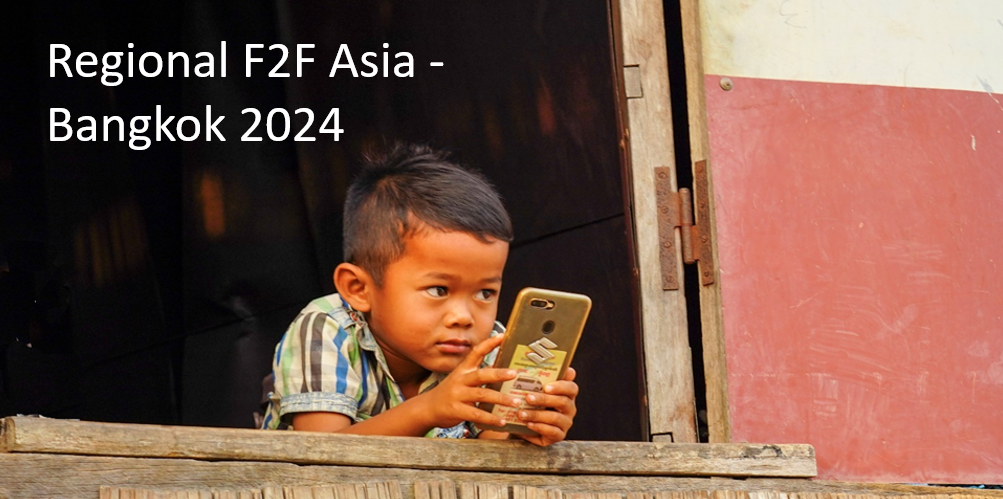
From 6 to 9 May 2024 the Regional F2F Asia is taking place in Bangkok.
Objectives of the event: - Strengthen the collaboration between thematic and geographic divisions in line with F4P and promote thematic regional networks in Asia by sharing experiences among SDC staff working in the Asia region
- Familiarize participants with basic concepts of PSE and inclusive green economy (IGE)
- Develop project ideas for (i) new PSE and IGE projects in country; (ii) “greening” existing projects or looking at existing projects through a PSE lens; (iii) better integrate the activities related to PSE and IGE from a regional perspective;
For more information click here
 15 April 2024
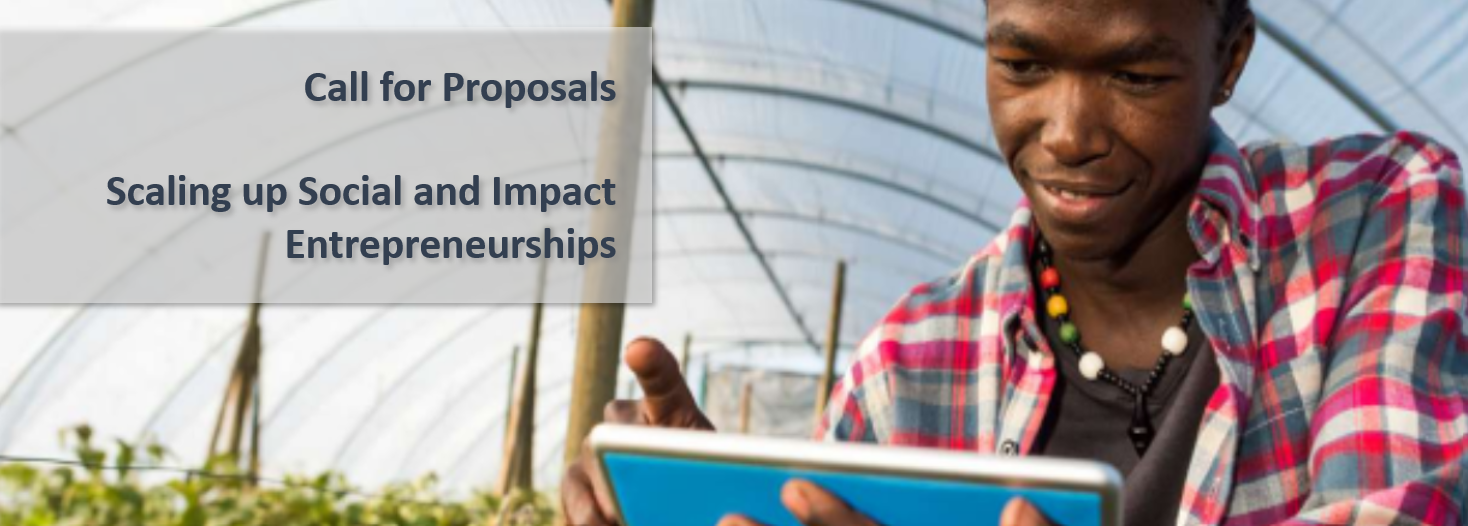
Decision on concept selectionIn total, the evaluation team carefully assessed 41 submitted proposals against the criteria set out in the Call for Proposals and spoke to the top 5 ranked organisations/consortia about their proposal. We thank all submitting organisations for their work, efforts and ideas. Due to budget constraints, we can only implement one proposal. However, we hope that the various excellent ideas will be implemented in the near future, with or without SDC involvement. The selected proposal is that of the Draper Richards Kaplan Foundation, the Amahoro Coalition and GrowthAfrica. It will be further developed in a joint process with SDC over the coming months. Once again, many thanks for your commitment and the excellent ideas and proposals submitted. Best regards, SDC E&E Team - Selection Committee
 26 March 2024
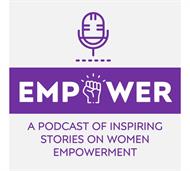
📣 Out Now! SDC Empower! Podcast Episode 13 🎧
The Power of Gender Lens Investing: Shifting Capital to Close the Gender Gap 💼✨
In the face of worsening gender disparities, investing in girls and women emerges as a vital strategy. Join us as we delve into the transformative power of gender lens investing with Jessica Espinoza, CEO of 2X Global. From entrepreneurship to supply chain practices, Jessica Espinoza sheds light on the potential of gender lens investing to drive both financial returns💰 and social impact🌍. Envision a future where increasing amounts of capital within the expansive financial system are redirected towards advancing gender equality. This shift has already begun. This episode explores how we can accelerate it together🤝. 👉 Listen to it here To see pictures of our guest Jessica Espinoza spearheading the promotion of gender lens investing internationally, watch the short video on LinkedIn, Facebook, Instagram, and Twitter. And don’t forget to like and share it with your network.
Do you have a new podcast topic idea? We look forward to recieving your suggestions: miranda.fiedler@eda.admin.ch
All episodes can be found on spotify and google podcast. 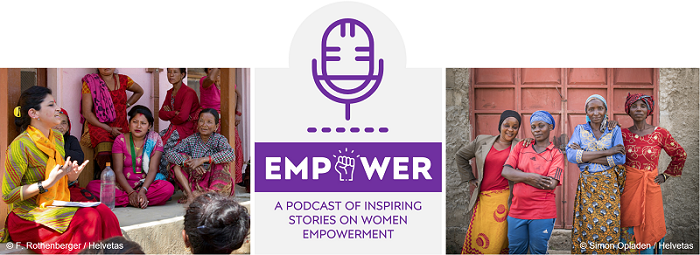
Happy Listening! 🎧 Brought to you by the Peace, Governance and Equality Section (PGE) & the Economy and Education Section (E+E)
 03 March 2024
We are excited to share that we have just launched a fresh series of events designed to bring us together in a more informal setting. It's not just about showcasing our "final" products, but also about learning, sharing updates, understanding how others tackle projects, and gaining insights from various processes. The series is called: The Inclusive Economy Open Mic. The experiences will be shared with the education network for (mutual) learning and uploaded to the E+E shareweb. More information: here
 27 February 2024
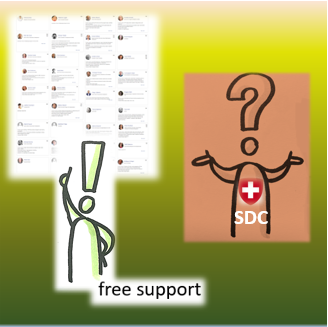
SDC E+E network members can ask for support from a pool of external experts for up to 3 days for PSD, VSD and FSD projects and for up to 4 days for PSE projects. You can use this service without any contracting and free of cost or administrative work for your unit. If your request is of general interest, the E+E network may even be able to cover for more than the above-mentioned duration. Find more information here on our shareweb.
Are you curious to learn how other colleagues have used this offer?
- Four colleagues from the SDC Chad and two colleagues from SDC Niger requested a tailored Market Systems Development (MSD) Training through the free support by external experts. The training took place between mid-October and mid-November 2023, consisting of online classes and offline homework. The participants not only benefitted from conceptual inputs and practical work on their own projects, but this also offered the opportunity to exchange and strengthen the connection between the two offices. - Several SDC head office staff (VSD, PSD, PSE) and country offices requested further information about the possibility of engaging Swiss institutions and experts in hospitality and tourism. Online exchanges took place in the form of a question-and-answer session, followed by a mapping of the main Swiss actors and the sharing of additional resources. The participants benefitted from learning about previous SDC and SECO projects and an analysis of the different actors regarding their potential involvement in the different types of projects. More information: here
 27 February 2024
Do you also wish to learn more about how development programmes can make a meaningful contribution to changing the existing economic system to an Inclusive Green Economic (IGE) system?
Then join the SDC Economy network’s upcoming series of consultation tables on Green Skills, Circular Economy and Green Finance. You will find more information about the consultation process, outcomes and interesting reading materials on our newly created Shareweb page “Inclusive Green Economy”.
Looking at skills in the Inclusive Green Economy: The Donor Committee on dual VET (DC dVET) is conducting a series of interactive online Barcamps (Webinars) between October 2023 and June 2024. You can find more information on our new Shareweb page "Inclusive Green Economy".
Graph: See the "Inclusive Green Economy Orientation paper" (2023), page 9, for complete graph.
 21 February 2024
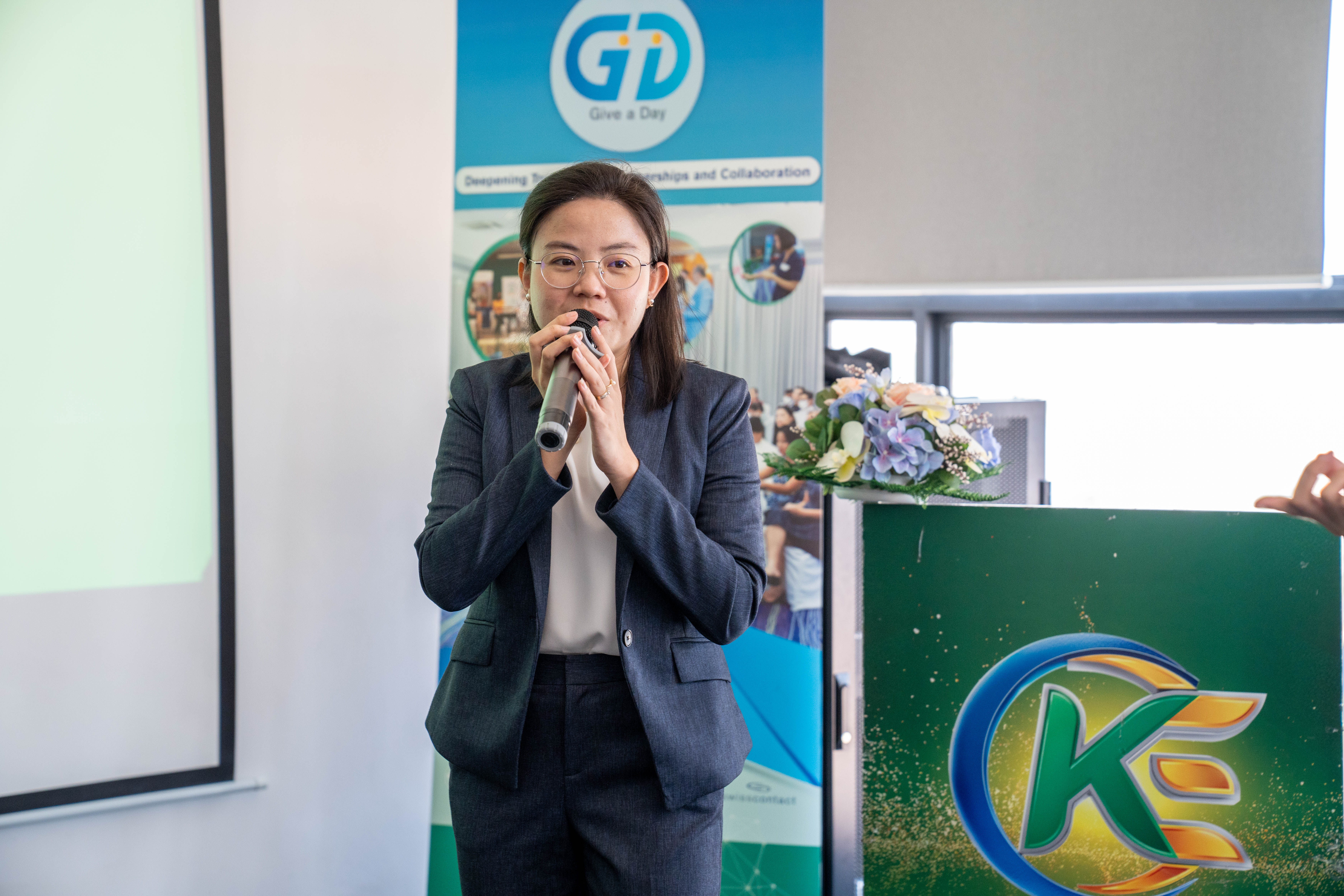
The SDC-supported project Enhancing Entrepreneurial Ecosystems and Investments (3Ei) just started its second year of implementation in Cambodia. It is the first project in the field of entrepreneurship and start-up enhancement within SDC’s Inclusive Economic Development portfolio in the country. Still recovering from the COVID-19 pandemic, Cambodia’s economy is characterized by a high degree of informality and an increasing number of small and growing businesses (SGBs). These are considered a driving force for economic growth and have given rise to the emergence of multiple supporting actors in the ecosystem, especially for young entrepreneurs. However, these initiatives in support of entrepreneurs and potential investors remain fragmented and uncoordinated. Moreover, SGBs in Cambodia generally lack affordable financing and face a number of additional challenges, such as limited access to new technologies. Against this background, the 3Ei project co-implemented by Swisscontact and the government agency “Khmer Enterprise” was launched in early 2023 to strengthen the entrepreneurial ecosystem and mobilize investments in SGBs and start-ups in Cambodia. It is co-funded by SDC, KOICA and Khmer Enterprise. On the one hand, the project aims to enhance coordination and collaboration within the ecosystem, and on the other hand, it aims to increase business performance and investments. The main project intervention areas are fourfold: 1. Deepen productive relationships within the entrepreneur ecosystem 2. Foster entrepreneurship and innovation with the support of external experts and consultants 3. Strengthen reliable data to increase the transparency and attractiveness for investments 4. Establish a blended finance services facility which allows impact enterprises to access technical assistance for pre and post-investment In December 2023, one of the project’s key events, “Cambodia’s Entrepreneurial Ecosystem Strengthening Conference” (CAMESCO), successfully held its second edition in Phnom Penh. It attracted around 180 participants representing close to 90 national and international institutions and discussed critical topics such as gender lens investing, blended finance and lessons learned about global and regional best practices. It can be considered as the culmination and wrap-up of a year’s efforts to strengthen Cambodia’s entrepreneurial ecosystem. Started in 2023 and still ongoing, the 3Ei project also coordinates the establishment of a national entrepreneurial ecosystem roadmap strategy, which is planned to be endorsed by the Ministry of Industry, Science and Technology later this year. The strategy will serve as a tool to identify key actors and priority interventions in the sector, ensuring a coherent and efficient approach for the ecosystem as a whole. With the project ending in 2027 only, several more promising years of joint efforts are yet to come! 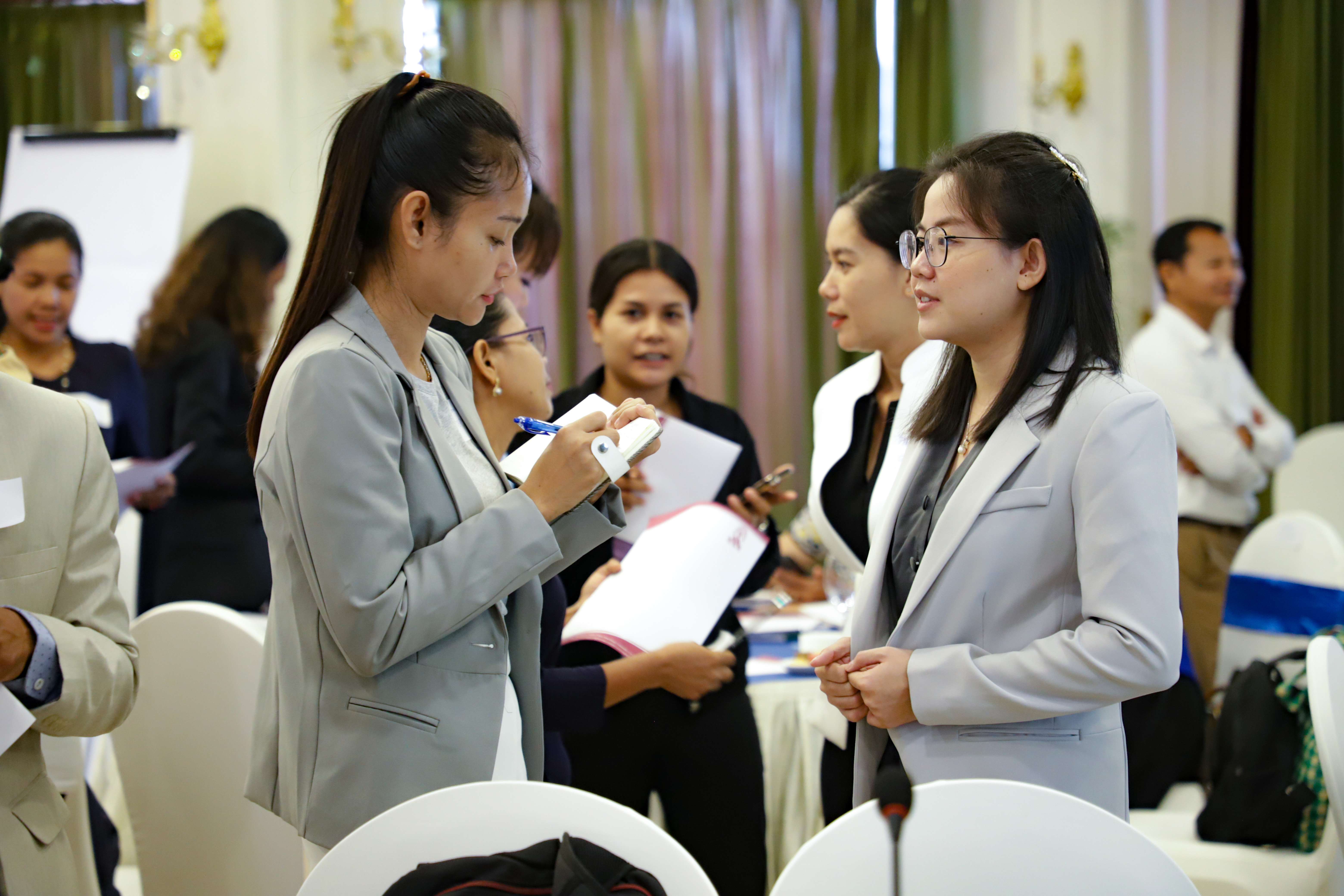 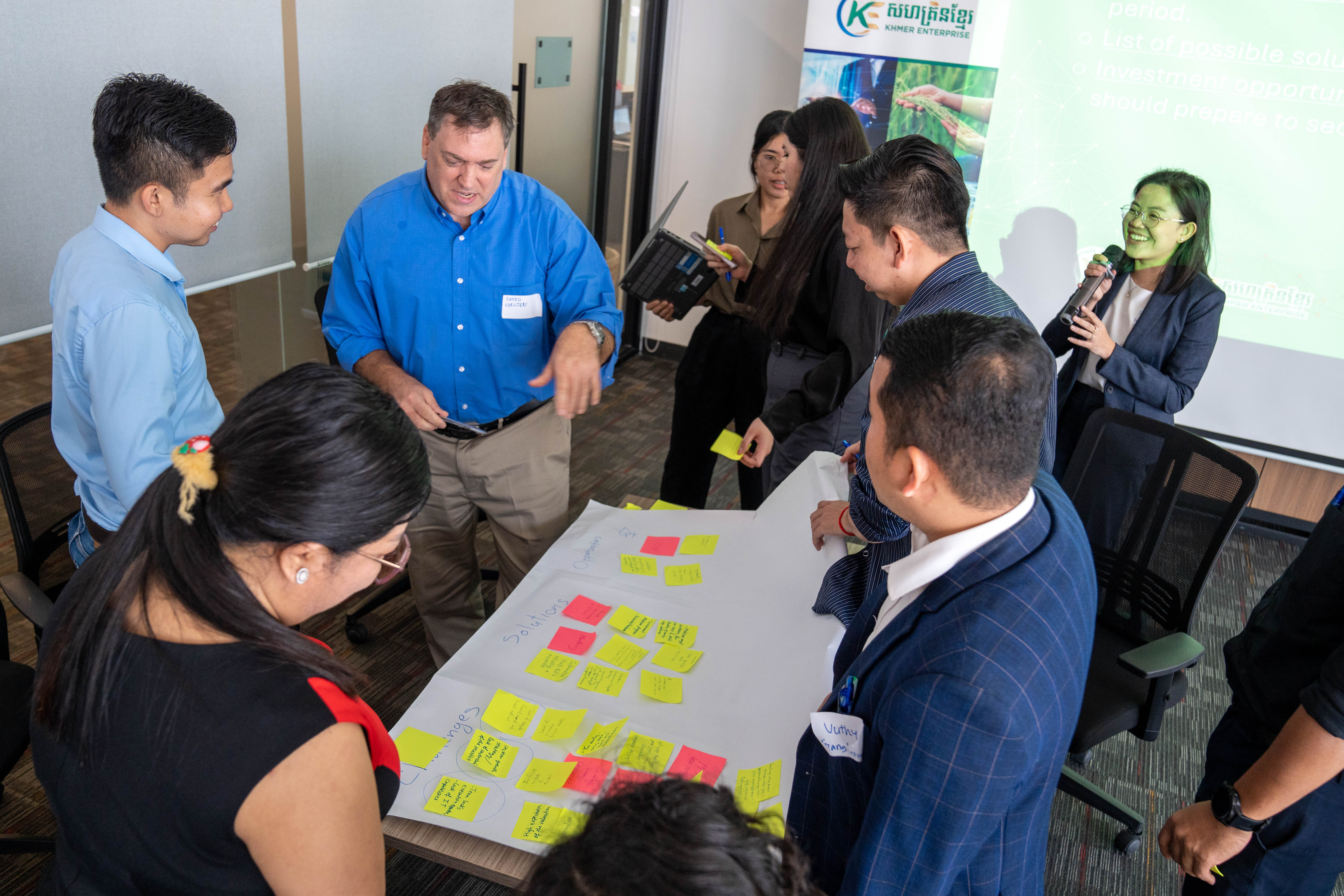 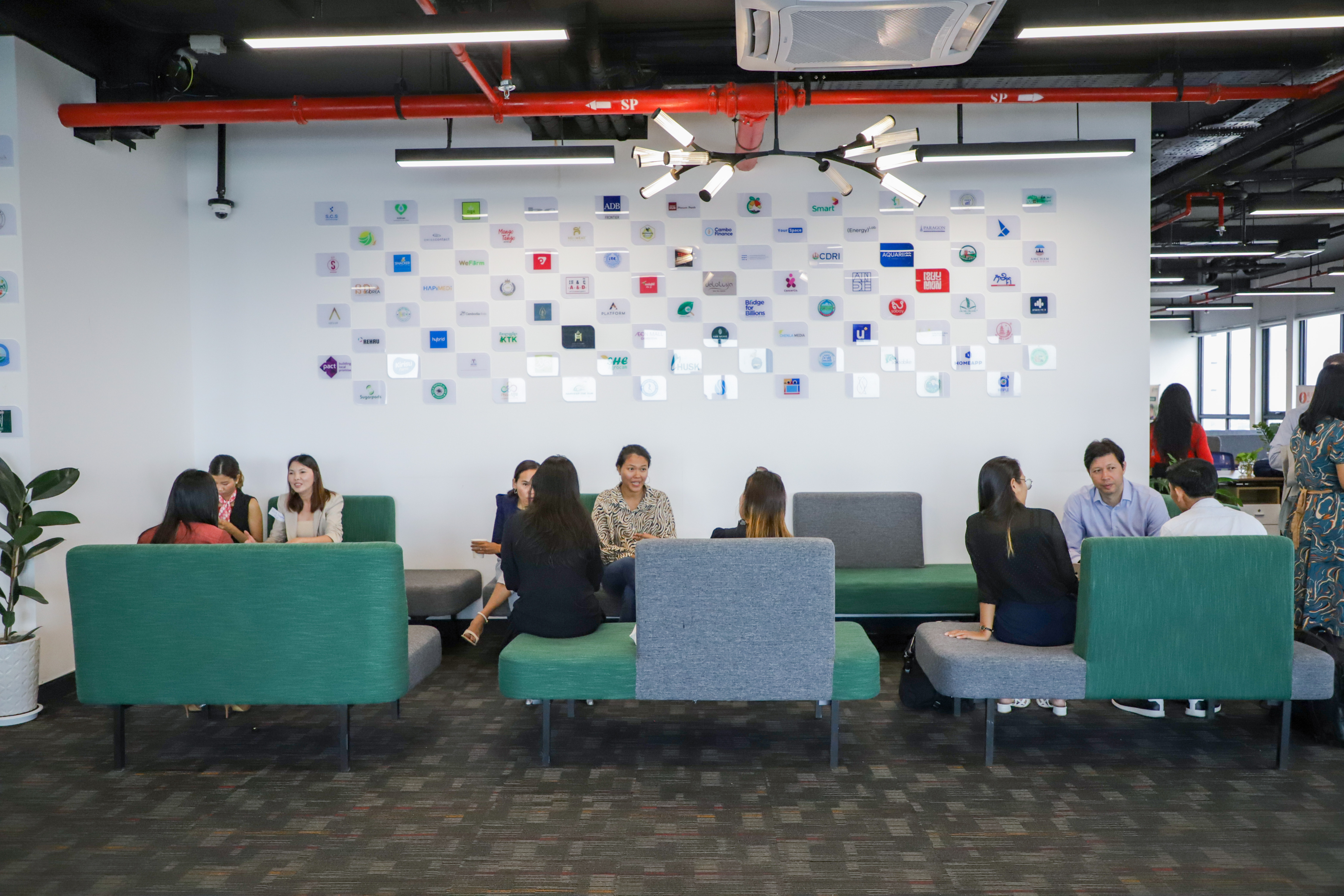
 12 February 2024
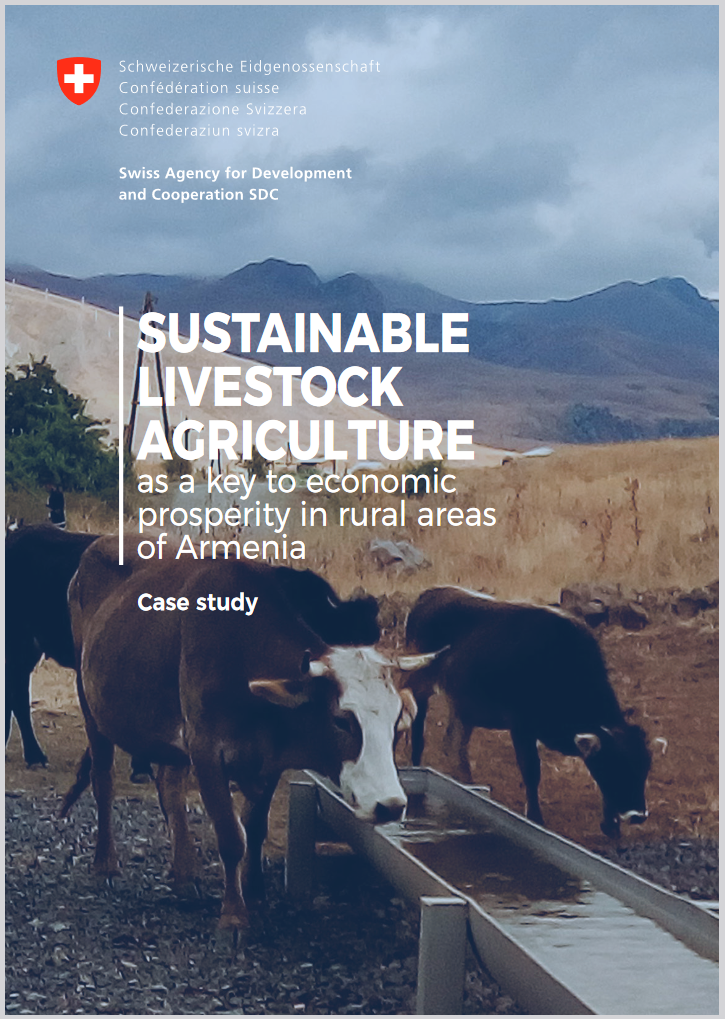
Livestock farming has been traditionally practiced in Armenia for centuries. Up to this day, it remains one of the most common businesses in the local communities with a far-reaching impact on the whole country and a solid potential to address unemployment and labor emigration issues, continuously improving living standards in the regions. In 2006, the Swiss Agency for Development and Cooperation SDC and the Strategic Development Agency NGO (SDA) launched the Livestock Development in Armenia project to further develop and support the sector. Through multiple implementation phases, the Project pioneered efficient livestock practices, initially in southern Armenia and then expanding to the north, introducing modern methodologies and technologies, establishing relevant infrastructures, and providing necessary equipment and training. The project covered the majority of Armenia's administrative districts in the south and the north of the country, including an extensive number of settlements in Syunik and Vayots Dzor and Gegharkunik, Tavush, Lori, and Shirak regions.
This study introduces the key achievements and objectives of the Livestock Development in Armenia project (2006-2021).
You can find more information here or download the study (pdf).
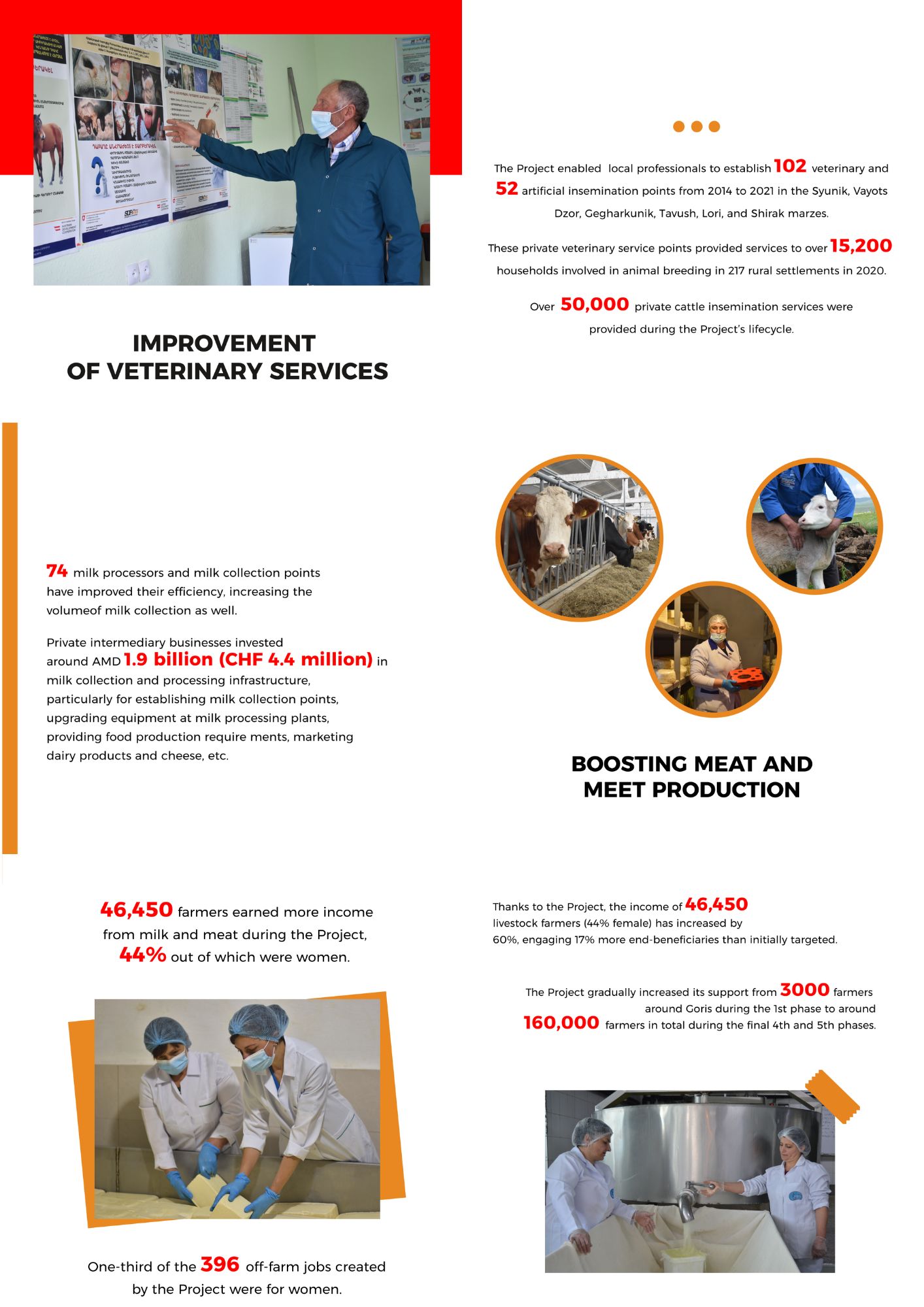 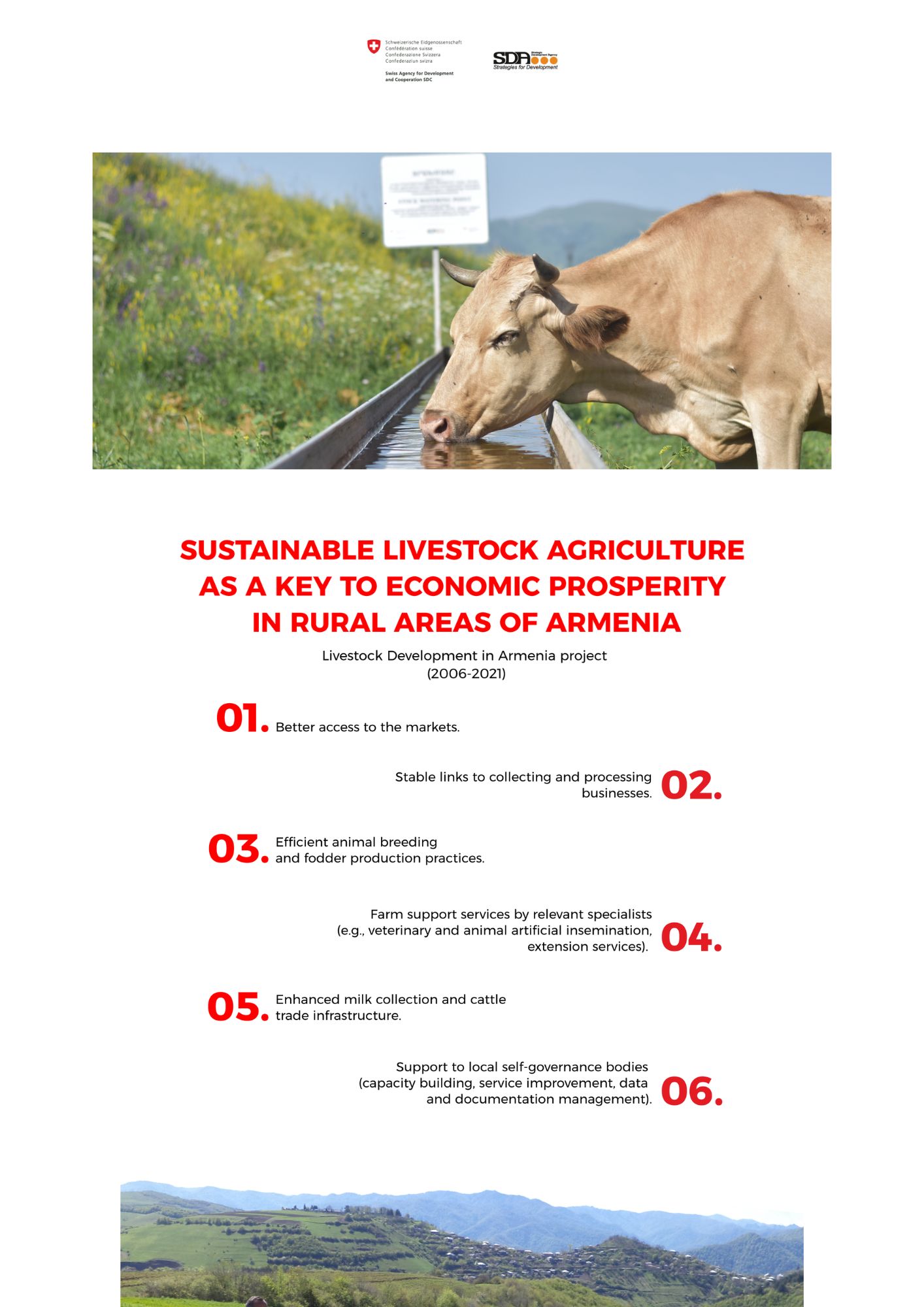 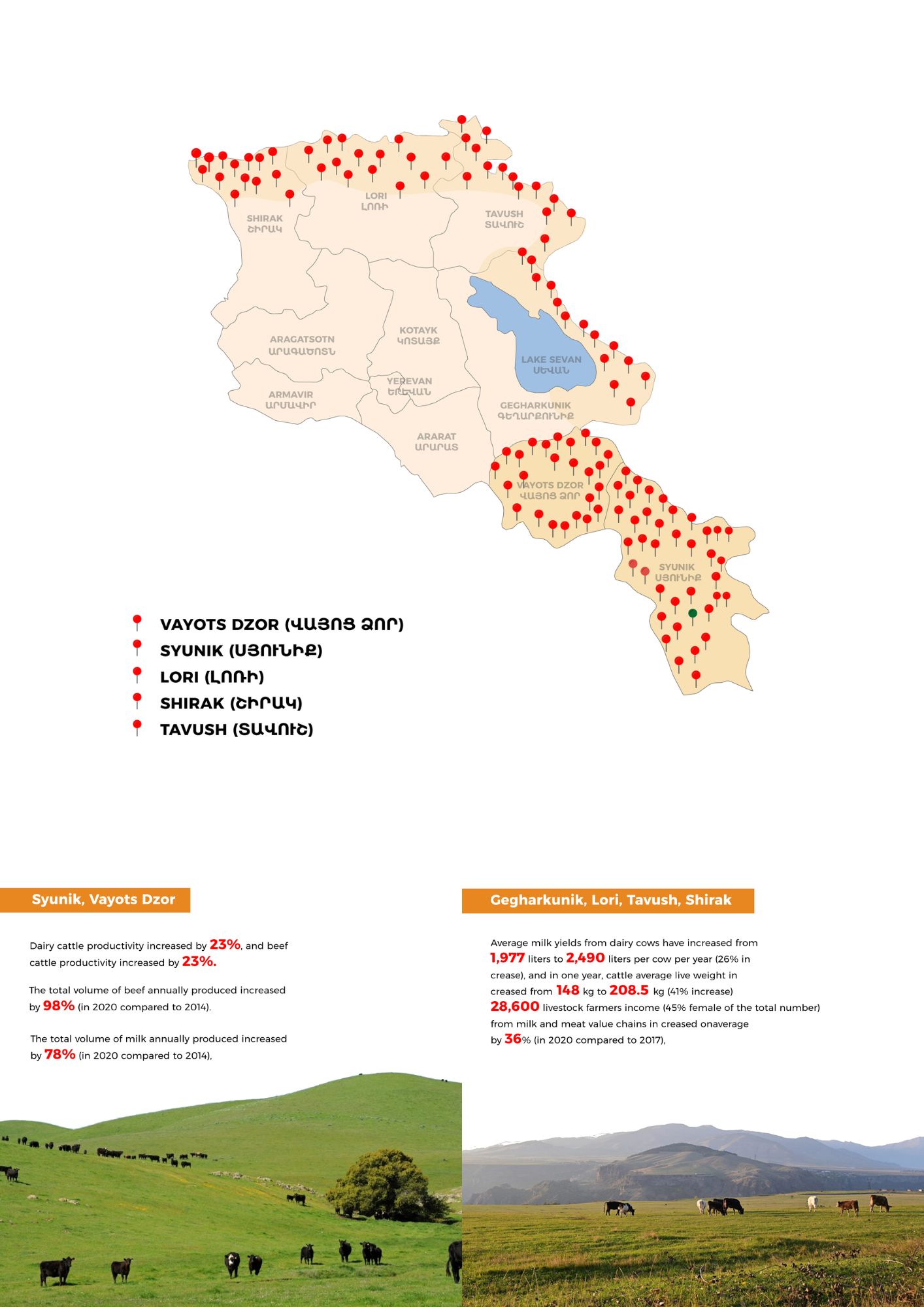
 15 December 2023
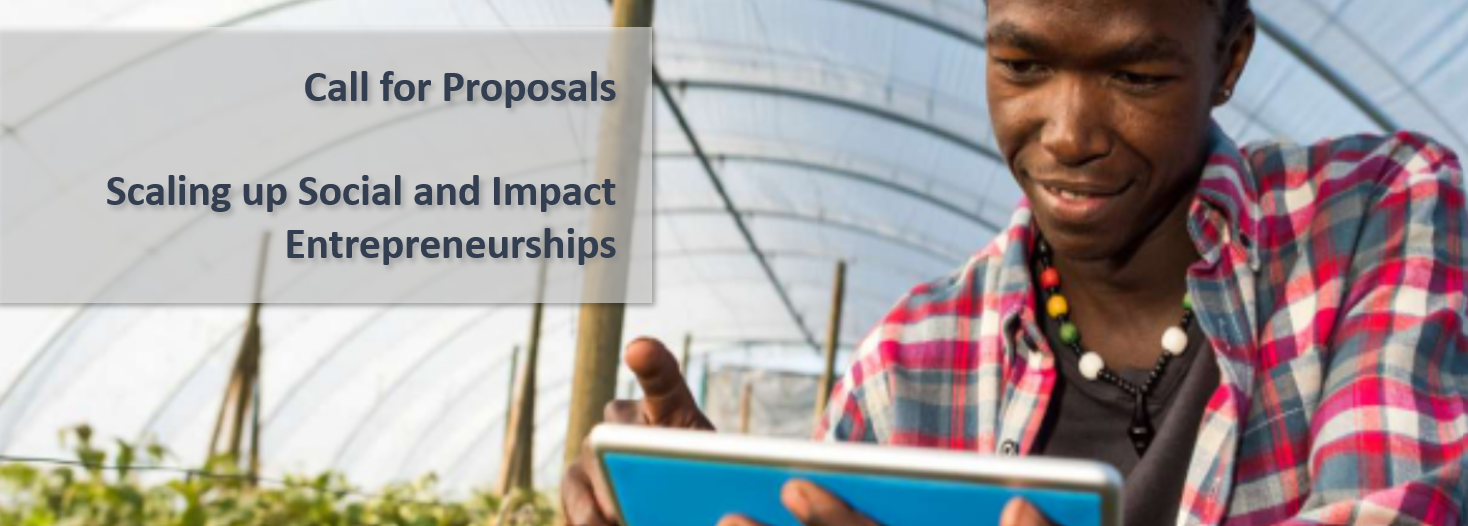
The Section Economy and Education of the Swiss Agency for Development and Cooperation has opened a Call for Proposal looking for innovations in Scaling up Social and Impact Entrepreneurships.
All the necessary information regarding this Call for Proposal is available in the following documents:
1 - Call for Proposal: Scaling up Social and Impact Entrepreneurship - here 2 - Standard contract: Federal contribution for project - here 3 - Standard contract: Contribution outside Switzerland - here 4 - General conditions for contracts concerning federal contributions for projects - here
Questions related to this Call for Proposals can be submitted by email to the following address kep@eda.admin.ch with the subject: “Scale up Social and Impact Entrepreneurship”. All questions and relative answers will be anonymously and openly available on this website.
Deadline submission of questions round 1: 22 December 2023 Publication responses to questions / round 1: 8 January 2024 - The answers to your questions are now avaliable here Deadline submission of questions round 2: 15 January 2024 Publication responses to questions / round 2: 24 January 2024 - The answers to your questions from round 1 and 2 are now avaliable here
The proposals have to be submitted by 29 February 2024, 24:00 CET at the latest to the following email address: kep@eda.admin.ch with the subject: “Scale up Social and Impact Entrepreneurship”.
In August 2023, SDC organised a physical ideation workshop on SIEs together with some European-based SIE expert organisations, many of which SDC has already worked with on this topic. In September and October 2023, it shared and discussed the “take aways” from this workshop in four virtual brainstorming sessions with interested stakeholders, many of them regional and local organisations from the Global South, many of which expressed an explicit interest to SDC’s section E&E in collaborating within the framework of this upcoming project. The “take aways” from the ideation workshop are available here The list of organisations who expressed an explicit interest to SDC’s section E&E in collaborating within the framework of the project is attached to the document “Call for Proposal: Scaling up Social and Impact Entrepreneurship”.
 08 December 2023
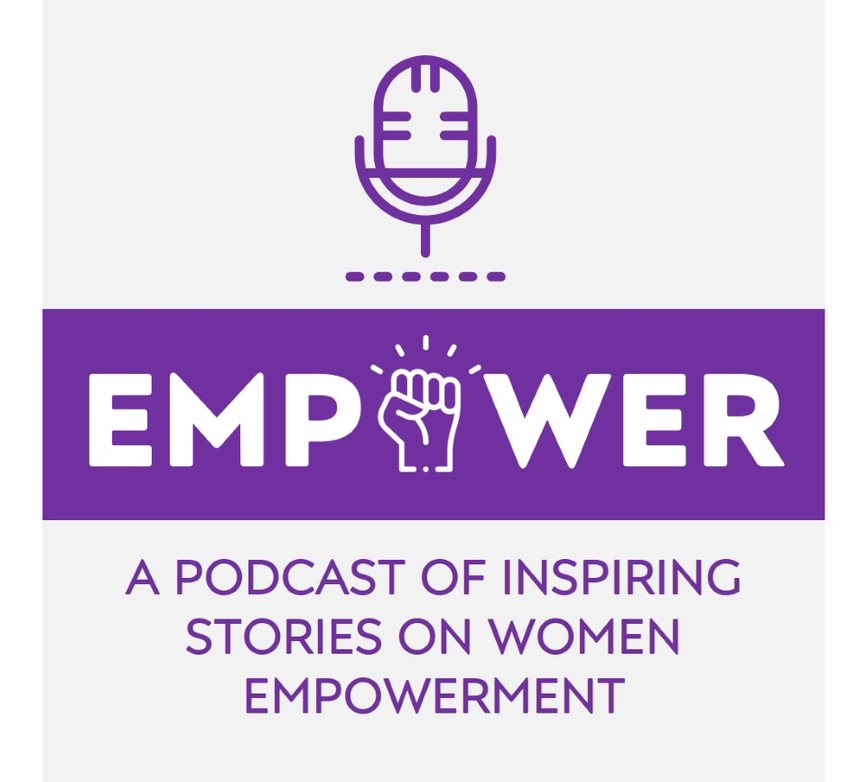
Listen to episode 12 of the SDC ‘Empower!’ Podcast, featuring inspiring and insightful stories on how to promote women’s economic empowerment
As part of SDC’s 16 Days of Activism against Gender-Based Violence (GBV) Campaign, the Empower! Podcast released a new episode on GBV prevention.
Economic deprivation and economic exclusion of women is connected to gender-based violence (GBV). In this episode, Rana Al-Motairi and Reine Musharbash from the International Rescue Committee (IRC) explain how they use women's economic empowerment as an entry point to engage men and boys in the prevention and reduction of GBV in refugee camps and the wider society in Jordan. Paired with economic interventions, gender discussion groups encourage a shift towards more equitable power relations within the households. Moreover, in the so-called engaging men in accountable practice interventions, men are challenged to rethink their belief systems, guided by the voices of women in their community. To see pictures of our guests and the IRC projects discussed in the episode, watch the short video on LinkedIn, Instagram, Facebook, or X. And don’t forget to like and share it with your network.
All episodes can be found on spotify and google podcast. Happy Listening! Brought to you by the Peace, Governance and Equality Section (PGE) & the Economy and Education Section (E+E)
 05 December 2023
 05 December 2023
Businesses have a responsibility to respect human rights. On the 15th of November 2023, the Federal Council recommitted to implementing the UN Guiding Principles on Business & Human Rights in Switzerland and tasked the PHRD and SECO with updating the Business and Human Rights National Action Plan for 2024-2027 (NAP). Click here to learn more and find tools and guidance on how to promote human rights in the private sector in your work.
Check out the video series on business and human rights, where human rights due diligence and risk analysis are explained.
 05 December 2023
As part of SDC’s 16 Days of Activism against Gender-Based Violence (GBV) Campaign, the Empower! Podcast released a new episode on GBV prevention. Listen to Rana Al-Motairi and Reine Musharbash from the International Rescue Committee explain how they use women's economic empowerment as an entry point to engage men and boys in the prevention and reduction of GBV in refugee camps and the wider society in Jordan. Get inspired by this or any of the previous 11 episodes: here.
 29 November 2023
Are you interested in thematic mentoring, or have you recently joined the Economy and/or Education Networks as an NPO or in another role and are eager to learn? Mentoring is a renowned technique for personal development and professional growth that benefits both parties. Click here to access the information brochure and registration form. We will make sure you are matched with the right person based on your interests and experience.
 25 October 2023

The Gender Scaling Financing Facility (GSFF) is an ambitious initiative to power the growth of gender-mainstreamed social enterprises across Latin America, promoted by LeFil Consulting and Pro Mujer with the support of the Swiss Development and Cooperation agency (SDC). It targets 100 impact-driven, market-based ventures operating in the region, ranging from small to large size, with no restrictions on sector. Go to page Gender Scaling Financing Facility - GSFF
 16 October 2023
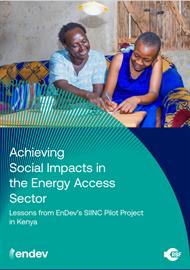
Achieving Social Impacts in the Energy Access SectorKey Takeaways from EnDev’s Social Impact Incentives (SIINC) Off-Grid Energy Pilotfinanced by the Swiss Agency for Development and Cooperation (SDC)
EnDev is excited to share a lessons learnt report from the completed implementation of our recent pilot project in Kenya: an explicitly impact-oriented Results-based Financing (RBF) project. Piloting this so-called SIINC project in the field of energy access gives us insights and food for thought for the future of RBFs. Click here for the full news article & video. Social Impact Incentives (SIINC) was co-developed by the Swiss Agency for Development and Cooperation and Roots of Impact. It is a financial instrument that rewards enterprises for achieving social impact – instead of pure sales figures. The aim is thus to leverage funds to catalyse private investment in underserved markets to generate impact. Energising Development (EnDev) is a strategic partnership of likeminded donors and partners to support access to modern energy. The driving forces behind EnDev are Germany, the Netherlands, Norway and Switzerland.
 21 September 2023
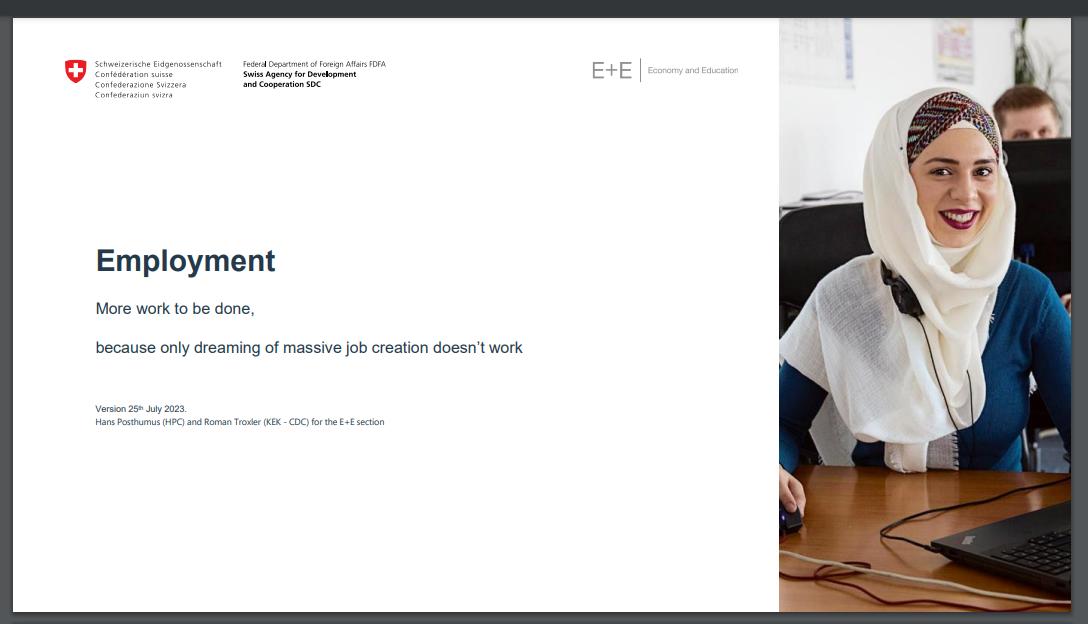
Are you also concerned with unemployment rates? Are you also often disappointed with programs’ impacting under- and unemployment? Do you wish to make a difference for your target group? Then take 30 minutes to scan this slide deck that will help you to design and steer employment programs better.
It helps you to understand and address the real challenges in labour markets. It helps you to put labour markets central to your analyses and program design. It raises seven crucial issues and answering them will inform you how your programs should influence labour markets, with realistic expectations about the programs’ potential impact. This slide deck leans on existing and emerging concepts, approaches and tools and serves as a gateway to further readings.
Developing this slide deck raised discussions and we hope that this final version will also trigger further discussions in the field. That is what is needed if we are serious about unemployment.
Give us (Peter Beez and/or Hans Posthumus) feedback, tell us what you wish to do, and tell us what you need to make the difference!
 21 September 2023
Low productivity is often a key constraint in many sectors. Yet, sector productivity is rarely a good indicator for improved livelihoods of target groups. It says nothing about the root causes of low productivity and it says nothing about the resulting benefits of increased sector productivity. A systemic approach is needed, defining relevant sector and target group performance indicators to assess why root causes change and how that affects the target groups’ well-being. >> here
 15 September 2023
In 2020, the SDC launched a fund to support micro, small and medium-sized enterprises in Nepal that had been hit hard by the pandemic. The fund has helped avert layoffs, created over 400 new jobs and strengthened the local economy. The aim of the programme was to retain jobs and support companies in overcoming the crisis. The appoach of blended finance and the support for business development have leveraged private sector investment in sustainable development. Read the full story here.
 14 September 2023
Building Bridges is a joint initiative, launched in 2019 by Swiss public authorities (incl. SDC), the finance community, the United Nations and other International partners to accelerate the transition to a global economic model aligned with the SDGs. At the core of the initiative is the recognition that the scale and complexity of the transition require “building bridges” between multiple stakeholders in the finance, government, and international development communities. This year's edition will take place between October 2-6 in Geneva and host keynote speakers such as Ngozi Okonjo-Iweala (Director-General of the World Trade Organization (WTO), Mahmoud Mohieldin (Executive Director of the International Monetary Fund (IMF) or Sergio Ermotti (Group Chief Executive Officer of UBS). Amongst 70 events organized by over 130 organizations, on October 4, SDC will be co-hosting a panel dedicated to Innovative Financing for Entrepreneurial Solutions in Emerging Markets.
 10 September 2023
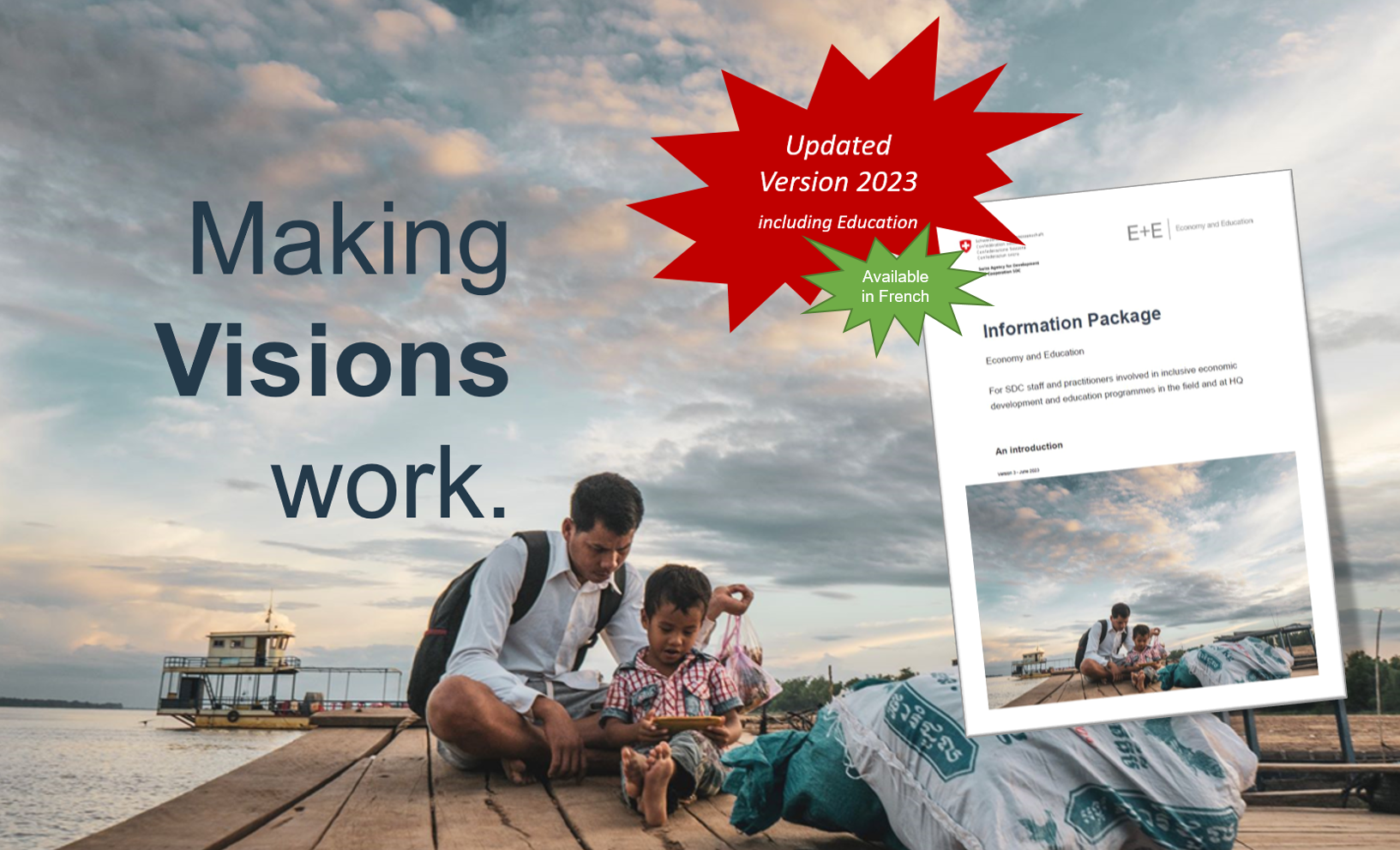
Updated E+E Information Package of the Topics Economy and Education - Fit for PurposeClick here for the version in french The Information Package is made for SDC staff and practitioners working towards the creation of inclusive economic development programmes as well as quality education and lifelong learning opportunities for all. It provides an introduction into E+E approaches and ways of systemic thinking through four interlinked priorities on system and beneficiary level: Education, Vocational Skills Development, Private Sector Development and Financial Sector Development and the modality of private sector engagement. Updated version June 2023 - An easy to read introduction for a quick overview of the topics Economy and Education This two-pager provides a short introduction into the Economy and Education Network for SDCdecision makers.
 07 September 2023
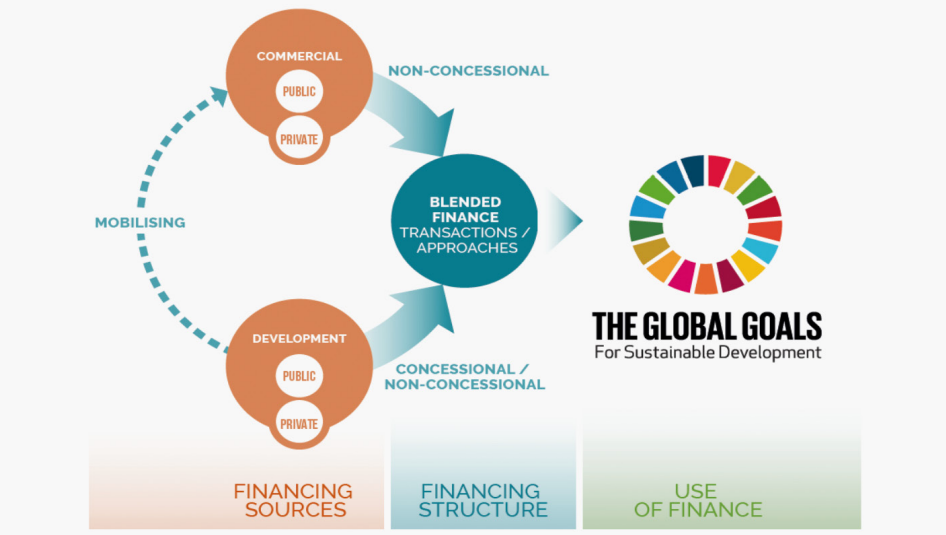
The Swiss Agency for Development and Cooperation (SDC) has expanded its Private Sector Engagement (PSE) portfolio over the past years. In 2021, it introduced the Investment Credit designed to facilitate direct investments into structured funds or granting impact-linked loans. This credit aims to foster innovation, and leverage private finance to achieve the Sustainable Development Goals (SDGs), with a specific focus on Least Developed Countries (LDCs) and underserved sectors. Managed by the Competence Centre for Engagement with the Private Sector (CEP), this credit has already approved two investments in 2022 and 2023, respectively. As of 2024, 4.9 million CHF is available for investment, enabling the development of 1-2 ventures aligned with SDC’s objectives at the thematic or country levels. The SDC Investment Credit represents a strategic initiative to foster private sector investments for the SDGs. By leveraging private finance and embracing innovative ventures, SDC is committed to driving meaningful impact in LDCs and underserved sectors, while adhering to relevant criteria for investment selection and measurement
 24 July 2023
 The ILO's Impact Insurance Academy is a unique opportunity to learn from more than fifteen years of experience and innovations in inclusive insurance facilitated by the ILO's Impact Insurance Facility. The ILO's Impact Insurance Academy is a unique opportunity to learn from more than fifteen years of experience and innovations in inclusive insurance facilitated by the ILO's Impact Insurance Facility.
Uninsured risk has devastating consequences for future generations and constrains their entrepreneurial capacities. In many developing countries, however, the insurance industry is not yet fulfilling its potential. The ILO's Impact Insurance Facility works to enable the insurance sector, governments and their partners to embrace impact insurance as a way of reducing households' vulnerability, promoting stronger enterprises and facilitating better public policies. As part of its efforts to empower the insurance industry, governments and their partners to realize the full potential of insurance, the ILO's Impact Insurance Facility and the ITCILO are together running an Impact Insurance Academy. Link to the training
 20 July 2023

Since September 2022, the Inclusive Economic Development and the Education teams of SDC joined forces to become the new thematic Section Economy and Education. This two-pager provides a short introduction into the Economy and Education Network for SDC decision makers.
 19 July 2023
 30 June 2023
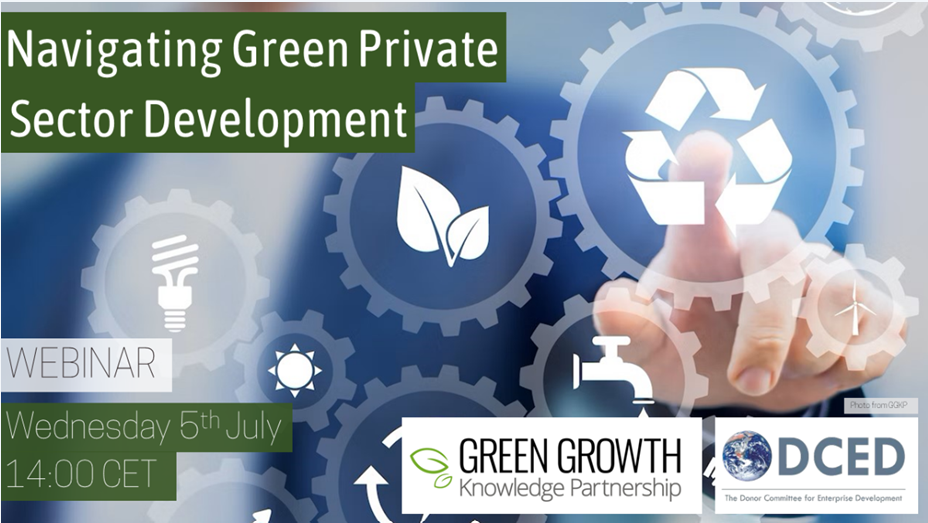
![]()
![]()
Navigating Green Private Sector Development will introduce innovative green private sector development approaches and tools that are outlined in the new Green PSD Navigator. The Green PSD Navigator was created by the DCED Green Growth Working Group to help donor organisations and development practitioners design economically, ecologically and socially sustainable programmes, and implement effective actions at and across the different intervention levels to achieve maximum impact. The key objectives of the Green PSD Navigator are to share available resources, encourage mutual learning and facilitate policy coherence and complementarity of approaches. This webinar will include a presentation of the three intervention levels detailed in the navigator: policy & regulation, supporting functions and individual companies. The subsequent discussion will build on experiences from the audience to highlight how these intervention level, when taken together, can effectively contribute to coherent green PSD programming in development cooperation.
Speakers include Hannes MacNulty (GGKP), Johanna Klein (Global CAD) and Antoine Coste (World Bank). |
|
|
 15 June 2023
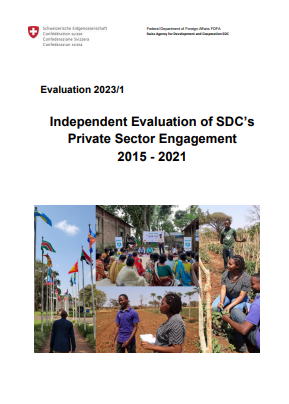
SDC commissioned an independent evaluation of SDC’s Private Sector Engagement (2015-2021). The evaluation assessed the performance of SDC’s programmes and projects along the OECD DAC criteria of relevance, coherence, effectiveness, impact, efficiency, and sustainability. The evaluation aims to support SDC in achieving the objectives of Switzerland’s International Cooperation Strategy 2021-2024, and in contributing to achieving the Sustainable Development Goals (SDGs). Overall, the evaluation found that the diligent effort and significant resources invested by the SDC in its PSE are paying off in innovation, learning and results progress. However, there are some crucial issues SDC still must address for its PSE to achieve its full potential. In terms of PSE usefulness to contribute to SDC and its partners’ goals, the evaluation found that the Agency is effective. It is, however, well-positioned to do more in the short and medium terms. To do so, the Agency needs to better strategize its way forward. SDC’s PSE modality is working well to foster partnerships with the private sector. Yet, to ensure that PSE contributes to the goals of the private sector, SDC must take their needs and priorities into consideration. PSE is useful to contribute to partner countries’ goals. Projects normally match partner countries’ national needs and priorities. Nevertheless, the evaluation also highlighted the lack of involvement of the governments themselves in SDC’s PSE projects. While PSE focuses mainly on creating synergies with the private sector, it is also important to have national governments involved, including authorities at the sub-national level. The evaluation report including the senior management response can be found here. Link to the presentation
 09 June 2023
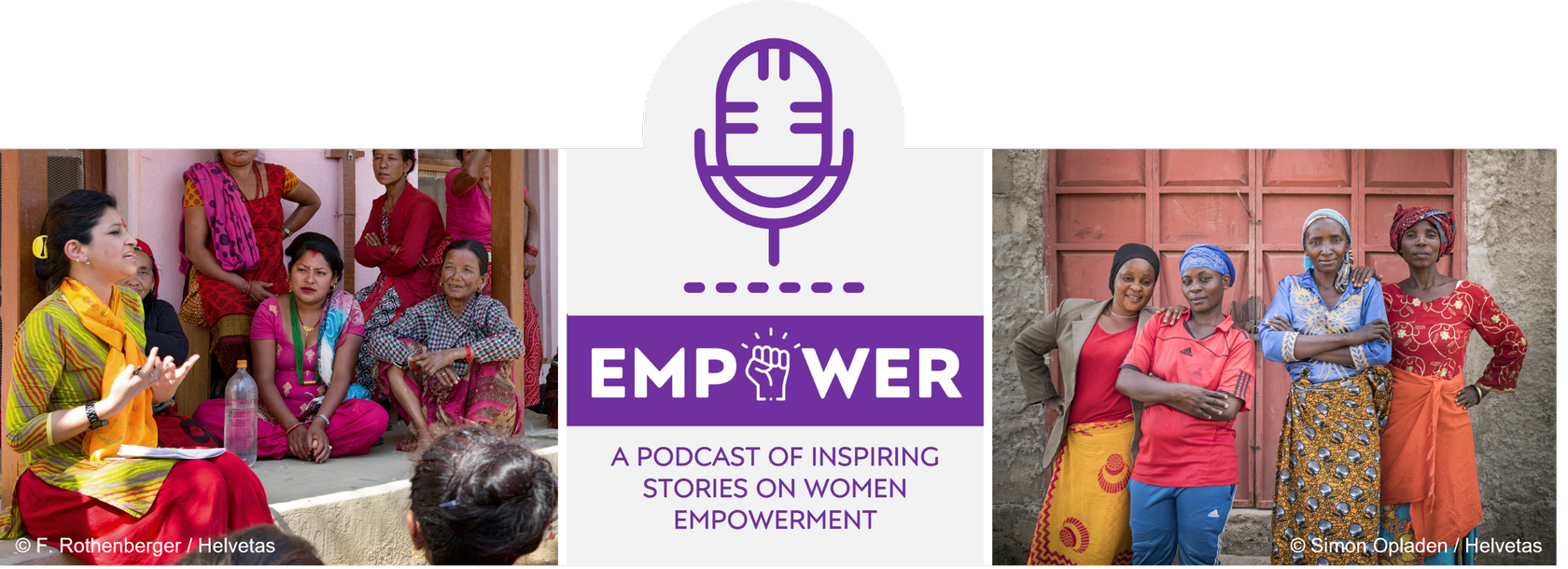
Returning survivors of human trafficking in Bangladesh are faced with stigmatization and discrimination by their families and communities. In this episode, Dipta Rakshit from Winrock International talks about the hardships of returned trafficking survivors and how the project Ashshash supports them in rebuilding their lives. As part of the project's holistic approach, trafficking survivors access skills and entrepreneurship training to enter the job market or start their own company – taking their destiny back into their own hands. All episodes can be found on spotify and google podcast.
Happy Listening! Brought to you by the Peace, Governance and Equality Section & the Economy and Education Section
 07 June 2023
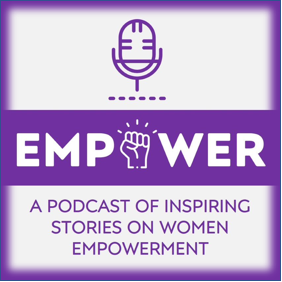 Empower, a podcast of inspiring stories on women’s empowerment, is brought to you by the PGE and E+E section. Empower, a podcast of inspiring stories on women’s empowerment, is brought to you by the PGE and E+E section.
The latest episode is on how human trafficking survivors rebuild their lives in Bangladesh. Our guest Dipta Rakshit from Winrock International talks about the hardships of returned trafficking survivors and how project Ashshash supports them with a holistic approach that includes skills and entrepreneurship training
 04 June 2023
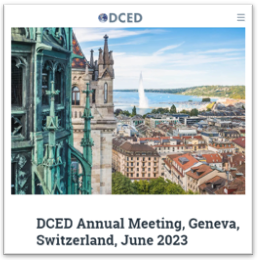
The DCED Annual Meeting for 2023 will take place 19-22 June, in Geneva, Switzerland, details see. Section E+E will represent SDC in most working groups. Feel free to contact us for further information.
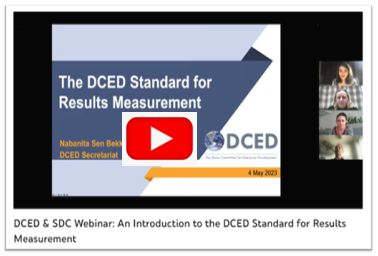
Do not forget: E+E projects should use the DCED standard for results measurement. See the excellent intro we had in May for a brush up: Webinar recording and slides.
 03 June 2023
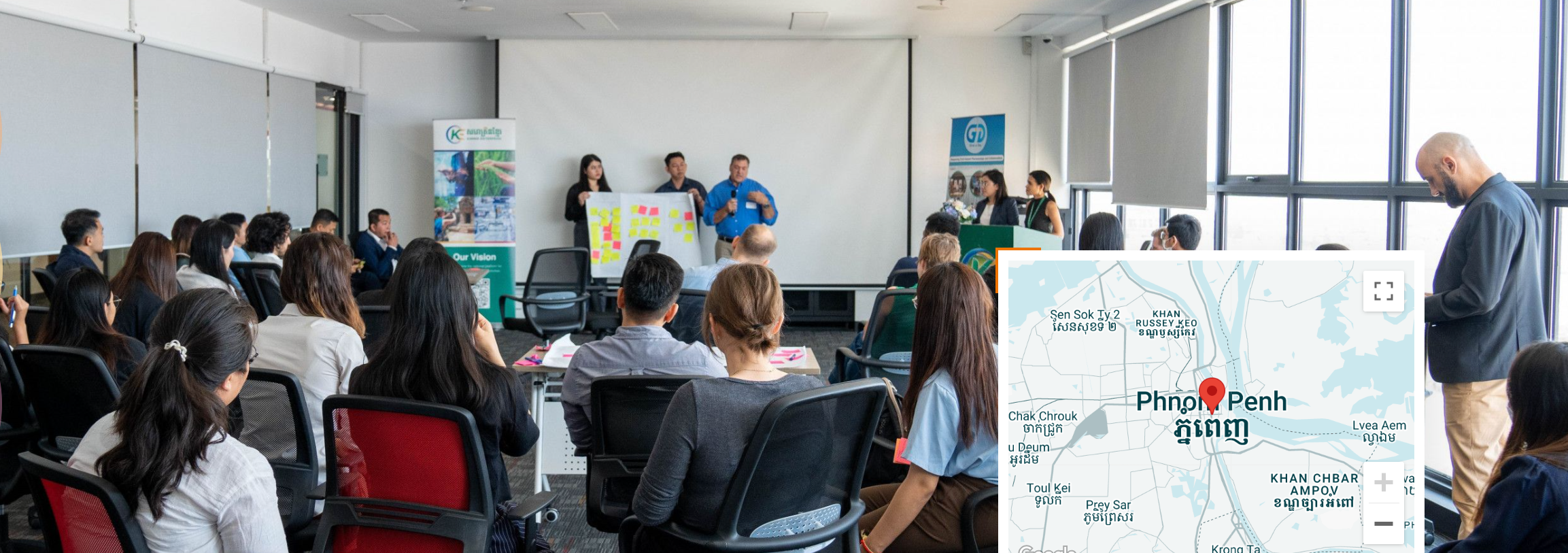
A Game Changer For Cambodia’s Startup Ecosystem: Launch Of 3Ei Initiative Strengthens Collaboration Within The Entrepreneurial Ecosystem And Boosts Impact Investing In Cambodia In a move designed to overhaul Cambodia’s entrepreneurial ecosystem, SDC, Khmer Enterprise and Swisscontact unveiled the groundbreaking Enhancing Entrepreneurial Ecosystem and Investments (3Ei) initiative. This ambitious project aims to strengthen collaboration within the entrepreneurial ecosystem and boost impact investing in Cambodia, through a significant rebranding and strategic realignment of Cambodia’s approach to nurturing its startup ecosystem. Read more
 03 June 2023
![]()
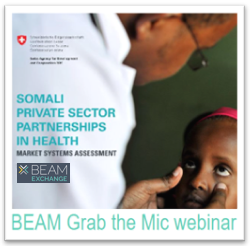 Do you want to learn more about how to create systemic impact where there is no system? Using lessons learned from the SDC Private Sector Partnerships in Health (PSPH) program in Somalia and Somaliland, BEAM Exchange is inviting you to a webinar where they will share practical tools and techniques that are relevant to other resource-constrained, donor-distorted settings. Do you want to learn more about how to create systemic impact where there is no system? Using lessons learned from the SDC Private Sector Partnerships in Health (PSPH) program in Somalia and Somaliland, BEAM Exchange is inviting you to a webinar where they will share practical tools and techniques that are relevant to other resource-constrained, donor-distorted settings.
When? Tuesday, 13th June, 2pm – 3pm (CEST) register for the webinar
 17 May 2023

The bi-annual training workshop has gained a reputation for empowering the practitioners who are driving the field forward to meet new and on-going challenges in results measurement for improved management, greater accountability and better results. This year's workshop will be in-person in Bangkok. It will bring together experienced results measurement practitioners for five focused days of learning practical approaches, sharing challenges and tips and contributing lessons to the field. The main theme of the workshop this year will be assessing system change including dimensions of system change particularly relevant to PSD programs today. Link to the flyer.
 31 March 2023
The guidelines aim to advise SDC staff and partners how to identify and make use of the interlinkages between BE and VSD to equip people with the skills they need to develop both as an individual and as a member of society and to access productive employment. The guide shows why a combination of basic education and vocational skills are needed for decent work4 and for inclusive, sustainable economic development, and how the SDC can operationalise BE–VSD interlinkages in the context of education, vocational education and training (VET), inclusive economic development, or programmes in other fields, e.g. migration, that aim to prepare people for labour market integration.
 20 March 2023
During our webinar (January 2023) participants had the opportunity to learn how simple, cost-effective, changes in relation to SCALE characteristics improve an entrepreneur's journey to success and their enterprise's ability to create impact. Why do some enterprise support programs make little to no meaningful difference whereas others prove transformative in accelerating enterprise growth, employment gain, ability to raise capital, and the expansion of enterprises delivering social and environmental goods?... >> more
 13 March 2023
 23 February 2023
The factsheet provides an overview of how Basic Education is addressed at SDC. It discusses the main challenges faced, the strategic priorities pursued, and the partners supported at the international, regional, national and local levels. In addition, it presents the expenditure by education sector and by area within SDC. A map presents the geographic spread of SDC's Basic Education projects and is complemented by project examples that illustrate SDC's engagement in Basic Education. Link to the factsheet  French Version French Version  German Version German Version
 13 February 2023
This updated VSD Factsheet provides an overview of the opportunities and challenges in vocational education and training, SDC's approaches to promote vocational skills development in its projects, the partners , as well as project examples and facts and figures. Link to the factsheet
 24 January 2023

SDC's Quality Assurance and Internal Digitalisation Specialist Service, together with NADEL (ETH Zurich) and other partners, updated the e-learning tool PCMi (Project Cycle Management interactive). PCMi consists of a series of modules introducing development professionals into the thinking of results-oriented project cycle management (PCM). Go to e-learning platform
 09 January 2023

International Cooperation Forum Switzerland «Education4Future» - 15 February 2023, International Conference Centre Geneva (CICG), Switzerland - The event is free of charge, CO2-neutral and hybrid. Participation is open to all interested - On 16 February 2023, the «Youth4Solutions» will take place. Register Now: IC Forum Named 'Education for Future', the International Cooperation Forum Switzerland (IC Forum) on 15 and 16 February 2023 will focus on education. As part of «Youth for Solutions», the focus of the second day (16 February) will be on young people and their ideas and approaches. Good basic education and training are crucial for sustainable development. And yet education systems around the world are facing major challenges. Even before the pandemic, six out of ten children were not reaching basic levels of proficiency in reading and maths. COVID-19 exacerbated this situation. Scores of schools were closed, children could no longer study, and young people had to abandon their training programmes. Switzerland has been championing the right to education for many years. Both basic education and vocational skills development are vital cornerstones of Switzerland's international cooperation. The IC Forum brings together diverse voices and perspectives. Representatives of politics, research, the younger generation, the private and financial sectors, NGOs and civil society work together to develop solutions to global challenges. The hybrid event format with working sessions combining practice and theory as well as the interactive platform allow all interested parties to actively participate in the discussions.
 04 January 2023
![]()
![]()
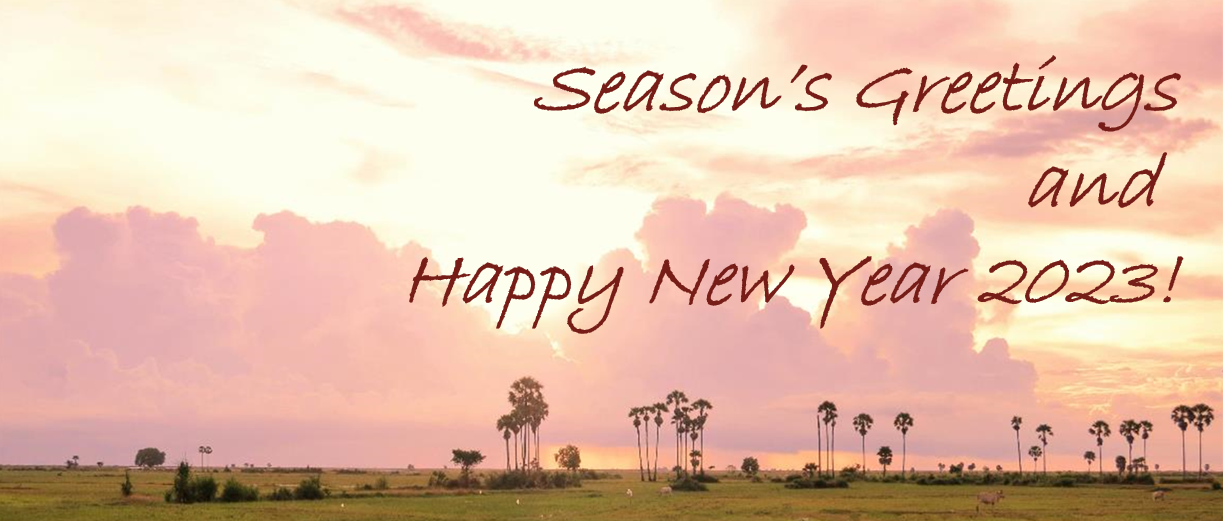
Dear colleagues and E+E aficionados
We live in a world of overlapping global crises. After a tough 2020 and 2021, in which we were confronted with a global pandemic and the increasingly palpable impacts of climate change, we were faced with a new shock at the beginning of 2022. Just as a durable recovery from the global economic collapse following the COVID-19 pandemic appeared to be in our grasp, Russia’s invasion of Ukraine has brought the consequences of conflict and rising living costs to our very doorsteps. More than a decade of economic and social progress was reversed in some regions. Beyond the immediate humanitarian impacts, the war will severely set back any global recovery, slowing growth and increase inflation even further. Many of our beneficiaries will struggle to retain their hard-won entry to the middle classes and risk falling back below the poverty line. Today, 222 million crisis affected children and young people worldwide see their access to education denied or disrupted.
Even more reason to focus on the inspiring, the positive and the possibilities of the new year 2023 ahead! The positive – Since September 2022, the Inclusive Economic Development and the Education teams have joined forces to become the new thematic section Economy and Education (E+E). We have made our advisory services even more accessible and beneficial for all project managers in the field and at HQ. The inspiring – You as a member of the E+E network. The E+E Team has demonstrated great respect and appreciation for the project managers’ professionalism and dedication all over the world. You made the difference thanks to the positive way in which you and your team have worked through the difficult humanitarian and development challenges and embraced emerging opportunities. The possibilities - The E+E Team stands ready to support you in your programme implementation and to help you attain the best possible project results and the highest level of beneficiary satisfaction in 2023. We wish you all the very best for this festive season and the new year ahead. We are looking forward to a great year of working together - Happy 2023 to you and your loved ones!
Diepak Elmer & Patrick Egli and the entire E+E Team ![]()
 19 December 2022
The call for applications for Swiss Re Foundation's Entrepreneurs for Resilience Awards 2023 is now open. The Entrepreneurs for Resilience Award recognizes entrepreneurial initiatives that take innovative approaches to build resilient societies in line with the United Nations Sustainable Development Goals. In the 2023 award cycle, the Swiss Re Foundation is looking to support innovative solutions that increase financial access to healthcare in low-income communities. To be eligible for the award, an enterprise must take a business-minded approach that increase the resources available to households to pay for healthcare or that reduces the risk of lasting economic vulnerability or poverty following an illness or accident. The three finalists will be awarded with funding up to USD 700 000 and non-financial support from experts across Swiss Re and beyond.
More details on the initiative and application form are available on the website here. |
 19 December 2022
Podcast Empower! – New episode on how weaving empowers women and preserves cultural heritage in Myanmar In this episode, Nathalie Paarlberg talks about Turquoise Mountain and the work they do with women weavers in Myanmar. Myanmar has a long artisanal tradition of weaving, and Turquoise Mountain ensures that the weavings are spread throughout the world. The organization not only helps female weavers earn an income, but also encourages them to pass on an ancient tradition with special fabrics like silk to the next generation, preserving one of Myanmar's cultural assets. Find all podcasts >> here
 03 December 2022
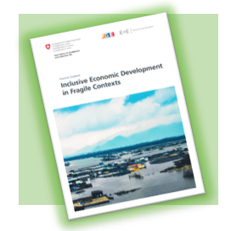
Responding to the voiced need for practical guidance for SDC staff and projects working in Inclusive Economic Development (IED) in fragile contexts a practical guidance note with examples from 9 SDC-funded projects, is now available on the shareweb. The practical guidance document adds to the already published slide deck and FAQ document that were produced with valuable inputs from network members, experts and other focal points.
 02 December 2022
The evaluation found that overall programmes such as PES and SIINC LATAM, which promote both the social impact of small- and medium-sized enterprises and support a conducive social entrepreneurship ecosystem are highly relevant in the Latin American region. This report includes the management report of SDC. Link to the report
 02 December 2022
The Summit organized by GenderSmart took place in October and provided a unique platform for development actors to come together with over 300 senior investment leaders, finance intermediaries and gender experts who want to advance gender equality through gender lens investing (GLI). The theme was ’Traction to Transformation’, seeking to explore ways how the growing GLI community can create a new era of sustainable, gender-smart growth. SDC's Diepak Elmer, Co-Head of Section Economy and Education (E+E), and Peter Beez, Senior Policy Advisor E+E, were at the Summit and give us in this short video a brief overview of what the platform GenderSmart entails and how it can connect like-minded actors striving to achieve gender equality, diversity and inclusion. They also explain the role of the SDC in GenderSmart Investing and how its expertise in impact, poverty reduction and inclusion is key for the GenderSmart initiative. Have a look!
 18 November 2022
IED (now part of E+E) and FCHR thematic units have engaged on a workstream to provide SDC staff with practical guidance on i) how to plan and implement IED projects in fragile contexts, taking into account the particular challenges of fragile contexts and ii) how IED projects can go beyond the minimalist approach of doing no harm (working in conflict/ fragility) by explicitly contributing to reduce fragility (working on conflict/fragility). Link to the guidance sheet This practical guidance sheet should be used as additional practical tool together with the slide deck and FAQ published on the shareweb (links below): Slide Deck: Inclusive economic development (IED) in fragile contexts FAQ: IED in fragile contexts Slide Deck
 17 November 2022
Village Capital with the support of its partners at the Impact-Linked Finance Fund, the Swiss Agency for Development and Cooperation and the Austrian Development Agency have launched the Catalyzing Financial Inclusion: Gender-Inclusive Fintech Solutions for Migrants report. This report shares insight on the financial inclusion obstacles disenfranchised migrant populations (especially women migrants) face in Saharan Africa, the Middle East and North Africa, and South and Southeast Asia – and highlights innovative, tech-driven solutions to these challenges. Link to the report
 17 October 2022
You can now find the new MSD tool library on BEAM Exchange's website. The library offers: - Easy access for MSD practitioners at all levels of expertise
It provides an entry point for individuals who are new to the MSD approach. It amplifies useful tools and facilitates dialogue by sharing contact details of tool authors. - Tool classification and categorisation
It helps users find the tool they need quickly using filters that search by tool type, theme and programme area. - Regular updates including the latest innovations
The library will be kept up to date through stocktaking and curation, approximately every two years.
 11 October 2022
Four Case Studies about some of SDC’s innovative Private Sector Partnerships (PSE) were just published. They portray 1) Social Impact Incentives (SIINC), 2) Impact-Linked Finance Fund (ILFF), 3) Catalytic Market Facility Aceli Africa (Aceli), and 4) Product Development Partnerships (PDPs). The Case Studies provide an easy to read (and well-layouted) introduction to those projects and mechanisms and can also be shared outside of SDC.
 23 September 2022
In 2021, SCBF committed over CHF 1.36 million towards 13 new projects, attaining CHF 18.26 million in grant funding committed since inception. The projects SCBF co-funded touched a variety of themes: digital transformation for effective and efficient service delivery, micro-property insurance to enhance the resilience of MSMEs and low-income households, and innovative index-based insurance to enable vulnerable smallholder farmers and households to adapt in the face of an increasingly changing climate. Additionally, SCBF’s membership grew from 25 to 27, as SCBF had the pleasure to welcome AXA and the Basel Agency for Sustainable Energy (BASE). SDC is a strategic partner of SCBF. Click here for the report.
 22 September 2022
This document is a guidance paper for SDC head office and cooperation office staff. This is the updated version 2022 in English and French. The Spanish version is from 2017. The guidance document provides advice for SDC staff on how to manage projects using a market systems approach. Advice is provided for developing the initial project idea and formal entry proposal, the tender process, the inception phase, credit proposal and implementation phase, steering and monitoring, evaluation and preparation of a following phase. There is also a short video with explanation and overview of the guidance paper - see video in English or see video in French. Further, there is a brief for decision-makers and a poster that can be printed and displayed in your office to make people aware of the guidance.
 25 August 2022
This report documents the evaluation of the Nepal Cooperation Strategy 2018-22 from the Swiss Agency for Development and Cooperation (SDC). The evaluation entailed a qualitative inquiry into the development effectiveness of the Cooperation Strategy. Its purpose was to inform the formulation of the new Nepal Cooperation Program 2023-26. The evaluation was conducted by two external evaluators and two SDC staff. Check ou the findings and recommendations for the bilateral inclusive economic development programmes in Nepal. It's a must read!
 18 August 2022
Two new episodes are out now: Ep. 6: Gender Transformative Approach: changing attitudes towards women's role and responsbilities Ep. 7: Artisanal embroidery - empowering refugee women one stich at a time Find the podcasts >> here
 02 June 2022
The guide is mainly directed to SDC staff and brings together knowledge on Local Economic Development (LED) with current experiences of delivering LED. It was developed together with SDC’s thematic network on governance and aims to support design, implementation and steering of LED initiatives within SDC. After an introduction to LED, this guide helps to deepen the understanding of the implications of LED for programme management. >> have a look
 01 June 2022
This Information Package is designed for SDC staff and practitioners involved in inclusive economic development (IED) programmes. It provides an introduction into the IED approaches and ways of systemic thinking through three interlinked economic thematic priorities on system and individual level: Vocational Skills Development (VSD), Private Sector Development (PSD) and Financial Sector Development (FSD), and the modality of private sector engagement (PSE). Updated version April 2022 - An easy to read introduction for a quick overview of the topic IED
 13 April 2022
Listen to the stories of our colleagues on how they advance Women’s Economic Empowerment (WEE) in their IED projects and programmes, in this ongoing podcast-series. Find the podcasts >> here Ep. 5: Privilege & prjeudice: How to address them for a more just society and women entrepreneurship Ep. 4: Impact, leadership and business support to women in Colombia Ep. 3: Using ancestral and scientific knowledge to empower rural women in Peru for sustainable tourism.
Ep. 2: Better boxes for fruit vendors - a solution that is improving women economic empowerment! Ep. 1: How to ensure gender equality in call for proposal formulation and selection
 08 April 2022
Did you know that there is a new revision of the popular ‘Managing MSD Projects’ guidance, published by the IED Network? The guidance document provides advice for SDC staff on how to manage projects using a market systems approach. Advice is provided for developing the initial project idea and formal entry proposal, the tender process, the inception phase, credit proposal and implementation phase, steering and monitoring, evaluation and preparation of a following phase. You can find the new version of the guidance on the IED Shareweb in English and French Watch a short video with explanations and overview of the guidance paper - in English or in French Further, there is a brief for decision-makers and a poster that can be printed and displayed in your office to make people aware of the guidance. For more information on MSD, please check out this Shareweb page
 16 March 2022
 15 March 2022
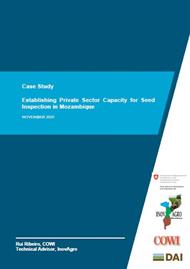
InovAgro launched its case study series to capture the knowledge it has gained on market systems development in Mozambique since 2011 and to share it widely among the agricultural development stakeholders including the government, market actors, and donor agencies. This case study on Establishing Private Sector Capacity for Seed Inspection in Mozambiqueis the seventh in the series and reviews the work of InovAgro between 2015 and 2021 to work with the National Seed Department (SD) of the Ministry of Agriculture, the government regulator, to improve delivery of seed certification services. InovAgro’s support included working with the SD to improve the regulatory framework for the certification of seed, and to pilot the training to demonstrate the value proposition for the private sector to invest in (i.e. pay for) training their staff to be able to inspect their own fields as part of the certification process and build a market for the training. It examines the issues around the current level of sustainability and the implications for the future.
>> Case Study (21 pages) >> Short article (2 pages)
 09 February 2022
Practical Insights on Local Economic Development organized by SDC’s Inclusive Economic Development (IED), and Democratisation, Decentralisation and Local Governance (DDLG) Networks. Content: Presentation of the new SDC guidelines on developing local economic development programmes and more .... go to event
 14 January 2022

Dear colleagues and IED-Aficionad@s As we are writing this Season’s Greetings E-card, hopes that humankind and our planet would find some calmer waters were unfortunately not fulfilled. The effects of political and social unrest as well as climate change have reversed the developments of recent years in many corners of the world. The ongoing pandemic exposed our world’s vast inequalities, with developing countries bearing the economic brunt of the disease and finding themselves last in line for vaccines. There are of course some rays of light. Despite difficult circumstances, the teams in the field have moved ahead with confidence and the necessary "feu sacré". You have found context-adapted solutions for project implementation and for the greatest possible benefits for our beneficiaries, and you have launched innovative projects or have developed new cooperation programmes. We would like to express our appreciation and convey our congratulations for these achievements. With increasing inequality, inclusive economic development and private sector engagement initiatives become even more important. We welcome very much your efforts in this regard and stand ready to support you in your on-going and new endeavors to come. All the very best for this festive season and the new year ahead. We are looking forward to a great year of working together - Happy 2022 to you and your families!
Wishing you a restful end-of-year break.
Your IED Team
 20 December 2021
InovAgro completed two in person and one virtual close-down workshops to share the results of its 11.5 years transforming agricultural market systems to benefit smallholder farmers in the north of Mozambique. More than 200 participants from private and implementing partners, donors and government agencies heard presentations and watched videos demonstrating how InovAgro’s work in the seed, output marketing and access to finance sectors led more than 25,000 smallholder farmers to generate net income increases of more than $34 million which will continue to grow into the future. At the closing, Dr Vala, the Director of the National Cereals Marketing Institute who had collaborated with InovAgro for 10 years, highlighted the adaptive processes to support government policy and private sector to support the growth of the seed sector and improve output marketing.
The videos presented during the events can be found here at and a recording of the virtual presentation.
 10 December 2021
Welcome to the "Empower!" podcast from the Swiss Agency for Development Cooperation, where we will be getting to know thought leaders from our programs, offices and partners pushing for more women economic empowerment. The first episode puts a gender sensitive procurement process into the spotlight. The second episode is from one of our partners in Bolivia, sharing how a gender analysis helped design particular interventions aimed at women economic empowerment. Listen in and stay tuned for more episodes to come!
 13 September 2021
The Innovation for Agribusiness (InovAgro) Project is in its final year of implementation (extended one year due to the COVID-19 pandemic). Along three phases, spanning 11 years, the Project has facilitated the development of the agriculture markets by innovating, testing, and adapting market systems business models which increase the inclusion of, and benefit to, female and male smallholder farmers (SHF) in 11 districts in the three provinces of Northern Mozambique. This case study captures the experience of InovAgro’s work in promoting a more efficient and transparent system of agricultural output marketing. InovAgro’s output marketing vision is: to create deep, viable and sustainable output marketing channels that give opportunities for SHFs to sell their produce and increase their household income.
>> short version (4 pages) >> Case study (24 pages)
 07 September 2021
Listen to your colleagues’ stories on how they advance Women’s Economic Empowerment (WEE) in their IED projects and programmes, in this ongoing podcast-series. Find the podcasts >> here Ep. 1: How to ensure gender equality in call for proposal formulation and selection Ep. 2: Better boxes for fruit vendors - a solution that is improving women economic empowerment! Ep. 3: Using ancestral and scientific knowledge to empower rural women in Peru for sustainable tourism. Ep. 4: Impact, leadership and business support to women in Colombia
 05 September 2021
The global pandemic showed the fragility of food supply systems in many countries including Bolivia. Through the Inclusive Markets project, financed by SDC and SIDA, Swisscontact supported the Ministry of Rural Development and Lands with setting up a digital platform to monitor food supply and demand on a municipal level. More information here.
 11 June 2021
In May 2021, the SDC’s e+i and FCHR Focal Points organized an e-discussion on Decent Work, aiming to operationalize the Swiss International Cooperation Strategy’s goal "Contribute to sustainable economic growth, market development and the creation of decent jobs". During the 1.5 weeks, a lively discussion with 33 contributions towards the 3 topics (stocktaking, operationalizing and monitoring & reporting) took place. >> here
 11 June 2021
This Information Package is designed for SDC staff and practitioners involved in inclusive economic development programmes. It provides an introduction into the IED approaches and ways of systemic thinking through three interlinked economic thematic priorities on system and individual level: Vocational Skills Development (VSD), Private Sector Development (PSD) and Financial Sector Development (FSD), and the modality of Private Sector Engagement (PSE). >> here
 02 June 2021
Engineers in Bolivia developed respirators when the health system collapsed due to COVID-19. This was made possible with the support of Switzerland. >> See the video clip on youtube.
 02 June 2021
In Bolivia, it is estimated that 40% of young students have not returned to the Technical Institutes and have stopped their trainings due to Covid19. In view of this situation, the Swiss Cooperation's Technical Vocational Training project in Bolivia is launching a campaign called "Take Back Your Training" to prevent young people from dropping out of school. >> See interview with the programme manager of SDC in Bolivia.
 15 March 2021
Responding the voiced need for guidance for SDC staff and projects working in fragile contexts, the IED Expert Team, with valuable inputs from network members, experts and other focal points, developed a slide deck and FAQ document aimed at providing support and guidance to e+i and PSE projects. These documents will now be presented in two webinars where you can raise your concerns and exchange with peers on good practices and challenges in quest of maximising impact on reducing fragility through IED.
The same webinar will be held twice: Tuesday, April 6th at 15:00 CET >> register Thursday, April 15th at 10:00 CET >> register
 15 March 2021
 The Swiss funded Increasing Market Employability Programme supports job creation and increased incomes in the Sustainable Agriculture, Adventure Travel and the ICT sector. The programme brings us the example of Food Bar, a North Macedonian company that found its niche market offering fresh, cleaned, cut, and packed salads to busy urban consumers in the Balkans. The Swiss funded Increasing Market Employability Programme supports job creation and increased incomes in the Sustainable Agriculture, Adventure Travel and the ICT sector. The programme brings us the example of Food Bar, a North Macedonian company that found its niche market offering fresh, cleaned, cut, and packed salads to busy urban consumers in the Balkans.
>> more
 15 March 2021
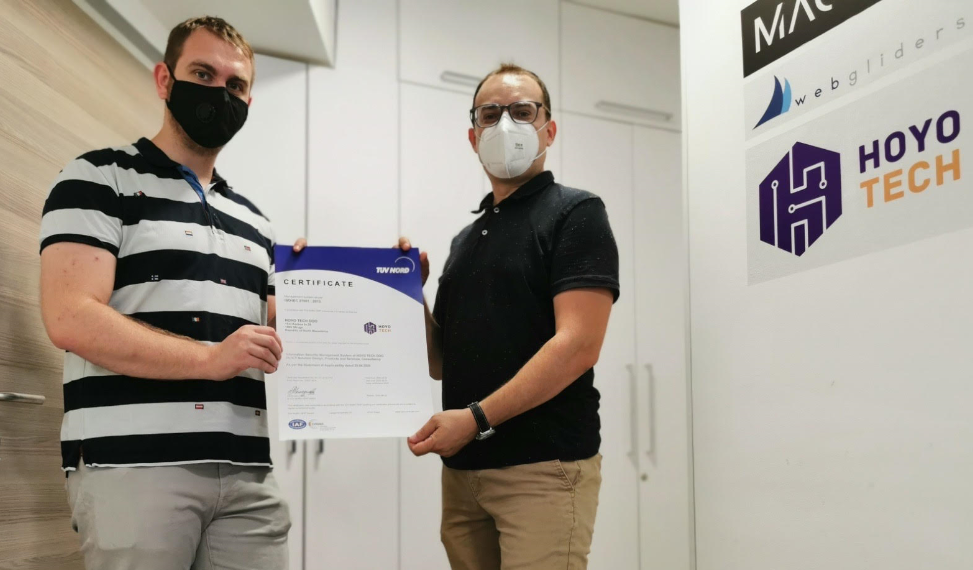 The Swiss Increasing Market Employability Programme - IME offers SMEs in North Macedonia the chance to acquire company-level certifications through a pay-for-performance instrument. Read more about how certification has led many local SMEs to an average 20% increase in sales. The Swiss Increasing Market Employability Programme - IME offers SMEs in North Macedonia the chance to acquire company-level certifications through a pay-for-performance instrument. Read more about how certification has led many local SMEs to an average 20% increase in sales.
>> more
 09 March 2021
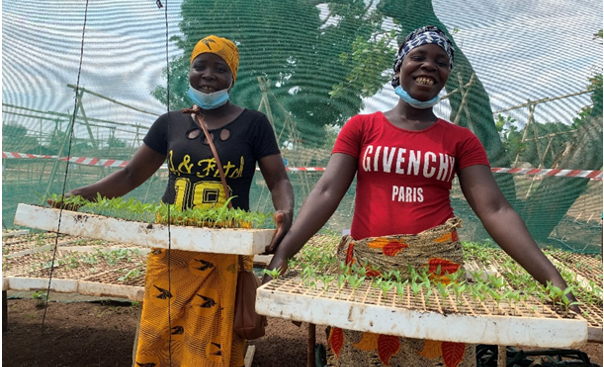 Members of the Associação Verde In Nampula Province, climate change and water scarcity are a challenge for farmers, especially for the ''Associação Verde’’, a women's association in Monapo that produces vegetables and seedlings in trays, for sale in the local market to guarantee the livelihood of their families. Using accessible irrigation solutions, the Horti-Sempre project, implemented by Swisscontact and financed by SDC, promoted the installation of a mixed gravity and drip irrigation systems to the association´s plots. The system adhered by the “Associação Verde” will allow maximizing production at all seasons of the year and reducing the effort to keep its crops irrigated. Members of the Associação Verde In Nampula Province, climate change and water scarcity are a challenge for farmers, especially for the ''Associação Verde’’, a women's association in Monapo that produces vegetables and seedlings in trays, for sale in the local market to guarantee the livelihood of their families. Using accessible irrigation solutions, the Horti-Sempre project, implemented by Swisscontact and financed by SDC, promoted the installation of a mixed gravity and drip irrigation systems to the association´s plots. The system adhered by the “Associação Verde” will allow maximizing production at all seasons of the year and reducing the effort to keep its crops irrigated.
The irrigation project was budgeted at CHF 5 780 and the ‘’Associação Verde’’ contributed 42% of the total cost. With this system, the association will be able to use the greenhouse to its full capacity and produce between 20,000 to 22,000 seedlings per month, as well as its own and the association's fields. 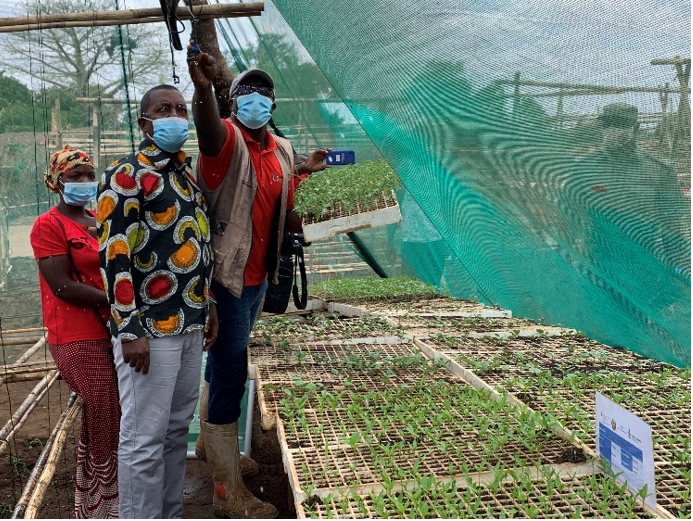 Association member and technician present the misting irrigation system to the district Administrator Association member and technician present the misting irrigation system to the district AdministratorIrrigation field dayThe launching of this system took place during the irrigation field day in Nacololo community, where 8 different types of irrigation systems and practical solutions were presented. Among the systems presented were pressurised systems such as drip, micro-spray, misting, santeno and laser-jet spray; also, on display were different types of pumps (solar electric pumps, fuel-powered motor pumps, and hand and pedal pumps), used for gravity irrigation, as the lay-flat or irrigation by furrows and ridges. Most of the different irrigation technologies and solutions on display were new to most participants.
 02 December 2020
In 2020, a new Core Group on Inclusive Economic Development (IED) has been established within SDC. Our Core Group members are a diverse group of colleagues who are working in different operational units – in the South, East and Global Cooperation as well as in the Humanitarian Aid. The Core Group provides an invaluable contribution in promoting and further developing important topics related to... ...IED within SDC – and beyond. For example, the slide deck on fragility and how this influences IED could only be developed thanks to the contributions of our Core Group members and their expertise – and also thanks to the fruitful exchanges with other SDC Focal Points.
 01 September 2020
Did you know that in each Newsletter colleagues from the field share their personal highlights with us? In this edition you can learn from SDC colleagues in Mozambique and Bangladesh about their insurance projects. >> those and other news
 01 September 2020
The popular internal Guidance «Managing MSD projects» has been slightly revised and shines in a new look! Are you working for SDC and planning or supervising a project with an MSD approach? This is your must-read document that will save you lots of time in trial and error. Are you an implementer or consultant engaged in SDC’s MSD projects? Read this document to really understand what the donor wants and needs. >> have a look at the document
 21 July 2020

During the hardships created by the global pandemic, Social Performance Task Force (SPTF) is prouder than ever to work together with SDC and its other Responsible and Inclusive Finance (RIF) Facility funders, whose flexibility has allowed SPTF to deliver timely, substantive, and socially responsible solutions for FSPs and their clients during this challenging time in history. When the global pandemic hit, SPTF was driven to help its members and their clients, which are facing challenges including lockdowns, social-distancing requirements, and a widespread economic downturn. How can the philosophy and tools of Social Performance Management help these institutions not only survive, but innovate and adapt under these difficult conditions? One of the first actions SPTF took was to mobilize the RIF Facilities as an engine of crisis response innovation. SPTF requested adjustments to the policies governing the Facilities to allow applications to be reviewed weekly instead of quarterly, to consider an expanded array of project types, and to increase the percentage of co-financing offered for each project related to crisis response. >> more
 15 June 2020
Food security and inclusive economic development are in many ways closely interlinked. The Global Programme Food Security of the Swiss Agency for Development and Cooperation (SDC) launches four Calls for Proposals. It looks for innovative initiatives to contribute to food systems’ improvements and to transformative and sustainable impact on food security and nutrition.
- Call for Proposals: Human rights in food systems
- Call for Proposals: Promoting responsible (VGGT compliant) land-based investment practices
- Call for Proposals: Agrobiodiversity for food security and nutrition
- Call for Proposals: Nutrition in secondary cities
All the necessary information regarding the calls is available on SDC’s website: https://www.eda.admin.ch/call-for-proposals Deadlines Submission of documents at gpfscallforproposals@eda.admin.ch - 22 June 2020: Submission of questions by email (round 1)
- 06 July 2020: Submission of questions by email (round 2)
- 28 August 2020, 24:00 CET: Submission of proposal by email
- End-October 2020: Decision
 10 June 2020
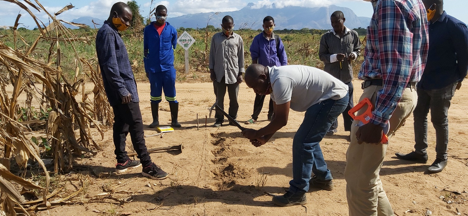
In late March 2020, the government of Mozambique instituted a strong response to the Covid-19 pandemic, which caused major disruptions to the economic activities of smallholder farmers and their supporting input providers and output marketing agents. The Swiss Agency for Development and Cooperation’s (SDC's) Innovations for Agribusiness (InovAgro) project has worked to support relationships between market actors in Northern Mozambique since 2011. The DAI implemented InovAgro project leads initiatives to develop stronger, more inclusive, commercially driven and competitive market systems for agricultural input supply to smallholder farmers and output marketing (the efficient sale by smallholder farmers of their production). Over the past 6 years, support initially driven by InovAgro and later complemented by some other donor projects, have helped the market systems for agricultural inputs and output marketing to evolve greatly, expanding in numbers of participants, volumes of sales and purchases and improved relationships. Now, as Covid-19 restrictions change the ways businesses and farmers must operate, Mozambique’s deeper and more diversified market systems are demonstrating their resilience and their ability to continue to service smallholder farmers who would normally fall out of the system. InovAgro’s targeted support to build stronger market systems is allowing many agribusinesses to operate in conjunction with their partners to continue to deliver their products and services for the benefit of smallholder farmers, without the need for outside assistance. Characteristics of a resilient market systemDeeper and more resilient market systems are characterized by effective cooperation and good competition which stimulates innovation. Value chain actors trust and mutually benefit from one another as they sell to, and buy from, the rural poor. A resilient market system also has a large and diverse population of market actors, with more overlap of abilities to carry out different functions, but also greater specialization of roles to deliver the service most appropriate to the business. In a resilient market system, it is not expected that every market actor remains in a time of crisis; in fact, some will fail and fall out of the system but the ones with the best relationships will continue to operate and be able to meet demand. In Northern Mozambique, the numbers of market actors have increased significantly in the input and output marketing sectors. Many new entrants, especially in the seed sector, are working to continue to deliver services. The market actors in both the input supply and output marketing systems have become better coordinated and many in the range of market actors have built trust based on win-win relationships in recent years. Market Resilience Responses by the Input Supply System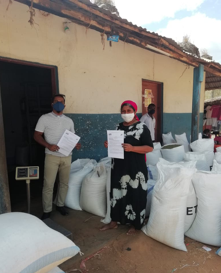
Input suppliers have introduced adaptive responses such as innovative training models for farmers, new distributor strategies, engaging more local partners, and sharing information about COVID-19 prevention. Seed companies, distributors, and agro-dealers are training lead farmers to run smaller, field days at their demonstration sites in local villages, reducing the need to travel into the rural areas. Thanks to these developments, value chain actors can now respond to joint threats, such as the restrictions enacted to combat Covid-19, and opportunities, such as selling more directly to smallholder farmers through stronger distribution channels. These mutual benefits incentivize collaboration and create long-term, interdependent relationships with embedded services and joint marketing, leading to steady growth in sales. Market actors have also developed strong relationships with local community leadership and government agencies, increasing their social license to operate in target communities and districts. Distributors are upskilling agro-dealer partners with more technical information. Agro-dealers are using village-based agents (VBAs) and lead farmers to order inputs and introducing mobile retail shops to deliver the inputs, serving the 19,744 farmers accessing improved inputs in 2019. Market Resilience responses by Output Marketing SystemMany traders whom InovAgro has supported to expand their networks of transparent buying posts deep in rural areas and build a strong social license to operate, are operating “business as usual” notwithstanding the Covid-19 restrictions. With local buying posts, more than 29,000 smallholder farmers are better able to market their product safely, close to their homes and not risk exposure travelling to the peri-urban markets.
ConclusionNorthern Mozambique’s deepening market systems, supported by InovAgro and others, have enabled the private sector to respond to the Covid-19 pandemic in ways that would have been impossible six years ago. Good competition is stimulating the numbers of market actors in general. Good collaboration and coordination between those market actors to achieve mutual benefits are making the agricultural industry stronger, more adaptable to challenges, and better able to withstand negative impacts of the Covid-19 control measures. Farmers are also benefiting from this improved system, which is providing them with vital information on Covid-19 and closer access to marketing outlets and input suppliers. Most importantly, market actors are adapting in ways that limit the need for outsiders—who may be carrying the disease—to travel to rural communities. The deeper market system has also facilitated InovAgro’s continued support. InovAgro has served as a trusted advisor to input supply companies, output marketing companies, and the regional government, whose livelihoods are now on the line. These strong relationships have made interventions to support the market actors easier for InovAgro to collaboratively design and implement and have ensured the project can help address companies’ ongoing core challenges in the face of a global pandemic.
Here you can find the full case study
 06 April 2020

The growing COVID-19 crisis threatens to disproportionately hit developing countries, UNDP states. Income losses are expected to exceed USD 220 billion in these contexts and a devastating social and economic crisis is expected to follow the health crisis over the months and years to come. Furthermore, according to ILO, it is exacerbating already existing inequalities – from catching the virus, to staying alive, to coping with its dramatic economic consequences. This is also reflected in the effects on the labour market: Significant rise in unemployment and underemployment are estimated around the globe. In addition, the ILO warns that the crises with its current limitations on the movement of people and goods may restrict the informal economy, which a lot of vulnerable groups depend on. UNCTAD estimates that global foreign direct investments, an important financing source of developing countries, will be down by -30 % to -40 % during 2020-21. The World Trade Organization has monitored a sharp fall in global trade activity. Additionally, as the IMF points out, the global financial system is likely to be disrupted strongly. Low-income countries do not have the financial means to back the local economy, secure jobs and protect livelihoods. Different actors around the world are addressing this challenge: The IMF for example is making available USD 50 billion in emergency funding to help poor and middle-income countries with weak health systems response to the epidemic. The African Development Bank at the same time launched a record breaking USD 3 billion “Fight COVID-19” social bond. Also, within the SDC and in our network in particular, we are committed to contribute to the mitigation of COVID-19 and its harmful impact on employment and income in low income countries. In general, we expect our partners on the ground to run into severe liquidity problems or to be restricted in their movement and business practices. However, implications might differ for each one of our thematic areas. The backstopping teams of each thematic area are currently developing more detailed response notes with potential ways forward. For further information, as well as for a collection of best practices and the latest developments, please check out the dedicated shareweb landing page and the links to each thematic sub-page:
- Private Sector Development (PSD): The current COVID-19 pandemic has an impact on the global economy. Micro, small and medium-sized enterprises (MSMEs), including self-employed people, are threatened in their existence. MSMEs are the backbone of all economies and generate a majority of jobs, and this is especially true in developing and emerging countries. The current situation is causing widespread disruptions in trade and economic activity due to physical restrictions, international travel bans, closure of businesses (markets, shops, restaurants etc.) banking facilities and educational institutions. While medium to long term impacts on the global economy are still unclear, there is a serious threat of global recession with all major regions affected. This said, businesses in different sectors are affected differently; for instance, while tourism industries are collapsing, there is a growing demand for ICT services.
- Financial Sector Development (FSD): The COVID-19 disease affects all kind of financial institutions: commercial banks, Microfinance Institutions (MFIs), funds, leasing/factoring companies, insurance companies, Village Savings and Loan Associations (VSLA), etc.. They are affected through physical limitations (restricted movement, limited client contact, etc.) and economic challenges (postponed investments, increasing loan default rates, "bank runs", etc.). In practice this means that women can not meet in savings groups anymore, for example. These challenges in turn create problems at the level of final beneficiaries (households, smallholder farmers and MSMEs) in terms of liquidity shortages, bankruptcy, losing savings, insurance claims, etc.
- Vocational Skills Development (VSD): The worldwide COVID-19 crisis has led to the closure of schools and interruption of education and training systems. According to UNESCO’s school closure monitor currently over 188 countries have closed schools country-wide. Closures of training facilities and apprenticeship workplaces are unprecedented challenges for governments, teachers, civil society and private sector actors, trying to ensure learning continuity and/or business survival: On the one hand, poor and disadvantaged population groups often have limited access to alternative educational opportunities for distance learning. On the other hand, many MSMEs had to shut down and employers are not able to provide in-company vocational training, let alone recruiting young graduates or paying wages, e.g. to parents who often support their youngsters during their education and training pathway.
 12 March 2020
Thirty experts tackled challenging topics in results measurement, such as: How can we ensure results measurement remains doable and credible? What quick tools can we use for monitoring? Which new technologies can help us? How can we practically assess changes in systems? Watch this short video where workshop participants talk about their learning. Sign up for the BEAM webinar to discuss a pragmatic approach to assessing changes in systems.
 11 March 2020
A regional Training on Local Economic Development (LED) was organized in Pristina in November 2019 for NPOs in WBA, Eurad and HQ participants, by the WBA Advisor on E+I. The objectives of the regional Training on LED was to get an idea about what the methodological approach to LED could be for the WBA region, to identify issues related to LED and of interest to WBA and to discuss specificities that need to be taken into account when identifying a new intervention. It also paid special attention to the ongoing research question of better linking linking local economic development and local governance processes. >> more
 05 December 2019
The SDC e+i and gender networks are on a learning journey called WEE Learn. So far, the first steps have been realized and the next one will take place with a webinar on Thursday, December 12th: "The business case for WEE". We will learn about SDC’s existing guidance on WEE and hear about experiences showcasing the business case for WEE in Guatemala and Uganda, both benefiting from support by SDC’s Social Entrepreneurship Programme. Thursday 12 December 2019 at 14:00-15:00 Swiss time >> sign up here
Women's economic empowerment: The learning journey
Empowering women to participate fully in the economic life not only improves quality of life of women, families and communities; it also helps building strong economies and boosts competitiveness and profitability of enterprises. The business case for WEE was explored from multiple angles during the WEE session at the F2F event. And in order to raise ongoing awareness about the importance of women’s economic empowerment, the e+i focal point and the gender focal point have taken on a 3 steps process to diffuse further the topic: 
So far, the first two steps have been realized. The “Flash of Inspiration” was sent on the 10th of November and on the 20th an e-talk took place. The e-talk gathered a small group of collaborators to discuss on tests results with the objective of sensitizing each person’s individual gender biases and how they impact his/her work. In case of further interest in passing the test, kindly follow the steps below: - Click this link, then accept the preliminary information and
- then you need to select the blue box on the left named "Gender-Career IAT" It will take you about 10 minutes to complete it.
 03 December 2019

Many thanks for the great collaboration in 2019! We highly appreciate all the inputs and feedback we received from you. Since all of us have been busy this year, you might have missed some of our outputs. Thus, we collected our highlights on one page! It’s time to rewind 2019. >> ЯEWIND 2019.
 01 November 2019
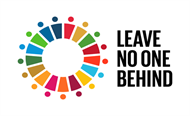
Leave no one behind (LNOB) is the central pledge of the 2030 Agenda, recognizing the need to combat poverty and inequalities. In fact, LNOB is essential to meet the SDGs. SDC has elaborated a thematical working aid for e+i, additional to the SDC guidance on leaving no one behind, which is a normative document for all SDC staff. We will learn about the thematic working aid and how – based on practical examples – it supports e+i projects and programmes to translate LNOB into project design and implementation. Date: Tuesday, 26 Nov 2019, 11:00 – 12:00 Swiss time

About the speakers
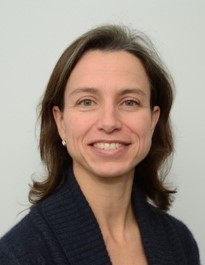 Jodie Thorpe, Research Fellow in the Business Development Centre at the Institute for Development Studies (IDS) in the United Kingdom. She is an expert on inclusive market approaches, enterprise development, and public-private and multi-stakeholder partnerships. Jodie Thorpe, Research Fellow in the Business Development Centre at the Institute for Development Studies (IDS) in the United Kingdom. She is an expert on inclusive market approaches, enterprise development, and public-private and multi-stakeholder partnerships.
Jodie will introduce the thematic working aid on LNOB in e+i. Thereby she will present insights regarding the livelihoods of very marginalized men and women and how to make a good diagnosis of exclusion in the employment and income domain. She will also explore strategic entry points for programmes to expand the scope for marginalised women and men to use their agency to access markets, and to transform markets to better reach these groups.
 Zenebe Uraguchi, Senior Advisor Market Systems Development and Programme Coordinator for East & Southeast Europe at HELVETAS Swiss Intercooperation in Switzerland. He is a development economist with multi-country experience. He holds MA degrees in International Relations and Political Economy as well as a PhD in Development Economics. His areas of expertise are in the design, management and evaluation of private, public and non-profit development initiatives focusing on employment and income. Zenebe Uraguchi, Senior Advisor Market Systems Development and Programme Coordinator for East & Southeast Europe at HELVETAS Swiss Intercooperation in Switzerland. He is a development economist with multi-country experience. He holds MA degrees in International Relations and Political Economy as well as a PhD in Development Economics. His areas of expertise are in the design, management and evaluation of private, public and non-profit development initiatives focusing on employment and income.
Zenebe will provide insight how a project in Bangladesh has challenged misconceptions about inclusiveness and which practical considerations are required to ensure inclusion of poor and disadvantaged women and men.
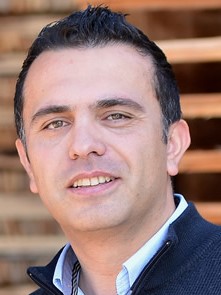
Kleidor Rustemi, Programme manager of Coaching for Employment and Entrepreneurship (C4EE) at Swisscontact Albania. Kleidor has over 20 years of experience in labor market, skills and social inclusion. In particular he focuses on topics like sustainable development and change of livelihood for marginalized categories. He has a degree in social work and is certified as trainer in coaching for employment methodology from University of Applied Sciences Lucerne, Switzerland. Kleidor will share his extensive experience how the program has supported young individuals, in particular from marginalized groups to increase their chances in the market through the application of the C4EE methodology.
 01 November 2019

The SDC e+i and gender networks launch the learning journey “WEE Learn”. In the next few weeks we would like to deepen our exchanges on WEE. Please join us for the Webinar on the Business Case for WEE Date: Thursday 12 December 2019 at 14:00-15:00 Swiss time (convert to your time zone). 
![]()

To the SDC, Women’s Economic Empowerment (WEE) is beyond ticking of a box. Plenty of studies and annual financial reports of gender diverse companies give proof that it is also a business case. Women can be economically empowered as entrepreneurs, as clients, as managers and as employees. Would you like to better understand the business case for strengthening women as entrepreneurs or for improving their working conditions as employees?
Then please join us for this webinar to learn about SDC’s existing guidance on WEE and to hear about concrete experiences showcasing the business case for WEE in Guatemala and Uganda, both benefiting from support by SDC’s Social Entrepreneurship Programme:  Joseph Nkandu, Executive Director of the National Union of Coffee Agribusiness and Farm Enterprises (NUCAFE) in Uganda, will share how women’s empowerment alongside men’s has contributed to increase productivity and income in the Ugandan coffee sector as well as profitability of his company NUCAFE.  Rachel Murphy, Strategy and Innovation Coordinator at ALTERNA, a Social Entrepreneur Accelerator, will provide insight how a targeted programme helped female entrepreneurs in Guatemala overcoming biases when pitching their business idea and thereby ensuring more funding for their enterprises 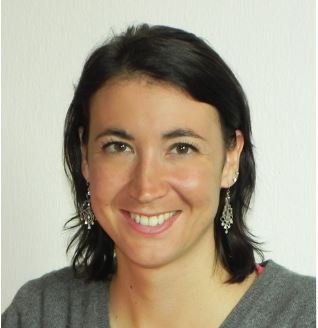 Nathalie Wyser Vizcarra, Senior Policy Advisor Financial Inclusion at the SDC in Bern, Switzerland, will provide an input on SDC’s perspectives on the business case for WEE and its existing guidance on WEE. 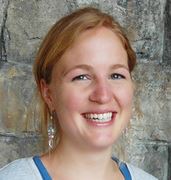 Selina Häny, Gender Equality Policy Advisor at SDC in Bern, Switzerland, will be the webinar host and facilitate the discussions.
 10 September 2019
Leave no one behind (LNOB) is the central pledge of the 2030 Agenda, recognizing the need to combat poverty and inequalities. In fact, LNOB is indispensable in order to meet the SDGs. SDC has elaborated a thematical working aid for e+i, additional to the SDC guidance on leaving no one behind, which is a normative document for all SDC staff. The working aid supports e+i projects and programmes to translate this aspect into project design and implementation from the very beginning on. We encourage you to look at the document. Stay tuned, a Webinar on this topic will be announced soon.
 10 September 2019
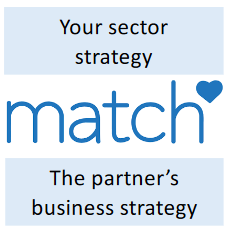
![]() We all know that collaboration with private companies is key in making market systems more inclusive. At the same time, it is challenging to find the “right” partners, negotiate deals with them, know what we should and what we shouldn’t pay for, etc. The e+i network provides you with a concise and practical summary of the most important lessons learned by experienced practitioners in Market Systems Development (MSD) on how to form partnerships with the private sector. The lessons are complemented by a concrete case from the PRISMA project partnering with businesses in the maize sector. We all know that collaboration with private companies is key in making market systems more inclusive. At the same time, it is challenging to find the “right” partners, negotiate deals with them, know what we should and what we shouldn’t pay for, etc. The e+i network provides you with a concise and practical summary of the most important lessons learned by experienced practitioners in Market Systems Development (MSD) on how to form partnerships with the private sector. The lessons are complemented by a concrete case from the PRISMA project partnering with businesses in the maize sector.
Download the nicely illustrated summary of lessons learned here. Webinar: On 30th October 2019 at 12:00 noon Swiss time (see different time zone below), Hans Posthumus will be interviewing experienced programme managers for their top tips on how to collaborate with private companies in the context of MSD programs. Please join us for this webinar on Oct 30th registering here. add event to my calendar here
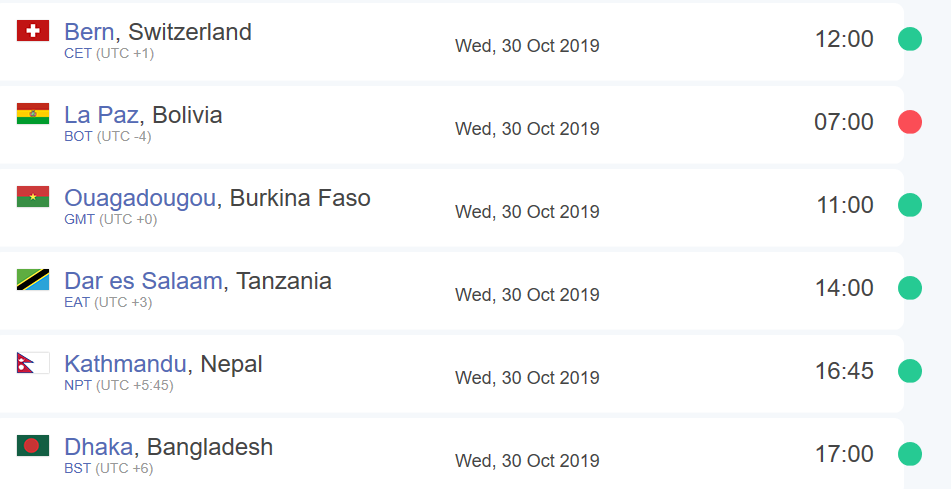
![]()
![]()
Your city is not in the list? Convert to your time zone here.
 04 September 2019
The market stall session during which several projects presented themselves was a highlight of the F2F 2019. Many participants highlighted that the session provided a great opportunity for learning exchange. The learn more about the discussed project, we recomend to visit the dedicated site on our shareweb. >> more
 13 June 2019
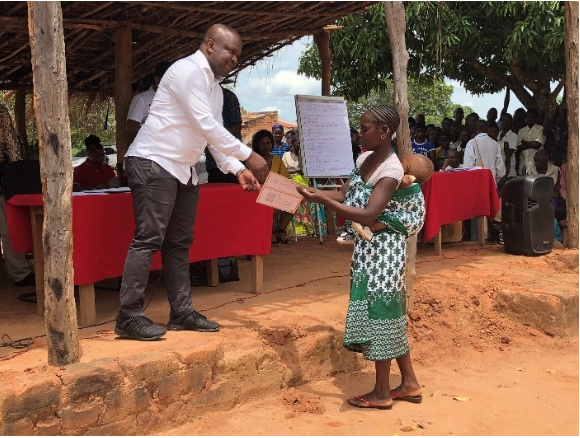
SDC is seeking to drive inclusive economic and agricultural growth in Northern Mozambique. As land is one of the primary resources in agribusiness development, SDC is funding the InovAgro project (please see also the "project poster" from our F2F 2019). DAI is implementing InovAgro which addresses the land tenure issue by applying a market systems development approach. Most smallholder farmers (SHFs) do not have the legal right to use the land they and their families have always farmed and are largely unaware of the importance of acquiring that right to protect their livelihoods. Two leasehold registration forms exist to protect the smallholder farmers: getting a community land delimitation certificate or an individual land leasehold. Either is an essential step to safeguarding SHFs agricultural investments. InovAgro is developing the supply of services and demand for community land delimitation and individual leasehold registration in the communities of Mutaliua and Mussano in Namarroi district in Zambézia Province. Starting with training a network of local paralegals and community land & natural resource management committees, the community members first delimited and registered the communal land. With the network of paralegals in place, 2,000 households then applied for individual leaseholds. 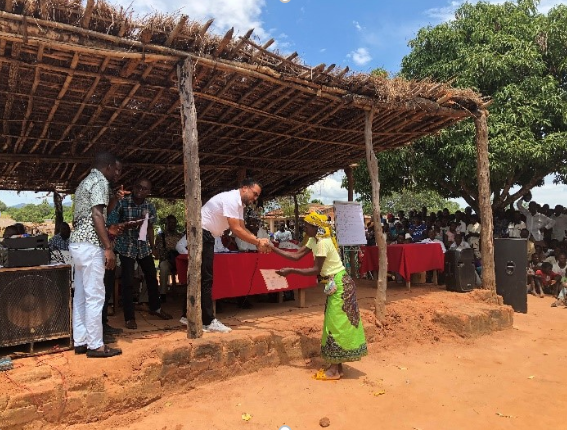 Out of the first 1,095 plots pegged out, 354 DUATs (land titles) were issued. For the other 741 plots it was discovered that these were already issued to a pines and eucalyptus plantations company. This is land that SHFs have occupied for decades but without titles. This has led to a conflict that InovAgro is helping to resolve. The case presents an impetus for projects such as InovAgro to ensure that the land titling market system becomes feasible, affordable, accessible and efficient. Out of the first 1,095 plots pegged out, 354 DUATs (land titles) were issued. For the other 741 plots it was discovered that these were already issued to a pines and eucalyptus plantations company. This is land that SHFs have occupied for decades but without titles. This has led to a conflict that InovAgro is helping to resolve. The case presents an impetus for projects such as InovAgro to ensure that the land titling market system becomes feasible, affordable, accessible and efficient.
To help farmers invest more effectively in the leasehold titled land, InovAgro has facilitated linkages with private partners to invest in delivering services such as inputs and extension, access to finance, and output marketing in those communities. small picture: Namarroi District Administrator handing over a DUAT to a proud owner of a titled land in Lipali Localitybigger picture: SDC Head of Domain Horácio Morgado handing over a certificate in Lipali Locality
 12 June 2019
With more than 170 participants from more than 40 countries the e+i & EPS F2F event 2019 in Solothurn was a great platform to share experiences and get inspired! The key note speakers addressed the overarching topic "impact@scale" from different angles. A recurring aspect was the engagement with the private sector. The presentations and discussions during the focus sessions showed the passion of the participants for their work. All materials from the F2F and a summary of the event are available on our event page... [more]
 18 March 2019

Did you recently hear about a thrilling new innovation for farmers? Does your project or program provide powerful new insights relevant to smallholder farmers elsewhere in the world? Did your partner just come up with new knowhow for women or youth farmers?
Then please consider sharing this information and make it available to millions of other smallholder farmers hungry for new ideas. There is somebody out there ready to support you in spreading your insights to millions of smallholder farmers across the globe.
It’s Paul van Mele, a passionate and dedicated colleague, and his team from AccessAgriculture eager to explore with you new ways to inspire many more fellow smallholder farmers.
AccessAgriculture does this through quality training videos produced by local partners – videos made with farmers, made for farmers!
If you have something to share, then please get directly in touch with Paul Van Mele (paul@accessagriculture.org).
To learn more about AccessAgriculture check out the website. Access Agriculture is a SDC-supported initiative that has developed a world-class video platform, hosting around 200 training videos translated into more than 75 local languages. If you think, you, your program or your partners could use the rich library of training videos, please do get directly in touch with Paul and the team of AccessAgriculture. They are ready to help you translate any of the existing videos into any local language, and to spread the videos beyond the web platform (through TV stations, DVDs, videos on stick, mobile app or smart projector).
Your collaboration with AccessAgriculture is highly appreciated.
 12 March 2019
The Good Practices paper was developed in 2016 and in late 2018 we sought feedback using an online survey and conducting in-depth interviews with SDC program managers. We share the feedback and highlight a few changes made in the revised Good Practices Paper in this one page summary. The Good Practices Paper helps SDC program managers to enable implementing partners to design, apply, and benefit from a monitoring and results measurement system that enables learning and reporting credible results and that complies with the DCED Standard for Results Measurement. It is with more than 750 unique downloads among the top three of the most-downloaded resources from the DCED website. Revised version (February 2019): here
 12 March 2019
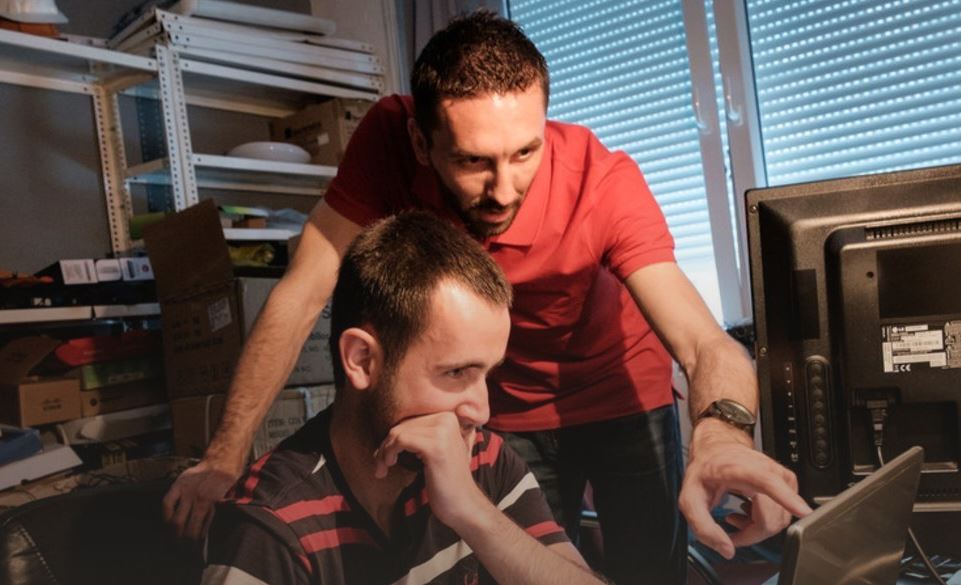
Many private and public businesses in Albania handle large amounts of data, but most of them lack IT security systems, procedures and qualified staff to protect them from possible cyberattacks. Since 2017, a new law on cybersecurity requires that all enterprises with critical data hire qualified IT security staff. But there have been delays with the implementation of the law because the government agency responsible for developing and enforcing it lacks capacities. The SDC funded project RisiAlbania estimates that strengthening the agency’s capacity to enforce the law will stimulate job creation: on the demand side, public and private businesses will need to create more than 300 jobs in the next three years. The skills training provision market will also respond: on the supply side, enforcing the law’s implementation will lead to the development of training programmes on IT security. Therefore, Risi is building the capacity of the government agency to implement the new cybersecurity law, and, when required provide support to IT security training providers. Furthermore, improving cybersecurity measures strengthens the whole IT ecosystem: it contributes to making Albania an attractive destination for international investors. Learn more on the HELVETAS blog on cybersecurity intervention.
 12 March 2019

If you are planning your next vacation, don’t miss Albania! Read
Albinfo.ch special edition (German, Albanian and French) on alternative tourism offers built around hiking, culture and adventure tourism products. Albinfo is a not-for-profit online news media initiative based in Switzerland that targets Albanian speaking Swiss residents, Swiss citizens interested in the culture of the Balkans, and the Albanian speaking diaspora interested in news from their countries of origin.
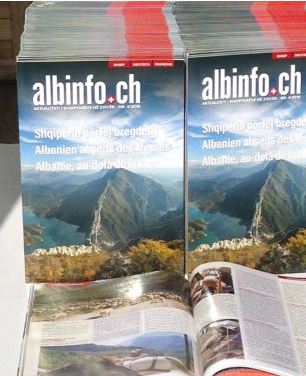
RisiAlbania is a project of SDC, implemented by HELVETAS and Partners. It supported companies to present their diversified off-season and inland products in the Albinfo magazine and increase tourism in spring, autumn and winter as tourism in Albania concentrates predominantly on the seaside tourism during summer. Albinfo distributed some 15'000 copies of the special magazine in Albania and Switzerland, covering also the familiarization trip of Edelweiss airline to Albania or to the participants of the Second Summit of the diaspora in Tirana, representing Albanian speaking diasporas of more than 40 countries all over the world. The magazine echoed wide reactions. Besides concrete travel arrangements, it encouraged returnees to intensify their links with partner companies in Switzerland and also the Albanian government is increasingly seeking ways to intensify business- based relationships with diaspora communities abroad; a systemic achievement which is in the sense of
RisiAlbania.
 13 February 2019
How should donors manage
adaptively? Market Systems Development as a case study.
Helen Bailey and Tim Ruffer on Itad’s strategic evaluation to help Sida manage programmes that are adaptive and apply market systems approaches. Intro: Itad has recently completed a strategic evaluation for Sida to help them work through how they can best manage programmes that are adaptive and apply systems approaches. In doing this, the evaluation focused on Sida’s growing portfolio of MSD projects. But the conclusions from the evaluation about what funders need to do to manage adaptively are of broader relevance – both across the spectrum of Sida’s programming and to other donors interested in adaptive management. The work builds on Itad’s close involvement in evaluating and supporting the delivery of a variety of Market Systems Development (MSD) programmes, and adaptive programmes in other areas, including governance, empowerment and accountability, and climate resilience.
 23 January 2019

The OECD Report on Social Impact Investment mentions the SDC project "SIINC" as an innovative pay-for-success model and presents the case of Clinicas del Azucar, Mexico.This publication is a sequel to the OECD 2015 report on Social Impact Investment (SII), Building the Evidence Base, bringing new evidence on the role of SII in financing sustainable development. It depicts the state of play of SII approaches globally, comparing regional trends, and assesses its prospects, with a special focus on data issues and recent policy developments. Importantly, it provides new guidance for policy makers in OECD and non-OECD countries, as well as providers of development co-operation, development financers, social impact investment practitioners and the private sector more broadly, to help them maximise the contribution of social impact investing to the 2030 Agenda. In particular, it provides four sets of recommendations on financing, innovation, data and policy for delivering on the “impact imperative” of financing sustainable development.
 11 December 2018

Introduced in 2013, the Youth Guarantee (YG) scheme is one of the most innovative labour market policies implemented in EU countries in recent years. It is a promise of governments to the youth that if they enrol in the scheme, they will receive a quality offer of employment, education, traineeship or apprenticeship within 4 months of becoming unemployed or leaving school.
Following and adapting this model, SDC provided comprehensive support to the initial conceptualisation and implementation of the Youth Guarantee scheme in Macedonia – the first non-EU country to implement this scheme. After the 6-month pilot in just three municipalities, initial results are impressive: 692 young were (self-)employed, 233 started internships and 202 entered into additional training. For 2019, the Government of Macedonia intends to scale-up the implementation of the YG scheme and double its budget, allowing more youth to utilize the benefits of the scheme and decrease youth unemployment... [more] Further information about the project: See the project's record in the public FDFA database here.
 03 December 2018
In November, the e+i focal point and the Competence Centre for Engagement with the Private Sector (CEP) invited SDC e+i network members and EPS Pioneers to participate in an online thematic consultation. First results of the survey are now available... [more]. Context info: The survey will also be used to tailor the Global F2F 2019 "impact@scale" to the needs of our community.
 03 September 2018
Here is what has happened so far:
(1) As mentioned in a previous newsletter, a CAPEX of this topic has started at the beginning of this year, (2) 50 projects were gathered, analysed and clustered in gender responsive / sensitive categories. (3) 10 e-consultations were held with the most gender responsive women’s financial inclusion projects and, (4) a webinar and an e-discussion were held from the 4th to the 6th of September. (5) The slides of the webinar and the summary of the e-discussion will be shared soon!
 30 August 2018
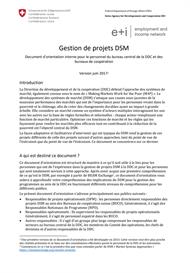
This internal guidance provides advice for SDC staff and the wider community on how to manage projects using a market systems approach. It provides advice on staff activities throughout the project cycle, i.e. from the development of an initial project idea to the evaluation and preparation of a follow-up phase and includes concrete guidance on good practice, and voices and experiences from the field.
The guidance document is structured in such a way that it is both useful for people with and without experience in managing portfolios of MSD projects in SDC, as well as for people from development agencies who design and manage projects, and for professionals interested in learning more about the processes.
********************** FRANCAIS **********************
Le réseau e+i a publié en 2017 une version révisée du document d'orientation interne sur la gestion des projets DSM. Les réactions au document ont été très positives, de sorte que le point focal a décidé de traduire le document en français et en espagnol.
Ce guide interne fournit des conseils au personnel de la DDC et à l'ensemble de la communauté sur la manière de gérer les projets en utilisant une approche des systèmes de marché. Des conseils sont fournis sur les activités du personnel tout au long du cycle du projet, c'est-à-dire depuis l'élaboration d'une idée de projet initiale jusqu'à l'évaluation et la préparation d'une phase de suivi, et comprend des orientations concrètes sur les bonnes pratiques, ainsi que des voix et des expériences sur le terrain.
Ce document d’orientation est structuré de manière à ce qu'il soit utile pour les personnes qui ont et qui n’ont pas de l'expérience dans la gestion de projets DSM à la DDC, pour les personnes des agences de développement qui conçoivent et gèrent des projets, et pour les professionnels intéressés à en savoir plus sur les processus.
********************** ESPAÑOL **********************
La red e+i publicó una versión revisada del documento de orientación interna sobre la gestión de proyectos de DSM en 2017. Las reacciones al documento fueron muy positivas, por lo que el punto focal decidió traducir el documento al francés y al español.
Estas directrices internas orientan al personal de la COSUDE y a la comunidad en general sobre la gestión de proyectos con un enfoque de sistemas de mercado. Proporciona asesoramiento sobre las actividades del personal a lo largo de todo el ciclo del proyecto, es decir, desde el desarrollo de una idea inicial de proyecto hasta la evaluación y preparación de una fase de seguimiento e incluye una orientación concreta de buenas prácticas, y voces y experiencias del campo.
La guía está estructurada de tal manera que es útil para las personas con y sin experiencia en la gestión de carteras de proyectos DSM en la COSUDE, para las personas de las agencias de desarrollo que diseñan y gestionan proyectos y para los profesionales interesados en conocer mejor los procesos
 29 August 2018
SAVE THE DATE: 6 May To 9 May 2019 The Focal Points e+i and CEP kindly invite all interested SDC Staff from the thematic areas of Vocational Skills Development, Private Sector Development, Financial Sector Development as well as Engaging with the Private Sector to join us for a better understanding on engaging with the private sector in the employment and income area, by bringing together two priorities of the 2017-2020 Dispatch on International Cooperation... [more]
 22 August 2018

Co-created by the Swiss Agency for Development and
Cooperation and Roots of Impact SIINC is a funding instrument that rewards
high-impact enterprises with premium payments for achieving verified social
outcomes. The additional revenues enable enterprises to improve profitability
and attract investment to scale. Thus, SIINC can effectively leverage public or
philanthropic funds and catalyse private investment in underserved markets with
a high potential for social impact. Clínicas del Azúcar is one of the first
social enterprise cases within the SIINC program in Latin America and the Caribbean,
launched by the SDC, Roots of Impact, the Inter-American Development Bank
(IDB), New Ventures and Ashoka in 2015.
The outcomes of the first period proof the success of this
strategy for Clínicas del Azúcar and most importantly its clients at the
base of the pyramid. For the first time in their life they are able to access
affordable and qualitative treatment for diabetes. At the same time, Clínicas
del Azúcar is able to scale up its services to 200 (!) clinics in Mexico.
Read more on this promising achievements, Clínicas del
Azúcar and SIINC here.
 31 July 2018
Learn the newest developments, challenges and trends in the smallholder finance sector. Root Capital and other members of the Council on Smallholder Agricultural Finance (CSAF) hosted a webinar, as well as published an annual report. Find everything on this website.
 16 July 2018
Very good and instructive publication on Social Entrepreneurship in Youth Work developing employability and innovations amongst the youth people. It gives the history and insides of Social Entrepreneuriat and many more useful insights.
Access or download here:
 12 July 2018
In the context of the Côte d’Ivoire Economic Inclusion
into Value Chains project, the Jobs Group of the World Bank is looking for a
consultant to assist in the coordination with stakeholders, and to provide
support in preparing and implementing the intervention and its evaluation. The
assignment starts in September 2018 and the position is based in Abidjan, Côte
d’Ivoire.
Application Deadline is August 7, 2018. You can find more information in the job description.
 26 June 2018
The 2018 Annual Meeting was hosted by the MasterCard Foundation in Toronto, Canada, 5-8 June. The Thematic Day was on the theme “Youth Employment in a Changing World: Implications for Private Sector Development”. Minutes for the Annual Meeting will be posted here in due course, once agreed. Minutes for the individual Working Group Meetings will be posted on the respective WG pages, once agreed. SDC steers the working groups on "Result Measurement" and the one on "Engaging with the Private Sector".
 11 June 2018
The FPs Gender and e+i are currently doing a joint capitalization of experiences (Capex) on Women’s Financial Inclusion (WFI). So far our colleagues have shared 50 projects with different components on WFI. Out of those 50, 10 projects have WFI as their main topic. Bilateral conversations with the responsible project coordinators are currently being conducted to enhance the initial analysis and build the basis for an e-discussion among a wider audience in autumn. The final step for this Capex will be the Savings and Credit Forum on November 2nd. So please keep your eyes open for our emails.
 15 May 2018
A few weeks back, an e-discussion took place on local economic development (LED). You can find the synthesis as well as the revised stocktaking on LED on the ediscussion website. Share it among your colleagues and partners to start the discussion.
 16 March 2018
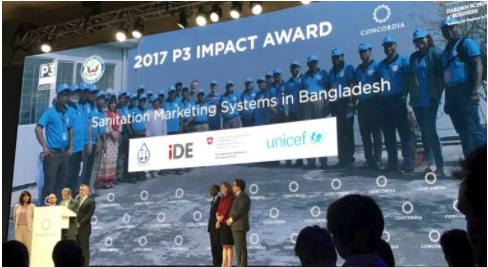
The Sanitation Marketing Systems in Bangladesh (SanMarkS) has recently been awarded the prestigious P3 Impact Award for its public-private partnership (P3) approach.
SanMarkS applies Sanitation Marketing, Market Systems Thinking, and Human Centered Design to reach 450,000 poor and disadvantaged rural people by 2019 with better health and wellbeing through improved sanitation. The project began in November 2015 and is jointly funded by SDC and UNICEF and implemented by iDE-Bangladesh.
SanMarkS aims to build household demand and private sector supply of hygienic, affordable latrines by facilitating collaboration between national level manufacturers of latrine parts, local level entrepreneurs, municipalities and the Department of Public Health Engineering. The project promotes the integration of the private sector as a key stakeholder into the existing public and civil society platforms in the sanitation sector in rural areas.
SanMarkS builds the capacity of local latrine producers, their knowledge and technical know-how as well as market promotion strategies to increase their client base.
As a result, (341) local entrepreneurs are now organized. They have formed business associations (sanitary business associations SBA) to leverage their collective skills and buying power. This enables remote customers in villages to access hygienic latrines at affordable prices, while latrine producers who are a part of a business association have seen their sales of hygienic latrines almost double. The local government subsidies to help poor households build latrines are now used more effectively, as the local latrine producers deliver cheaper and more hygienic latrines. The sanitary business associations enforce quality standards among the members and have begun engaging with the local government to create national quality standards for improved latrines. National manufacturers are able to reach new customers who were inaccessible before due to the high cost and logistical challenges of marketing in remote areas. By engaging with a single point of contact from a business association representing several entrepreneurs, companies now have a simple and cost-effective way to distribute their products in sparsely populated rural regions. In this way, SanMarkS builds capacity of the private sector actors to develop products, messages and marketing techniques that will reach specific types of consumers based on household income, assets, lifestyles and other characteristics resulting in better health condi¬tions and well-being.
Interested to learn more?
 16 March 2018
Overall goal: GPLP aims at improving food security and income of small holder men and women farmers in the Central Corridor of Tanzania by addressing major constraints in post-harvest practice, access to improved technologies and adoption, knowledge sharing and related policies. Helvetas Swiss Intercooperation is implementing GPLP using a market system development approach and working through multi-stakeholder partnerships with private sector and public organizations. Context : Postharvest Losses (PHL) in Tanzania are high and contribute to loss of income and food insecurity. PHL ranges between 15 to 40% for different crops, but are of particular concern for grains and pulses, which form the base for food and income for the majority. Knowledge and awareness on Post-Harvest Management (PHM) among farmers remains low. Extension services do not often include PHM training and farmers’ access to technologies remains limited. Farmers and MSME’s face difficulties to access financial services, which could allow them to invest in post-harvest technologies (PHT) or expansion of business. While women are highly involved in the PHM process, there is a wide gender-gap in rural communities, with women being in a disadvantaged position in relation to men, in access and control over resources as well as in decision-making. The Ministry of Agriculture, Livestock and Fisheries (MALF) has just come up with a National Strategy for Post-Harvest, which is expected to be launched end of 2017.
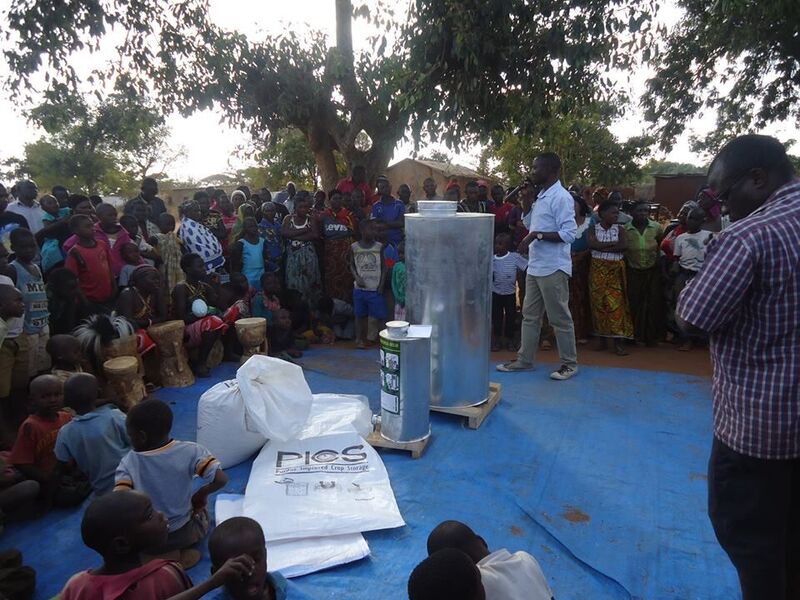
Outcomes of the phase: 1. Targeted smallholder farmers have access and adopt effective postharvest management practices and technologies 2. Postharvest policies and framework conditions are improved in Tanzania through implementation of PHM strategy and by-laws 3. Postharvest management stakeholders have access to information that enables decision making towards reducing postharvest losses
 16 March 2018
the focal point e+i successfully launched the series on youth employment with it's kick-off event on the 15th of March 2018. Click here for a short summary and the presentations. Moreover, stay up to date regarding the following e-Talks! about different topics around youth employment. For more information, click here. We count on your contribution!
 16 March 2018
The Divison Europe, Asia and Americas of the Humanitarian Aid of SDC is looking for a specialist in Disaster Risk Financing. The most important points are: Experience with disaster risk financing required, Duty station: Islamabad - Pakistan, Swiss or EU nationals can apply only.
See the detailed job description here. Contact person for more information: Lotti Roth
Field Ressources H
lotti.roth@eda.admin.ch
Outputs
1. Inception Report covering;
a) Road map and timeline for preparation of DRF strategy, development of instruments and
deployment of one instrument on pilot basis.
b) Revised ToRs for disaster risk financing consultants/firms, as relevant
c) Initial scoping exercise capturing DRF activities completed, underway and planned by other
stakeholders.
d) Preliminary schedule of knowledge events (workshops) and related actions to support the
establishment of an insurance culture in the country.
2. Mid Term Progress Report covering;
a) Review of DRF activities and implementation status progress under the NDRMF and
contribution to wider efforts to strengthen the financial management of disaster risk in Pakistan.
b) Legal framework of DRF in Pakistan, gap assessment and recommendations for improvement
c) Revised road map, if required.
d) Draft guidelines on post-disaster budget execution.
3. Final Report covering;
a) Detailed review of DRF progress and achievements, including related challenges and
opportunities for further advancement.
b) Recommendations, including road map, for the design and deployment of further DRF
instruments and any additional DRF needs in support of the enhanced financial management
of disaster risk in Pakistan.
c) Final guidelines on post-disaster budget execution. Qualifications
Education Requirements and Experience
I. Master's degree in Insurance, Risk Management, Actuarial Sciences, Economics Management,
ACII /FCII, Finance, Accounting, Statistics, Spatial Econometrics or other relevant fields of study
with specific experience of risk insurance and re-insurance.
II. The competent candidate should have a general experience of about 12-15years.
III. The candidate should have to demonstrate proven relevant experience of about 8-10 years
relevant to the assignment especially experience in the insurance, re-insurance sector,
preferably in a large re-insurance companies e.g. Munich Re Swiss, Re or any other.
IV. Must having track record of disaster related fiscal risk and the design of disaster risk financing
solutions.
V. Past experience of implementing similar projects in Asian countries and good understanding of
disaster risk financing in Pakistan, would be an advantage. Start and duration
As soon as possible for 1 year (extendable)
Duty Station: Islamabad, Pakistan
 07 December 2017
This
5 -years research project in the field of economics, implemented by Tilburg
University, focuses on understanding the factors, institutions, and policies
that can increase business innovation and productivity growth, particularly in
manufacturing small and medium-sized enterprises in Africa and Asia. The
updated project website presents the latest research output including
scientific articles, policy briefs, short videos and databases.
If
you are interested please visit: https://www.tilburguniversity.edu/dfid-innovation-and-development
Or
see a brief introduction video: https://www.youtube.com/watch?v=pewGctAG1sY
 04 December 2017
At DCED’s Annual Meeting in Rome, in June 2017, the DCED Working Group was formally established and is now chaired by Andrea Inglin of SDC and Susanne Thiard-Laforet of the Austrian Development Agency (ADA). It will build on the achievements to date of the BEAM Exchange, the facility for knowledge exchange and learning about market systems development, originally funded by The Department for International Development (DFID) and SDC. The advantage of integrating BEAM Exchange into DCED, apart from the obvious synergies with PSD itself, other donors can participate easier and give BEAM a sound foundation for sustainability. >>more
 19 September 2017
Dear Energy Entrepreneur,
The Swiss Re Foundation Entrepreneurs for Resilience Award recognises
exceptional entrepreneurial initiatives that contribute to building resilient
societies. The 2018 Award focuses on innovative solutions that put renewables
to work in low-income communities. Given your impact, focus and performance, we
believe your organization fits well with the objectives and requirements of the
Award and would like to actively encourage you to apply.
Further information is available in the appendix or on the award webpage.
Applications will be accepted until 30 September 2017. Please go ahead and
apply on time!
If you have questions, you are welcome to contact us at info@lefilconsulting.com. LeFil has
been entrusted to facilitate the application and selection process.
 11 September 2017
The e+i Focal Point has developed five glossaries with key terms for Private Sector Development (PSD), Financial Sector Development (FSD), Systemic Change (MSD/M4P), Vocational Skills Development (VSD) and Monitoring and Results Measurement (MRM). The documents will help us to understand each other better until we rely completely on intelligent algorithms like the
DeepL Translator. Below we listed some of the highly used terms in the respective fields. Do you have the same understanding of the terms as we do? Feedback is highly appreciated.
 25 August 2017
The SDC funded Project "SIINC", featuring the first two Transactions in Mexico and Honduras, in the News! Click here for the article "Social Impact Incentives: A New Solution for Blended Finance" (Next Billion) and here for the article "Social Impact Incentives introduced in Mecxico and Honduras" (Impact Alpha).
 25 August 2017
The final DCED Report has been published, click here for the document.
 24 August 2017
We are happy to announce the below Job advertisement for an International Project Director at RisiAlbania, which is a youth employment initiative. This Position is based in Tirana, capital City of Albania. For more Information, please click here.
 07 July 2017
 22 June 2017
We are excited to inform you about the first two successful Transactions with Social Impact Incentives (SIINC). The pioneers applying SIINC to raise investement and scale are Clinicas del Azucar in Mexico and Village Infrastructure in Honduras. SIINC are premium payments to high-Impact organisations based on verified social outcomes. In this way, Impact is incentivised directly: it becomes linked to the organisation's profitability and automatically makes it more attractive to Investors. For more Information, check out the Video or read the case studies about Clinicas del Azucar and Village Infrastructure Angels.
 12 June 2017
Accelerate2030 has
launched its second edition! Impact Hub, UNDP and partners are joining forces
to support and promote the most promising impact-driven ventures across the
globe who focus on tackling the SDGs and are ready to scale. Read more here. finalists will
receive customized support for 9 months and and a chance to present their
company at the Social Good Summit this October in Geneva, Switzerland.
Apply here by 18th June! Check out their short video here.
 09 June 2017
Beginning of April a dynamic e-consultation on the revised guidance for managing MSD projects in SDC has taken place. Network members from SDC as well as implementing agencies have very actively shared their observations on the revised guidance and their experiences and best practices in implementing MSD projects. Their observations have been incorporated into this restructured, user friendlier and easier accessible document. Find it >>here
 02 June 2017
During 2016 and early 2017 five SDC Market System Development (MSD) projects in Albania, Bosnia and Herzegovina, Kosovo and Serbia were externally reviewed. All these MSD projects have the overall goal to create jobs that is addressed through PSD, VCA and VSD interventions. Overall all projects made good progress and based on these external reviews have planned second or exit phases.
Learn about the main conclusions and recommendations that are common in many projects are.... >>more
 29 May 2017
Increasing use of market systems approaches in international development has led to a growing demand for skilled practitioners and high-performing teams. However, the current system of training and building capacity falls short of meeting the needs of programmes. This constraint threatens to undermine the effectiveness and credibility of the approach. This paper is structured into three main parts: (i) the problem and the context; (ii) an analysis of possible solutions and (iii) recommendations. Find this policy brief of the BEAM Exchange here.
 18 May 2017
Technology innovation can be a great enabler for development in low and middle-income countries. This course presents a methodology and an approach to develop impactful innovations that have the power to foster sustainable development. This course is not just about coming up with a nice idea, or designing a nice prototype, but more importantly, about sustainably deploying it at large scale.It fosters an entrepreneurial approach, as you will learn how to design business models that are relevant to address development-related challenges. It encourages co-creating the solution with the key stakeholders involved, including the affected populations. Whether you are from an industrialized or a developing country, whether you are employed in a company, an NGO, an international organization or a government. Whether you are an academic, an independent entrepreneur, or simply a passionate individual, this course is for you. You will learn how, as an innovator, you can help solve important issues that burden those living in poverty. For more information, click here or watch the video teaser.
 06 December 2016
 01 December 2016
BEAM Exchange is inviting you to share your stories of overcoming monitoring and results measurement challenges. The chances are that your solution is information another programme is looking for! You can share your story in any format (blog, Skype call, video etc.). This is a great opportunityf or you to contribute to the exchange of innovation and learning in measuring programme impacts. >> more
 25 November 2016
Our colleague Luca Etter has recently become member of the Advisory Committee for the CapitalAggregation Learning Lab at ANDE. ANDE's Learning Labs, formerly our Working Groups, are neutral convening spaces for diverse practitioners to share best practices and new research, discuss hot topics, andlearn from one another. The Labs can also offer a venue for joint research oraction on key issues. About this lap: All ANDE Members have challenges accessing appropriate capital. This learning lab provides a space to capture knowledge ofthe spectrum of available finance along the continuum from grant funding todirect investment. Members include those providing and looking to accesscapital and aims to help differing SGB financing approaches to work together inthe most efficient way possible.
 09 November 2016
The ANDE team invites the SDC staff to a 101 ANDE Webinar on November 23 at 3:30 pm CEST. The Webinar will cover the ins and outs of membership and how to take advantage ofall they have to offer. I think this webinar is a great opportunity for you tofind out more about how ANDE can support you with your work. Please click on this link for more information: https://www.shareweb.ch/site/EI/Pages/Events/event-detail.aspx?ItemID=156
 31 October 2016
NADELs course programme covers a wide range of relevant topis for practitioners in the field of e+i. Besides this, the courses are unique opportunity to engage with other peers, experts, policy makers, and in particular with the Swiss development cooperation community. The course programm, the registration forms, and more information about the admission requirements are available on NADEL's website.
For professionals in the field of VET two courses are especially recommended: Registration for the spring semester 2017 starts on October 31, and for the autumn semester 2017 it starts on May 29, 2017.
 05 October 2016
UNDP and Impact Hub Geneva will host the inaugural Social Good Summit Geneva this October 6th. The event will focus on the catalytic role entrepreneurship and innovation can play for the achievement of the Sustainable Development Goals. Click here to find out more about the event.
TheSGSGeneva is fully booked on Thursday 6 October but thery will webcast the mainsessions through periscope. Remote participants can either look for @UNDPGenevaaccount on Twitter or type #SGSGeneva to find the webcast. The first sessionwill showcase entrepreneurs from Armenia, Colombia, Ghana and Mali. Webcasttiming (Geneva time): 2:45 pm Pitching session with the five entrepreneurs - finalists of #Accelerate2030 4:45 pm Supporting innovative ventures growth and maximizing their social/environmentalimpact 6:00 pm Impact Investing: How can we finance impact driven ventures in developingcountries in the context of the SDGs?
 30 September 2016
The Aspen Network of Development Entrepreneurs (ANDE), in partnership with the Latin American Private Equity & Venture Capital Association (LAVCA), and LGT Impact Ventures has released a report on the growing landscape of impact investing in Latin America. Impact investing is a relatively nascent industry, and this report aims to fill the data gap in key Latin American markets. The report covers trends in regional impact investing with a focus on impact measurement, talent, and gender. It explores fundraising, deals, and exits, and takes a deep dive into impact investing in Brazil, Colombia, and Mexico. Click here to find the report in different languages.
 30 September 2016
Miller Center for Social Entrepreneurship at Santa Clara University accelerates global, innovation-based entrepreneurship in service to humanity.
The article was written by Joe Schuchter, Associate Director of Social Impact Assessment, Miller Center for Social Entrepreneurship.
Find the article here.
 22 September 2016
Finding relevant documents, project examples and interesting events has now become much easier and faster with the new Smartsearch available on the e+i Shareweb. Discover it here.
 16 September 2016
SDC finances the Enhancing Youth Employment (EYE) project in Kosovo with the aim of increasing the employment opportunities for young women and men who graduate from Vocational Education and Training (VET) schools and universities. EYE helps facilitating their transition from school into the workforce. The project, implemented by HELVETAS Swiss Intercooperation and MDA, uses a systemic approach to the labour market and works in the VSD and in the PSD domain. The popular Swiss TV news show “10vor10” has recently broadcasted a 5-minutes clip (in German) about one of the interventions of the project, which collaborates with Kosovar media companies. >> more
 14 September 2016
The Harvard Business Review published an article on August 15th 2016 about Entrepreneurship and the U.S. foreign aid.
To read the article click here.
 13 July 2016
SDC's Employment and Income (e+i) Network invites you to the next Savings & Credit Forum on Unlocking Blended Finance for social entrepreneurs and social businesses organized by the SDC in partnership with Ashoka - the largest network of social entrepreneurs - and Obviam, manager of the SIFEM, the Swiss development Finance Institution. The topic is on blended finance (also called hybrid finance by Ashoka) for social entrepreneurs and how to bridge the gap between public sector/philanthropy and social impactor investors and investees. The conference will gather several speakers among which Markus Freiburg from the Financing Agency for Social Entrepreneurship (FASE) and Björn Strüwer from Roots of Impact who will present the ecosystem of blended finance and the different solutions already existing enabling investors to invest in social entrepreneurs and business. A successful social entrepreneur from the Ashoka network will also join and present how he/she developed a blended business model and how it helped the scaling of its impact. In the afternoon, we will break down in groups to go a step further, and collectively identify how we can each contribute to filling the gap of blended financing. The conference will take place on 21st September 2016 in Bern, close to SDC headquarters in Ausserholligen. Further information >>here We very much hope to see you in Bern and start the movement of unlocking much needed blended finance for social entrepreneurs and businesses.
 30 June 2016
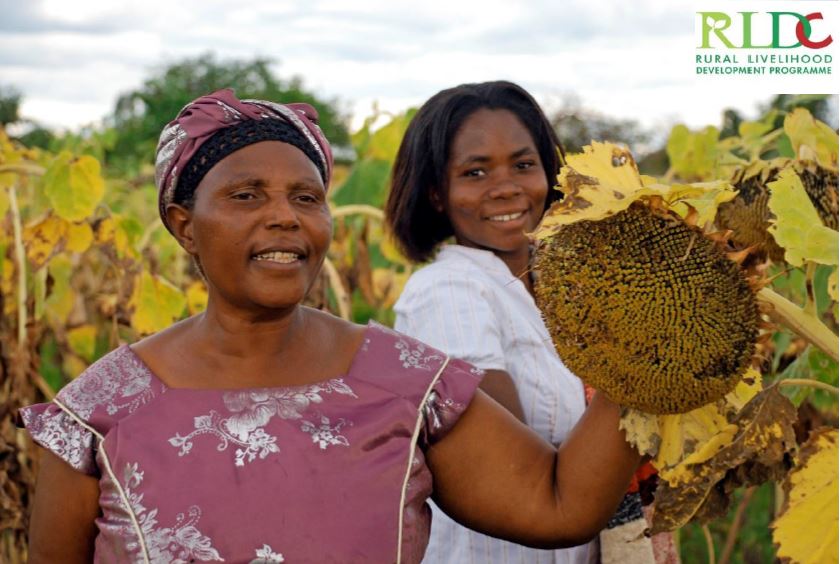
The Rural Livelihood Development Programme (RLDP) came to an end in December 2015 after ten years of implementation. In 2015, it engaged in an extensive process of Capitalization of Experience to derive lessons learned focussing on three topics: Programme Management applying the Market Systems Development (MSD) approach, Contract Farming and Gender Mainstreaming. All three topics are available as short and long versions (here). Hands on experience in a challenging context like central Tanzania – a must read for MSD practioners!
 30 June 2016
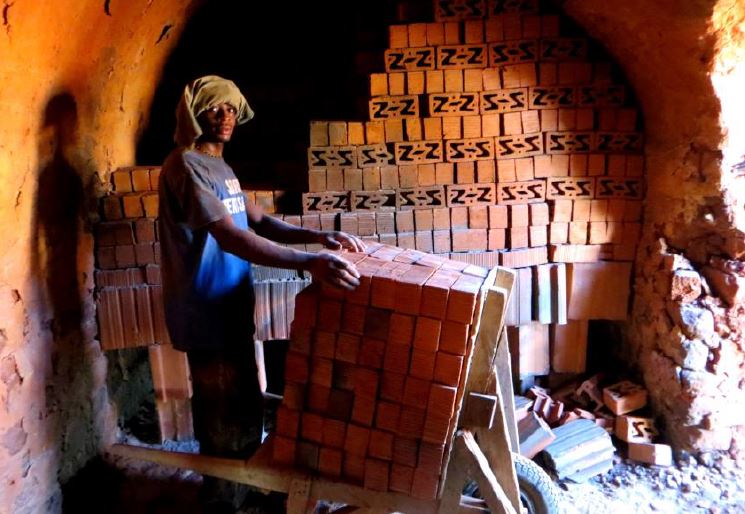 "On July 1st 2016, SDC's Promoting off-farm employment and income in the Great Lakes Region through climate responsive construction material production (PROECCO) project will enter its second phase. The first phase was dedicated to technological transfer and adaptation to provide context specific business solutions in the construction material production sector. These business solutions will be tested and refined in the second phase to boost scaling up environmental and labor friendly production methods applying a MSD approach. The project will improve production techniques in Rwanda, Burundi as well as South Kivu and serve a demand for construction materials fueled by the regions rapid urbanization. "On July 1st 2016, SDC's Promoting off-farm employment and income in the Great Lakes Region through climate responsive construction material production (PROECCO) project will enter its second phase. The first phase was dedicated to technological transfer and adaptation to provide context specific business solutions in the construction material production sector. These business solutions will be tested and refined in the second phase to boost scaling up environmental and labor friendly production methods applying a MSD approach. The project will improve production techniques in Rwanda, Burundi as well as South Kivu and serve a demand for construction materials fueled by the regions rapid urbanization.
>>more information on the fact sheet (French only)
 30 June 2016
Have you ever wondered, how the business environment can have a positive impact on promoting inclusive business, or what can be done to improve the framework conditions for local economic development? Did you ask yourself whether women economic empowerment is being limited by regulations and legislation and how such limitations can be overcome? Are you interested to know which... >>more
 24 May 2016
The Springfield Centre for Business in Development Ltd Making Markets Work - a two-week training programme 27th November - 9th December 2016, Bangkok, Thailand The Springfield Centre for Business in Development Ltd is planning to offer a 'Making Markets Work' training programme in Bangkok from 27th November to 9th December 2016. The event brochure and application will be online on their website from mid-August with full details: http://www.springfieldcentre.com/training/current-programmes/.
 22 March 2016
 SDC e+i side event at the DCED Global Seminar in Bangkok: From 14.-16. March 2016, DCED held its Global Seminar. Around 130 participants from all over the world attended the Seminar, around 35 participants from SDC financed projects. The SDC e+i network organized a small side-event with the objective to bring together the network community, provide a space to exchange and network and share latest news around Results Measurement: (1) Swisscontact shared their experience with SenseMaker as a new methodology for capturing systemic change. (2) The SDC good practice paper: "Monitoring and Measuring Results in Private Sector Development" was presented and discussed. (3) HELVETAS Swiss Intercooperation shared and discussed preliminary findings of its study with the objective to define and elaborate what “right-sizing” MRM system means. SDC e+i side event at the DCED Global Seminar in Bangkok: From 14.-16. March 2016, DCED held its Global Seminar. Around 130 participants from all over the world attended the Seminar, around 35 participants from SDC financed projects. The SDC e+i network organized a small side-event with the objective to bring together the network community, provide a space to exchange and network and share latest news around Results Measurement: (1) Swisscontact shared their experience with SenseMaker as a new methodology for capturing systemic change. (2) The SDC good practice paper: "Monitoring and Measuring Results in Private Sector Development" was presented and discussed. (3) HELVETAS Swiss Intercooperation shared and discussed preliminary findings of its study with the objective to define and elaborate what “right-sizing” MRM system means.
>> for more information please contact Annick Vollmar
 19 January 2016
When donors become market players and potentially distort attempts to achieve long term and large-scale change, how should market systems programmes respond? This webinar focuses on strategies and tactics to deal with distortion such as:
• The competition between market systems and direct service delivery projects, where projects trying to facilitate systemic changes using a market systems approach face competition from others that are readily handing out money and giving away services for free
• The 'market systems partnership competition' where too many market system projects compete with each other for the same, limited, pool of partners and the private sector has realised that partnering with market systems projects can be very profitable.
Nathalie Gunasekera brings insight and experience from the Western Balkans, while Rubaiyath Sarwar looks at how programmes and businesses are responding and what such distortion looks like on the ground. Register
 18 January 2016
Hystra and Danone Ecosystems invite you to a webinar on either: Friday, 22nd January '16 at 10 am (CET) >> register
or
Monday, 1st February '16 at 3 pm (CET) >> register to discuss and learn more on smallholder farmers and agro-businesses.
 07 December 2015
Why do watersheds matter when it comes to poor people’s livelihoods, their access to water or their protection from disasters and climate change? People living in watersheds know each other, they know their environment and their income depends on the watersheds. 50 development professionals from Latin America and the Caribbean, and from SDC Head Office, comprising five thematic knowledge networks, met for one week in Nicaragua to generate evidence on successful watershed management interventions. Read the 10 key messages at the beginning of the report! They will make a difference in your next project design. (English) >> Síntesis temàtica (Español)
 30 November 2015
A Monitoring and Result Measurement (MRM) and DCED Standard training was organised for the WBA Swiss Cooperation Offices (SCO) from 25 – 28 August at Lake Ohrid in Macedonia. This was considered highly important since most of the private sector development project embrace a MRM system along the DCED Standard that requires to some extent a different steering by the SCO. The training was delivered by Hans Posthumus who is well known in this field and is currently also working for e+i on a good practice paper for SDC on MRM for private sector development projects. >> more news will follow later
 30 November 2015
Addis Ababa, Ethiopia, 30 September 2015 – The United Nations Development Programme (UNDP) and the Swiss Agency for Development and Cooperation (SDC) have signed a new agreement to bolster inclusive growth in Africa through private sector, inclusive business, and market development. The 3.7 million Swiss Francs contribution will support a three-year initiative “Accelerating Inclusive Growth and Sustainable Development in Africa” that seeks to create employment and livelihoods, particularly for women and young people, and support regional institutions and national governments in developing inclusive markets and businesses. The initiative builds on the work of UNDP’s African Facility for Inclusive Markets. >> more
 27 November 2015
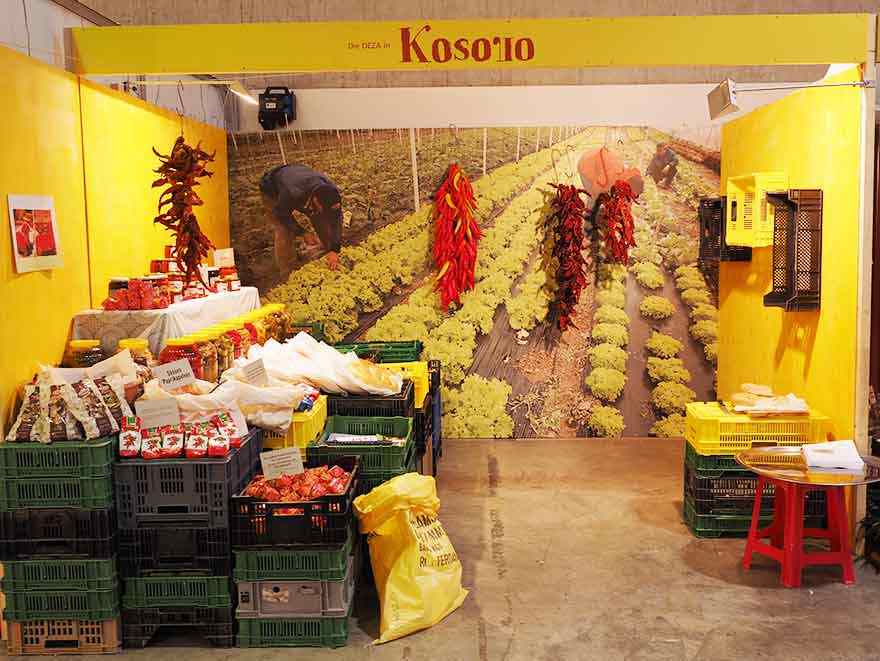 Every year in the city of St. Gallen the agricultural and nutrition fair "OLMA" is taking place. The fair was held from 8 – 18 October 2015 and attracted a large number of visitors. This year SDC created an interactive exhibition about food, food security and nutrition at the OLMA agricultural fair and Kosovo was part of it. SME’s from Kosovo who are supported by the PPSE project had the opportunity to present a wide range of their products. Read more >>
 16 November 2015
Imagine, for a minute that you are a small farmer. You have between half an acre and 3 hectares of land, to feed a large family. Your parents were farmers before you, and your children, at least some of them who won't leave for the city in search of better incomes, are likely to become farmers too, on an even smaller land if they have to share the little you have. >>more
 30 September 2015
 06 September 2015
In 2014 the first phase of a new SDC financed MSD/Inclusive Markets project, named Rural Markets, took off in Bolivia. This project is implemented by Swisscontact and the local foundation PROFIN, and has started to facilitate the implementation of innovative business models that take account of the extraordinary challenges market development faces in the Altiplano and inter-Andean valleys. We would be happy to share our experiences e.g. regarding market systems development through successful business links among seed producers, multipliers, wholesalers and the industry, the introduction of new varieties of (root) vegetables, and business models for the provision of rural technical assistance services in sparsely populated regions.
 02 September 2015
no new information available
 29 August 2015
You remember having heard about BEAM, don't you? exactly BEAM Exchange is the new one-shop for sharing knowledge and learning about market systems approaches for reducing poverty. DFID and SDC have lunched it just last year.Now discover who the BEAM community is how BEAM can help you and how to you can contribute to it and why BEAM needs you!
>here
Relevant Events
-
20 Oct 2024
Cape Town
-
01 Oct 2024
Nairobi
-
29 Apr 2024
-
20 Nov 2023
Bangkok, Thailand
-
14 Nov 2023
Cape Town, South Africa
20 Oct 2024 in Cape Town
20 October to 22 October 2024
20 October to 22 October 2024
in Cape Town
20 October in Cape Town
Embark on a transformative journey at Market Systems Symposium (MSS) 2024, where we'll navigate the intricate landscape of systems thinking applied to development strategies. Join leading practitioners and donors as they share industry insights, from diverse perspectives, offering you an exclusive opportunity to engage in collaborative networking and ignite new possibilities. Don't miss out on this opportunity to be part of a global community dedicated to advancing market systems development.
Save the date, and get ready to embark on a journey of discovery, innovation, and collaboration! More information: here.
01 Oct 2024 in Nairobi
01 October to 06 October 2024
01 October to 06 October 2024
in Nairobi
01 October in Nairobi
DCED and BEAM Exchange are pleased to announce the next Global Seminar 'System Change for Growth, Employment & Resilience' will take place in Nairobi, on 1st - 3rd October. DCED and BEAM Exchange are aiming for carefully curated conversations between donor agency staff and experienced PSD practitioners.
More information/ registration of your interest: here.
29 Apr 2024
29 April 2024
29 April 2024
29 April
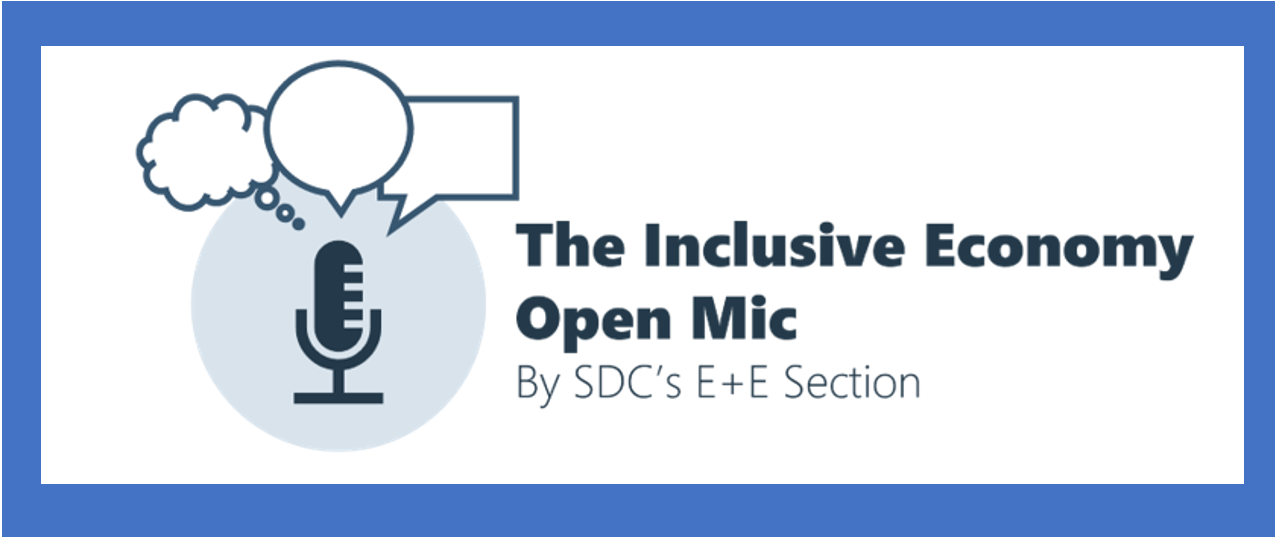 We are excited to invite you to the second edition of our Inclusive Economy Open Mic🎤 series! For those who could not take part in the first Open Mic, this is a new platform of the E+E Economy Network designed to bring us together in an informal setting. It's not just about showcasing our "final" products, but also about learning, sharing updates, understanding how others tackle projects, and gaining insights from various processes. We are excited to invite you to the second edition of our Inclusive Economy Open Mic🎤 series! For those who could not take part in the first Open Mic, this is a new platform of the E+E Economy Network designed to bring us together in an informal setting. It's not just about showcasing our "final" products, but also about learning, sharing updates, understanding how others tackle projects, and gaining insights from various processes.
We have an exciting lineup for our #2 Open Mic: - Spotlight on Frédérique Weyer, SDC's Regional Thematic Advisor for PSE and Food Secturity, based in Nairobi. We will hear from her about her work and she will present us the key priorities and challenges for SDC’s PSE / PSD work in Africa.
- A casual networking session for catching up informally.
- A news reel featuring updates on ongoing projects, upcoming events, publications, and changes. Share your news by emailing us at nadia.bucher@eda.admin.ch by April 22, 2024, and we'll showcase it in a dedicated slide.
- "Work out loud [WOL]" moment: Feel free to spontaneously share what you're currently working on, your work in progress, or any updates you'd like to share. Let's make it an interactive and engaging session!
Join us at the Inclusive Economy Open Mic 🌐- let's come together informally, share exciting insights, exchange news, and spark ideas. Save the date: Monday, 29 April 2024, 09:30 – 10:15 am CET (Bern-time).
Access: Join Zoom Meeting https://us02web.zoom.us/j/85718415672 Meeting ID: 857 1841 5672
See you online! And remember: send us your item for the “news reel” to be featured (see bullet point above). Luca Etter PSE Focal Point, E+E Section Nadia Bucher Academic Trainee, E+E Section
20 Nov 2023 in Bangkok, Thailand
20 November to 05 December 2023
20 November to 05 December 2023
in Bangkok, Thailand
20 November in Bangkok, Thailand
 This 10-day residential Training Programme focuses on how to make development more effective, achieving greater impact, inclusiveness, scale and sustainability. It explores the strategic and practical implications for organisations as they adopt the market systems development approach. The programme is internationally-recognised and builds on nearly two decades of the Springfield Centre’s experience in offering training on the market systems development (MSD) approach, training over 2,500 people from more than 100 countries. This 10-day residential Training Programme focuses on how to make development more effective, achieving greater impact, inclusiveness, scale and sustainability. It explores the strategic and practical implications for organisations as they adopt the market systems development approach. The programme is internationally-recognised and builds on nearly two decades of the Springfield Centre’s experience in offering training on the market systems development (MSD) approach, training over 2,500 people from more than 100 countries.
For more information and registration see here.
14 Nov 2023 in Cape Town, South Africa
14 November to 16 November 2023
14 November to 16 November 2023
in Cape Town, South Africa
14 November in Cape Town, South Africa
 Get ready to be inspired, equipped, and connected like never before at Market Systems Symposium 2023! Engage with industry-leading experts in Market Systems Development from around the world as we explore cutting-edge research, innovative strategies, and real-world application in this dynamic and engaging forum. Get ready to be inspired, equipped, and connected like never before at Market Systems Symposium 2023! Engage with industry-leading experts in Market Systems Development from around the world as we explore cutting-edge research, innovative strategies, and real-world application in this dynamic and engaging forum.
Given the significant impact of climate change, conflict and food insecurity on our world today, the core themes which we will be discussing, debating, collaborating, and innovating around at MSS2023 are: Climate Change & Adaptation; Conflict-Affected Contexts; and Food Security and Food Systems. Considerations which will be focused on across each of these core themes are: Household and Market Systems Resilience; Financial Market Systems; Migration & Urbanization; Water & Energy Systems; Trade Cross-cutting topics which will be brought in across sessions are: Social Inclusion; Adaptive Management; Engagement with the Public & Private Sector; Employment & Livelihoods; Monitoring, Evaluation & Learning (MEL); Emerging Technologies Disruptors.
More information see here.
Relevant Links
-
2018
-
-
-
Swisscontact
2021
-
Swisscontact
2021
-
2018
-
2018
-
2018
-
2018
-
ILO
2018
-
2018
-
2018
-
2023
-
2021
-
-
2018
-
|
